
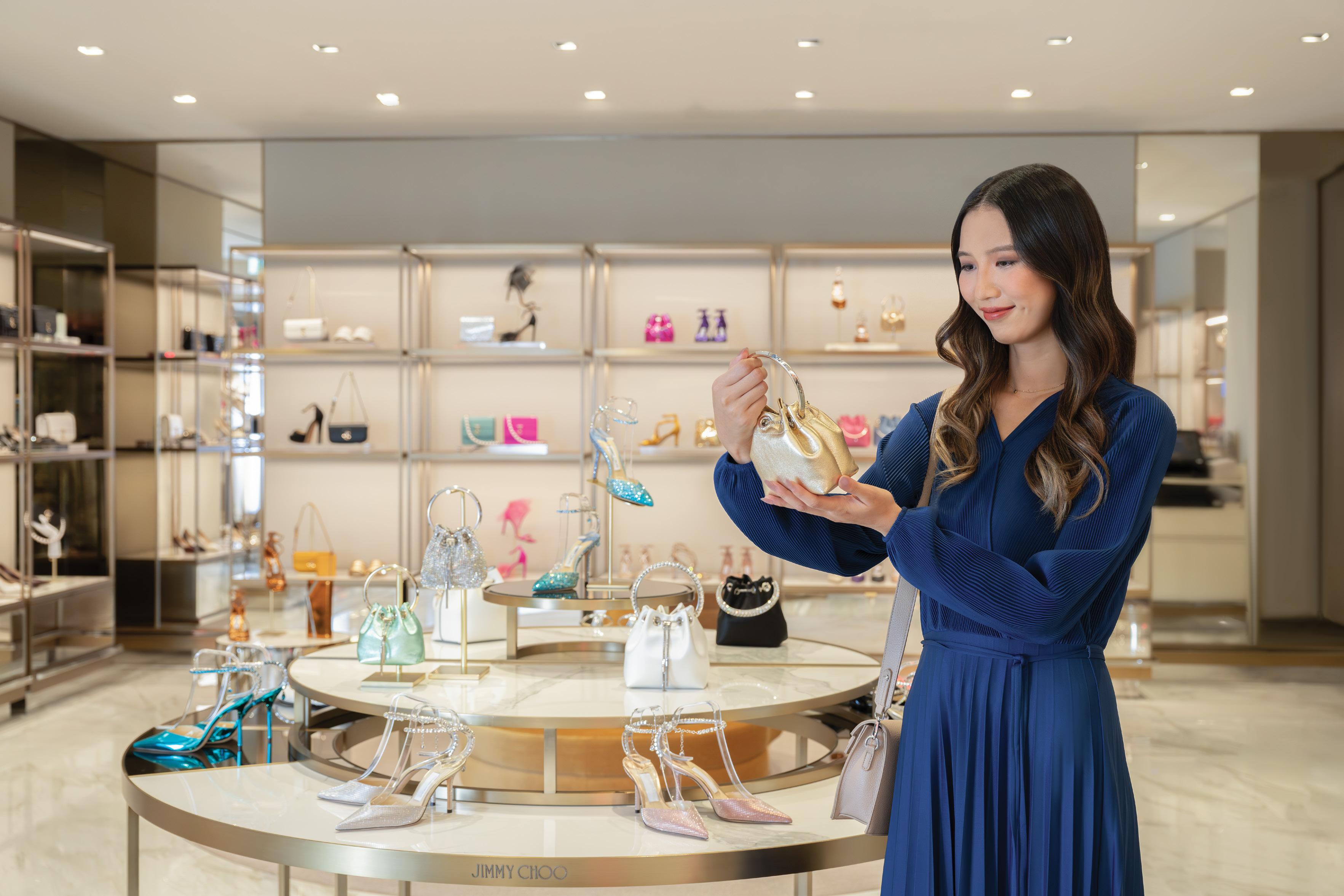






Between Sep 30th - Oct 3rd the TFWA World Exhibition & Conference Palais des Festivals
























NEW MOROCCANOIL TREATMENT PURPLE
Tone-correcting treatment counteracts brassiness while enhancing manageability and shine.

























Between Sep 30th - Oct 3rd the TFWA World Exhibition & Conference Palais des Festivals
























Tone-correcting treatment counteracts brassiness while enhancing manageability and shine.
















As we converge in Cannes for the 40th TFWA World Exhibition & Conference, the travel retail landscape pulsates with renewed energy and boundless potential. Our industry hasn’t merely recovered; it’s undergone a metamorphosis, emerging stronger and more innovative than ever before.
Across the globe, major operators are redefining the travel retail experience. From Dubai Duty Free’s strategic retail optimizations to Qatar Duty Free’s groundbreaking concepts, the industry is pushing boundaries at every turn. ARI’s transformation of Abu Dhabi International Airport and Schiphol’s billion-euro overhaul are testament to the scale of ambition driving our industry forward.
Visionary projects like Lima Airport Partners’ “airport city” concept hint at a future where airports transcend their traditional roles, becoming destinations in their own right. Meanwhile, the rise of players like Ospree Duty Free in India signals an exciting shift in the global travel retail map, with emerging markets taking center stage.
Luxury is experiencing its own renaissance. While King Power, ARI and Qatar Duty Free dazzle with increased high-end offerings, retailers like Dubai Duty Free are ensuring luxury remains accessible to all.
The modern traveler craves more than just shopping; they seek immersive, memorable experiences. Qatar Duty Free and ARI have answered this call, crafting spaces that engage and delight, turning transit time into treasured moments. This evolution extends into the digital realm, where ARI’s omnichannel approach and SEA Milan Airports’ innovative use of technology are creating seamless, personalized journeys that begin long before travelers set foot in an airport.
Sustainability has become a core pillar of the industry’s future. From THG’s comprehensive Planet Earth initiative to Swarovski’s eco-conscious practices, travel retail is embracing its role in building a more sustainable future. This shift isn’t just about meeting regulations; it’s a reflection of our industry’s commitment to aligning with evolving consumer values and ensuring long-term viability.
The TFWA World Exhibition & Conference offers us a unique opportunity to explore these transformative trends and innovations shaping our industry’s future. The resilience, adaptability and forward-thinking spirit demonstrated by our industry leaders give us much to celebrate and even more to anticipate. The journey ahead is filled with promise, and together, we’re poised to soar to new heights in the world of travel retail. We at Global Travel Retail Magazine look forward to joining you on this journey.

Kindest regards,

HIBAH NOOR Editor-in-Chief hibah@gtrmag.com
Global Travel Retail Magazine (ISSN 0962-0699) is published seven times a year by Paramount Publishing Company Inc. The views expressed in this magazine do not necessarily reflect the views and opinions of the publisher or the editor. October 2024, Vol 36. No. 6. Printed in Canada. All rights reserved. Nothing may be reprinted in whole or in part without written permission from the publisher.
GLOBAL TRAVEL RETAIL MAGAZINE Tel: 1 905 821 3344 www.gtrmag.com
PUBLISHER Aijaz Khan aijaz@globalmarketingcom.ca
EDITORIAL DEPARTMENT
EDITOR-IN-CHIEF Hibah Noor hibah@gtrmag.com
DEPUTY EDITOR Laura Shirk laura@gtrmag.com
SENIOR EDITOR Wendy Morley wendy@gtrmag.com
SENIOR WRITER Alison Farrington alison@gtrmag.com
ASIA CORRESPONDENT Karuna Tuli karuna.tuli@gmail.com
ART DIRECTOR Jessica Hearn jessica@globalmarketingcom.ca
ADVISORY BOARD Gary Leong
& SUBSCRIPTION MANAGER accounts@globalmarketingcom.ca

We’re making the journey as rewarding as the destination; bringing together Dufry’s retail and Autogrill’s F&B expertise to revolutionize the travel experience worldwide.

26 Redefining the journey
Qatar Airways’ Chief Retail and Hospitality Officer Thabet Musleh discusses QDF’s innovative approach to customer experience and commitment to pushing boundaries in travel retail
30 The success of FLEX
Avolta on its mission to reinvent travel retail in terms of personalized services, AI adoption and Gen Z; plus, a look at its “FLEX” traveler experience
56 A profound transformation
Phillip Nguyen, CEO at IPP Travel Retail, is reshaping how the channel operates in Vietnam, blending tradition with modernity to meet the demands of a new generation
66 Divide and conquer
Gebr. Heinemann is focusing on targeted growth in the Middle East and Africa; MEA Sales Director Bernard Schlafstein says recent acquisitions demonstrate the region’s potential
34 Shifting tradewinds
Dubai Duty Free’s new chief Ramesh Cidambi navigates present challenges, while steering toward a landmark relocation and an airport transition in 2032
40 Expanding horizons
Sunil Tuli, Group CEO of King Power and APTRA President, provides an update on the company, highlighting its commitment to growth in a changing market
44 Soaring to new heights
Ospree Duty Free is altering the duty free landscape in India, setting new standards for customer experience
50 Restoring global demand
Lotte Duty Free has expanded its global footprint, looking to diversify its portfolio and the creation of an “LDF belt”
62 Exceeding expectations
ARI’s new flagship store at Zayed International Airport is blending Emirati heritage with cutting-edge technology to align with the hub’s passenger-first approach
70 A look to the future
Enjoying a strong period of growth, Iraq Duty Free is focused on its ability to offer a world-class travel retail shopping experience
74 Enhancing customer experience
Morocco’s IDFS has a clear vision to be a first-rate travel retail operator; General Manager Anthony Courchet outlines its plans in this Q&A



80 Welcome to airport city
With the purpose to establish greater connectivity and accessibility, Lima Airport Partners will introduce the “airport city” concept to South America; plus, the passenger terminal scheduled to open in December
88 Captivating consumers
A significant development in Shopping China’s agenda is the investment in a new facility in Ciudad del Este. Spanning over 92,000 square meters, it is set to become the largest border store in South America
92 New directions
After its groundbreaking conference in Ghana, MEADFA’s President Sherif Toulan describes an ambitious course for African duty free, sustainability initiatives and combating illicit trade while gearing up for a milestone event in Abu Dhabi
94 Industry evolution
As TFWA turns 40, President Erik Juul-Mortensen reflects on the association’s journey and the exciting future that lies ahead for this dynamic sector
98 Growing support
As FDFA marks its 40th anniversary, the association celebrates a legislative breakthrough while continuing to elevate border communities’ prominence in public discourse and policy agendas
100 Investing in tomorrow
From revamping core retail categories to integrating AI-driven operations, Schiphol Airport is set to redefine the travel experience. This renovation is about leaping ahead in airport design and functionality
108 End-to-end connectivity
Branchspace’s retailing platform, Triplake, is on the path to revolutionizing the travel experience via advanced digital solutions across the customer journey. The company is also working with IATA to transform contactless travel
112 Ready to take flight
SEA Milan Airports enhances the passenger experience with AirportLabs’ Pocket Flights tech that provides real-time flight information via smartphone
114 Pledge for the planet
Online retailer THG details its group sustainability strategy, THG x Planet Earth, and how it leverages digital technology to work toward a more sustainable future
116 Passion and proximity
Essence Corp is not letting a challenging market get in the way of strong plans for further growth in trave retail
118 Here comes the sun
As covered in this Suncare Report, the convergence of premium skincare and effective suncare is creating an opportunity in the channel, as beauty companies increasingly develop products that combine sun protection and anti-blemish properties
120 A win for skin
Elizabeth Arden introduces the latest additions to its Prevage collection, which align with global beauty trends including skincare prevention, “Notox” and “NeuroGlow”
124 Middle East trailblazer
Luxury fragrance house Ajmal Perfumes is on a mission to broaden its footprint in global travel retail, as the demand for Middle Easterninspired and Oud-based fragrances increases
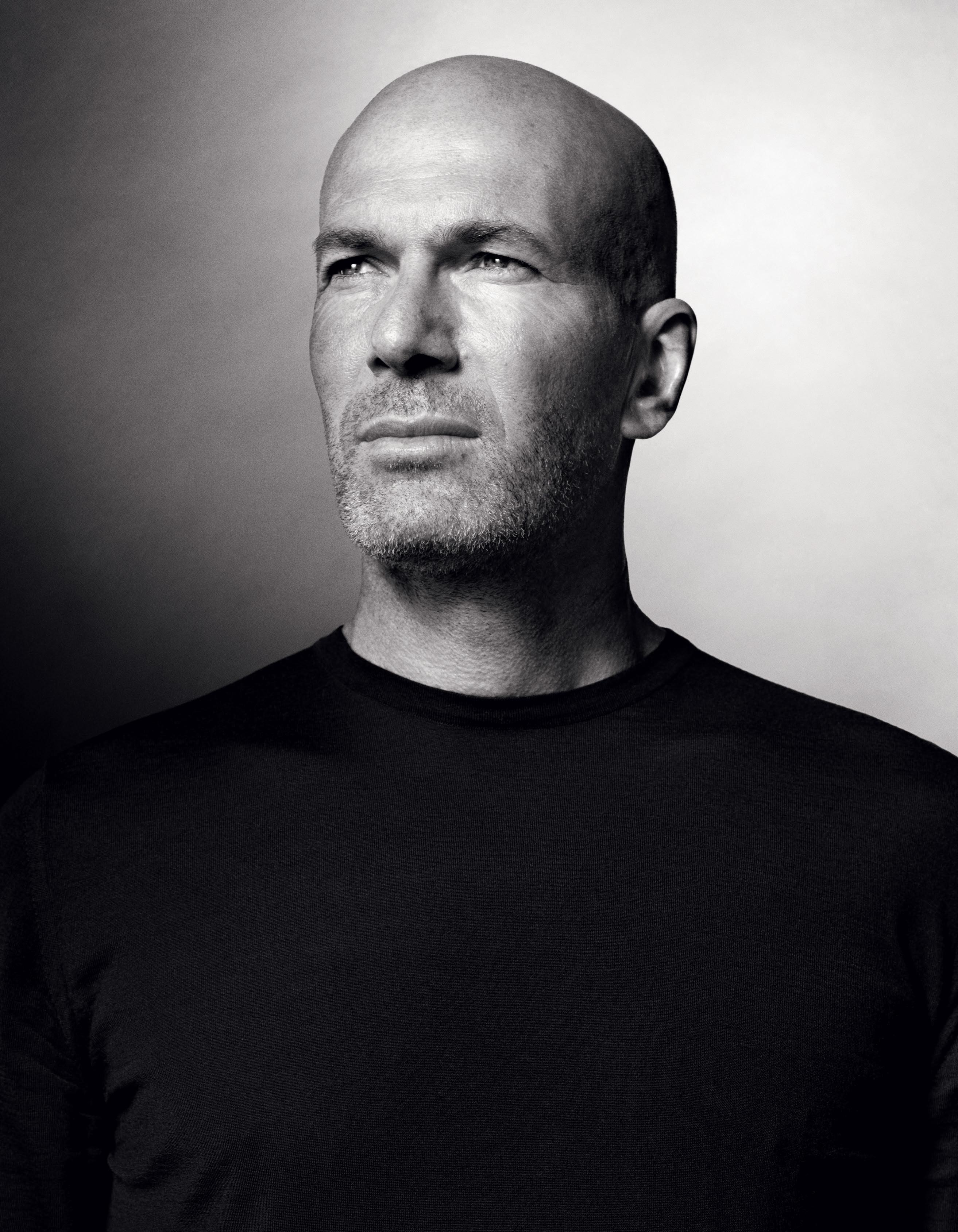




























126 Staying ahead
Interparfums USA is a billion-dollar company with a “40-year startup” mindset. Jean Madar, Chairman of the Board and CEO, outlines the company’s personal approach and strategies to keep key brands at the forefront of travel retail’s beauty category
128 Name change
The newly formed Tairo Group will operate through three specialized divisions
130 Call for cocoa
In this Cocoa Report, Global Travel Retail Magazine speaks to leading names in the chocolate category for an update on the market
134 Snack attack
In this Snacking Report, Global Travel Retail Magazine speaks to confectionery players on the rise of sour, the growing demand for savory options and the importance of impulse purchasing
138 Turning on the charm
Fashion brands are targeting Gen Z passengers via social media campaigns and destination-driven collections. In this Jewelry Report, Global Travel Retail Magazine discovers travel exclusive designs offer more emotive purchasing opportunities
142 Unwavering commitment
Swarovski is underlining its commitment to the channel through a strategy that focuses on three key elements
146 Redefining boundaries
Jewelry brand Tateossian is looking to extend its network in travel retail, with new listings and expansion in the cruise market offering innovative designs and travel-related details
148 Spilling on spirits
Blue Caterpillar spills on the impact of demographic trends in the spirits category including gender preferences, the no- and low-alcohol segment, RTD options and more
150 Rye revival
Illva Saronno looks to become a recognized player in the whiskey category
152 Consumption in cruise
Featuring brand, retailer and cruise line feedback, this Cruise Report covers drink development, retail activation and consumer behaviors in line with the spirits category
154 Meeting demand
Monarq Group shows no sign of business slowing down
156 Fine wines, full glasses
Based on industry experts and travel retail insights, Global Travel Retail Magazine discusses category trends, the return of rosé and the next generation of wine lovers in this Wine Report
158 Premium experiences
Mazaya’s Global Travel Retail Manager Rawan Elayyan discusses how the brand is leveraging shifting consumer preferences and introducing innovative flavors to enhance its position in the channel
160 Igniting innovation
BAT is lighting up the tobacco category in travel retail with reduced-risk products, advanced technology and a commitment to sustainability
164 Gaining ground
With a focus on innovation and sustainability, independent tobacco producer KT International is expanding its presence in airport duty free shops
166 Going global
Duty Free Dynamics on streamlining categories and driving globalization
168 Making moves
Heys’ Founder and CEO Emran Sheikh talks about the company’s journey and future in travel retail
170 Charging ahead
Skross embraces its “Travel, Power, Charge” mantra

The co-owners of Giromondo, a FMCG company based in USA, Chile and Venezuela, have recently acquired the operations of Duty Free LATAM. With an extensive background in travel retail, Ricard Guasch, who formerly worked at JTI and Montblanc, and Alessandro Battellino are excited to bring a "fresh energy and strategic direction" to the business.
Duty Free LATAM has built a reputation for offering a wide range of premium products to travelers, from luxury goods to everyday essentials. The retailer operates in Chile, Peru and Colombia.
As the new co-owners, Guasch and Battellino aim to leverage their industry experience to elevate the company’s market presence and drive regional expansion. Their primary focus will be on boosting the business and expanding its footprint within the Latin American market. Their strategic vision includes enhancing the shopping experience for travelers, optimizing operations, and exploring new market opportunities.
The team will soon be unveiling a new retail shop located at Maiquetia Airport in Caracas, Venezuela, strategically located next to Carolina Herrera and in front of Hugo Boss, further solidifying its presence in the travel retail sector across Latin America.

Duty Free LATAM has built a reputation for offering a wide range of premium products to travelers, from luxury goods to everyday essentials. The retailer operates in Chile, Peru and Colombia
Hudson, part of the Avolta Group, has signed a sevenyear contract with the Allegheny County Airport Authority to open six new retail stores at Pittsburgh International Airport (PIT).
The stores will run across 2,400 square meters included in the airport’s new terminal slated to open by the end of 2025.
The growth is part of PIT’s Terminal Modernization Program, which includes a new landside terminal, as well as renovations to its existing airside terminal. This transformation of the passenger experience at PIT features a host










of new dining and shopping options. Hudson’s new retail offerings will include three locations of its popular travel convenience store, global cosmetics brand MAC, and two shops that evoke the essence of Pittsburgh by paying homage to the city’s famed sports teams and talent and creativity of local artisans.
Hudson currently operates nearly a dozen travel convenience, specialty retail, and duty free stores at PIT, including Hudson Booksellers, Dunkin’, locally born Sarris Candies and Pittsburgh Duty Free.
























Delhi Duty Free Services (DDFS), India’s largest duty free operator at Delhi International Airport, has confirmed a new partnership with ICICI Bank, one of the country’s largest and most trusted financial institutions.
This exclusive collaboration is said to present an “exceptional opportunity” for international travelers, offering instant discounts on their purchases and making their travel experiences even more rewarding.
As global travel continues to surge, this partnership redefines the standard for shopping benefits during international journeys, with ICICI Bank credit cardholders invited to enjoy “unparalleled” savings as they embark on their travels.
The discounts, ranging from INR500 (US$6) to INR2,500 (US$30) will be customized periodically to meet the evolving needs of global travelers throughout the year. These tailored offers come on top of existing in-store promotions.
DDFS said its partnership with ICICI Bank elevates its commitment to providing “world-class products and an unmatched shopping experience,” ensuring that international travelers not only enjoy their shopping but also maximize their savings.

Through
Brisbane Airport has announced a major overhaul of its International Terminal as part of the US$5 billion future BNE transformation. The renovation, set to be the most significant since the terminal’s opening 29 years ago, aims to revolutionize the passenger experience and meet updated Australian Government security standards by 2025.
Key features of the renovation include relocating security and passport control from Level 3 to a light-filled atrium on Level 4, introducing advanced security screening equipment for faster processing, and implementing self-
service check-in and bag drop systems. The project also involves upgrading baggage systems, expanding retail options, and nearly doubling the duty free area.
Brisbane Airport CEO Gert-Jan de Graaff emphasized the terminal’s importance, stating, “Our International Terminal is Queensland’s gateway to the world. After three decades of service, it’s well and truly time for a transformation, ensuring it’s ready to welcome the world for years to come. This building is worth billions of dollars to Queensland’s tourism economy and jobs every year.”






David William Dang has joined the Rémy Cointreau Global Travel Retail (GTR) team as Managing Director GTR APAC, effective September 9.
This follows the appointment earlier this year of Thibault Robert to the role of Managing Director GTR EMEA & Americas. Both report to Rémy Cointreau GTR CEO Fida Bou Chabke.
With a proven track record in building global iconic brands in the spirits, retail and luxury industries, Dang joins Rémy Cointreau from the Diageo Group where he has spent the last two years, most recently as Regional Director Southeast Asia, Luxury Division.
His wide-ranging experience also includes senior positions within LVMH fragrance and liquor divisions, including Kenzo, Givenchy and Moët Hennessy, with responsibilities across multiple Asian markets including Taiwan, Singapore, Malaysia, Thailand, Vietnam, Indonesia and the Philippines.

The latest insights from ForwardKeys reveal promising trends in Africa’s air travel market and the global airline seat capacity outlook. As the industry recovers from the disruptions caused by the pandemic, these forecasts provide valuable guidance for stakeholders in the travel and tourism sectors.
ForwardKeys’ recent analysis highlights a positive shortterm outlook for Africa’s air travel. The continent is experiencing a steady growth trajectory, driven by increased travel demand and strategic expansions by airlines. This growth is particularly notable in key markets such as South Africa, Nigeria and Kenya, where international travel is rebounding strongly.
Increased Flight Frequencies: Airlines are adding more flights to and from African destinations, reflecting confidence in the market’s recovery. This expansion is helping to meet the rising demand for both business and leisure travel.

Tourism Initiatives: Various countries in Africa are implementing robust tourism promotion strategies, attracting more international visitors. Efforts to improve infrastructure and enhance travel experiences are paying off, further boosting the sector.
Economic Factors: Economic growth in several African countries is supporting higher levels of disposable income and increased spending on travel. This economic stability is fostering a more favorable environment for the aviation industry.
Data from ForwardKeys indicates that the number of international arrivals in Africa is set to continue its upward trend, with significant year-on-year increases expected. This growth is not only a sign of recovery but also a testament to the resilience and potential of the African travel market.








Ritter Sport has announced the flavors Salted Caramel and Double Crunch will be joining the brand’s mini Tower/ mini Pouch and Vegan Tower offers, respectively. The mini Salted Caramel Variety joins the line-up for both the mini Colorful Variety Tower Pink (250 grams) and the mini Colorful Variety Pouch Pink (500 grams). The company is also introducing Vegan Double Crunch (100 grams) to its Vegan Tower. The flavor combines crunchy roasted corn pieces and cornflakes in almond-based chocolate.
All mini and vegan travel editions are made with natural ingredients and use cocoa from 100% sustainable, certified sources. The new products will be available in travel retail from March of next year.
Ritter Sport’s message for 2025, “Start Your Love Affair with the Square” will be spotlighted in Cannes. The global marketing campaign features the brand’s mascot Don Choco the sloth, who lives at the Ritter Sport El Cacao farm.
Jan Bessel, International Key Account Manager Global Travel Retail says, “This year in Cannes, our primary focus is on having open dialogue concerning the current [cocoa] market situation with our existing partners, as well as sharing our TR editions portfolio updates.”
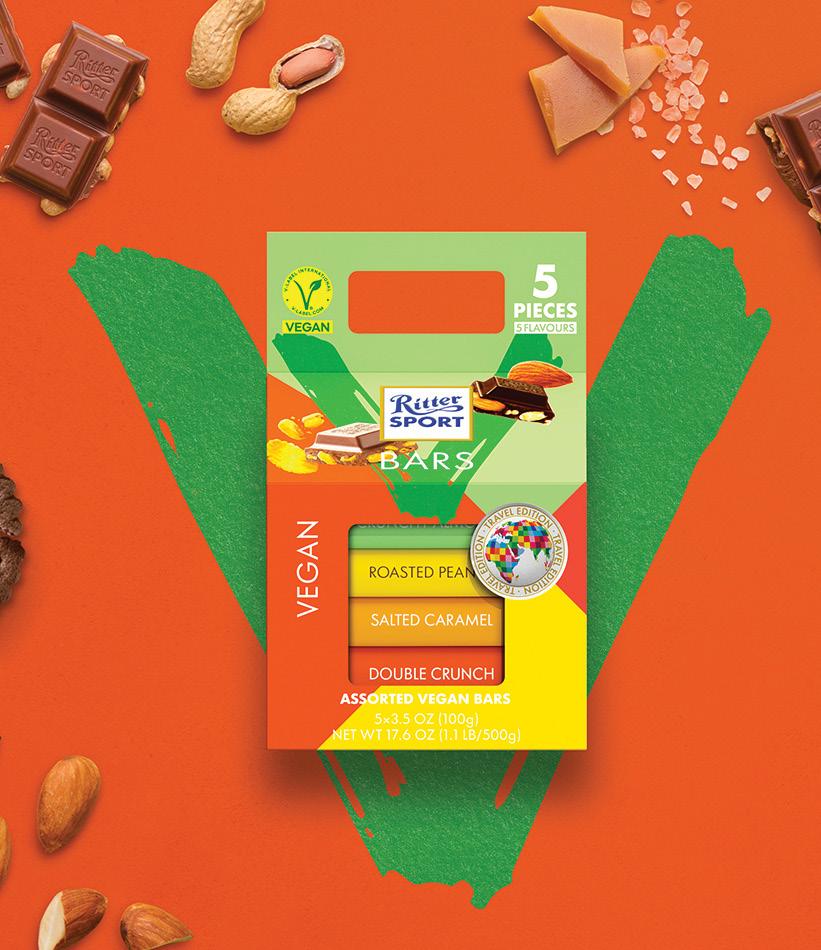
Looking to sharpen its competitive edge in the world of aviation, Singapore is set to expand Changi Airport’s network of destination cities from the current 150 to over 200 by the mid 2030s.
A report by Singaporean multinational news channel CNA said global air passenger volume is expected to double by 2040.
The Prime Minister of Singapore, Lawrence Wong, noted that many international airlines are expanding their fleets and networks to serve more direct routes and Changi stopovers may no longer be needed.
“We must continue to sharpen our competitive edge
and develop new advantages to set us apart,” he said.
One such advantage is to boost the productivity of Changi Airport with the new addition of Terminal 5. This is further supported by innovation coming from the new International Aviation Lab, a joint project amongst eight industry players including aircraft manufacturers, Changi Airport Group and Singapore University of Technology and Design.
The lab will open by 2026 with projects starting next year. It aims to address challenges related to capacity, productivity and safety.

A new study by m1nd-set reveals a significant change in consumer behavior within the global travel retail sector. Shoppers are increasingly valuing experiential aspects over price when making purchasing decisions.
The research indicates that while price has traditionally been a major factor in travelers’ buying choices, it is no longer the primary consideration. Instead, consumers are placing more importance on the overall shopping experience. Factors such as convenience, product exclusivity and unique location-specific items are becoming more influential in driving purchases.
Travel retail consumers are now seeking experiences and products that offer value beyond cost savings. There is a growing demand for distinctive and immersive
shopping experiences, reflecting a broader trend where emotional and experiential aspects of shopping outweigh price considerations.
The incorporation of technology and customized services in travel retail has contributed to this shift, with consumers favoring seamless omnichannel experiences and personalized options over mere cost savings.
The study shows that the importance of price advantage as a reason to visit duty free shops has decreased significantly, from 26% in 2019 to 17% in 2024. Price advantage is no longer among the top five drivers for shop visits. Instead, there’s an increased desire to browse and discover new products, as well as a growing appreciation for the attractiveness of the duty free environment.

The Asia Pacific Travel Retail Association (APTRA) has confirmed the return of the APTRA India Conference in 2025.
The event will take place in Mumbai in mid-February 2025 with Ospree Duty Free as the host partner.
Commenting on the announcement, Sunil Tuli, President of APTRA and Group CEO King Power Group (Hong Kong), said, “The support from the industry for APTRA’s first major international conference, in Delhi in March 2024, surpassed our expectations, with so many leading companies joining as partners and with over 250 delegates joining
from as far away as Chicago and Brisbane. It was clear that all eyes are on India, and we knew we had started a momentum that needs to be continued in 2025 and beyond.”
Further details will be announced in due course, although APTRA confirmed from the outset that the event will be priced at US$600, the same delegate rate as 2024, in keeping with its non-profit status. As with the 2024 conference, any surplus will be re-invested in APTRA’s work to support members across Asia Pacific.









“Breaking new ground in luxury beauty”, Lancôme Travel Retail APAC has revealed the largest activation ever at Singapore Changi Airport Terminal 1 Central Piazza with the launch of the worldwide exclusive Changi first Génifique Ultimate Travellers’ Repair Clinic in departure transit.
As part of the best-in-class tripartite partnership with The Shilla Duty Free Singapore and Changi Airport Group, Lancôme invites travelers to be the first in Asia to step into the future of revolutionary skincare repair science with the new Génifique Ultimate serum.
This marks a series of groundbreaking milestones for Lancôme Travel Retail Asia Pacific as the brand also unveils its first-ever AI travel beauty consultant, Génifique AI, a revolutionary step in personalized beauty.

The launch ceremony of the Changi first Génifique Ultimate Travellers’ Repair Clinic took place on September 9 and was graced by major local media publishers and influencers
The UAE’s General Civil Aviation Authority (GCAA) reported a 14.2% increase in passenger traffic at UAE airports for the first half of 2024. Over 71.75 million passengers were handled, up from 62.79 million in the same period last year.
Saif Mohammed Al Suwaidi, Director-General of the GCAA, attributed this significant growth to ongoing investment in infrastructure development, regulatory enhancements and digital transformation in civil aviation. He noted that the growth indicators reflect the competitive performance and international reputation of UAE national carriers.
“We are optimistic about the future, and the country is taking planned steps to further expand and grow in this vital sector. We are committed to ensuring the highest levels of safety and security, adopting new technologies to enhance the passenger experience, and establishing the country as a key hub for air transport in the region and a

major player in the global aviation network,” Al Suwaidi stated.
The GCAA is collaborating with federal and local partners and national carriers to explore air transport opportunities in existing and new markets. Al Suwaidi mentioned that the GCAA has signed air transport agreements with over 90% of countries worldwide and remains committed to advancing development plans to boost the UAE’s competitive position in global civil aviation.
Detailed figures show 20,274,694 arrivals, 21,090,750 departures and 30,391,978 transit passengers at UAE airports during the first half of the year.
Total air traffic movements for the first half of the year reached 499,789, an 11.8% growth compared to the same period last year. February saw the highest growth in air traffic movements, with a 15% increase compared to the same month last year.










The brainchild of proud Trinidadian, Marc Farrell, Ten To One is a contemporary & elevated spirit, designed to challenge expectations, and reinvigorate the way people taste, experience, and talk about rum.

“Ten To One’s Caribbean white rum is among my all-time-favorites for cocktails.”



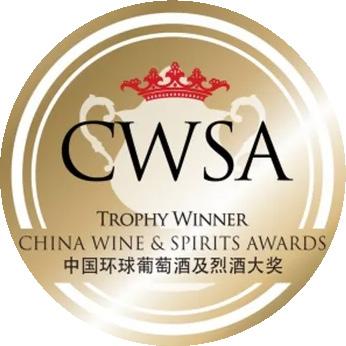





“Ideal for both mixing or enjoying on the rocks... full of buttery molasses, cedar and vanilla”
Distributed by:

Cannes | Green Village, Stand
by WENDY MORLEY


Thabet Musleh, recently named Chief Retail and Hospitality Officer at Qatar Airways, has transformed the airport retail experience at DOH, though he is always sure to credit his team
Thabet Musleh discusses Qatar Duty Free's ambitious growth strategy, innovative approach to customer experience, and commitment to pushing boundaries in the travel retail sector
Delivering a "sense of place" experience, Souq Al Matar recreates the bustling energy and aesthetics of Qatar’s iconic traditional markets. Wicker woven ceilings, arched doorways, wooden-framed windows, and numerous other decorative details deliver an immersive and culturally resonant Souq experience
Under the stewardship of Thabet Musleh, recently named Chief Retail and Hospitality Officer at Qatar Airways, Qatar Duty Free (QDF) is crafting a narrative of innovation and growth that’s capturing global attention. With revenues soaring 22% year-onyear, QDF’s fiscal performance tells only part of the story. The real magic lies in how the retailer is transforming the very essence of airport shopping, blending retail, technology and cultural experiences in ways that are deeply attuned to traveler needs.
For many travel retailers, an event like the FIFA World Cup might have been the pinnacle. For QDF, it was just the beginning. “Many people thought that
we would take a pause post-World Cup, but that was never our plan,” says Musleh. “In 2023 and 2024, we continued launching world-firsts and exclusives, expanding our retail offer.”
This bold stance underscores QDF’s commitment to continuous innovation and expansion. The introduction of the world’s first Louis Vuitton Lounge and the world’s first Dior spa in an airport mark a new era in luxury travel retail, offering a level of exclusivity and personalization previously unseen in airport environments.
Perhaps one of the most captivating additions to QDF’s repertoire is Souq Al Matar. This unique concept brings the essence of traditional Qatari marketplaces into the heart of Hamad

International Airport. Souq Al Matar is a cultural touchpoint that offers travelers a taste of local heritage amidst their international journeys.
“This amazing souq is a staple and at the heart of the QDF offer,” says Musleh. By seamlessly blending traditional architecture with modern retail concepts, Souq Al Matar creates an immersive experience that goes beyond mere shopping, offering a genuine sense of place to millions of international travelers.
Retail for everyone
Musleh emphasizes that the retailer's strategy is about creating a diverse and inclusive shopping experience.
“Customer experience is the essence of everything we do,” he states.
This approach is evident in the
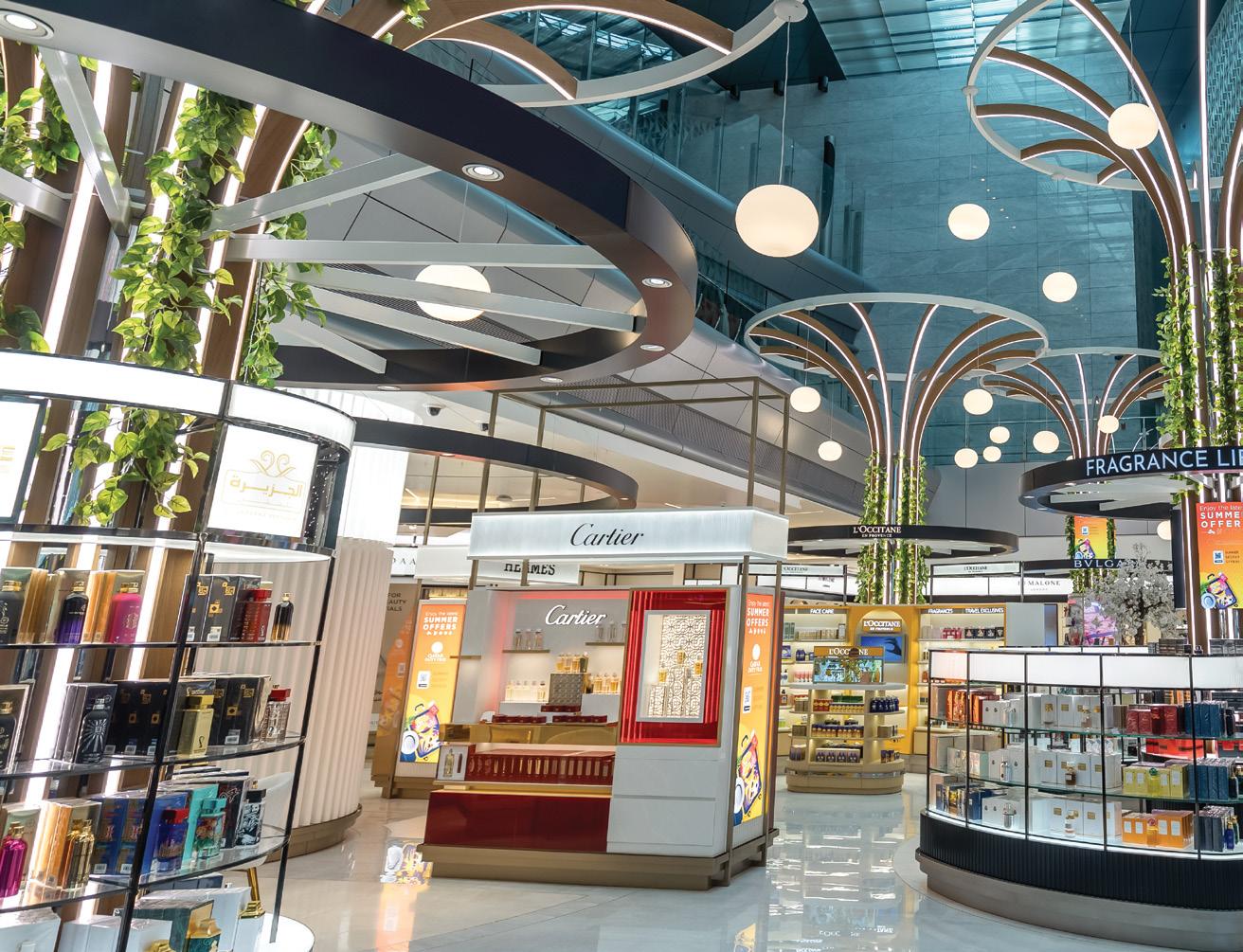
Sheltered from the hustle and bustle, the Dior Luxury Beauty Retreat Doha is described as “an absolute cocoon that will delight visitors’ senses and reinvent the art of travel by providing a genuine moment of well-being”

wide range of retail options available at Hamad International Airport. From high-end boutiques to accessible brands, QDF ensures every traveler can find something that suits their needs and budget. The introduction of world-first concepts and exclusive offerings isn't limited to luxury; it extends across various price points and product categories. Some examples of world-firsts, in addition to the Louis Vuitton Lounge and the Dior Luxury Beauty Retreat, include the world’s first FIFA store.
“As long as our customers are happy, we're confident we'll keep growing strong,” says Musleh. This focus on customer satisfaction across all segments has been a key driver in QDF’s success,
allowing the retailer to not only meet but exceed traveler expectations in an increasingly competitive market.
In an era where data is king, QDF is leveraging its unique position within the airport ecosystem to gain unparalleled insights into traveler behavior and preferences. Musleh states, “As part of the trinity model, we have access to data that nobody else has. We will be launching a new data platform during Q4 of this year and we’ll be taking our brand partners through it in Cannes. I can guarantee you that nobody has anything like what we have got!”
That said, QDF has a measured
approach to digital expansion, reflecting a broader philosophy – one that prioritizes quality and experience over rushing to follow industry trends.
“It’s very common knowledge that we don’t have an e-commerce channel at the moment,” Musleh acknowledges. “I’ve said for years that we will do it at the right level and the right quality that goes in line with our DNA, which is about being an experimental lead business.”
When QDF does eventually enter the e-commerce space, it’s likely to do so with the same flair for innovation and attention to detail that characterizes its physical retail spaces.
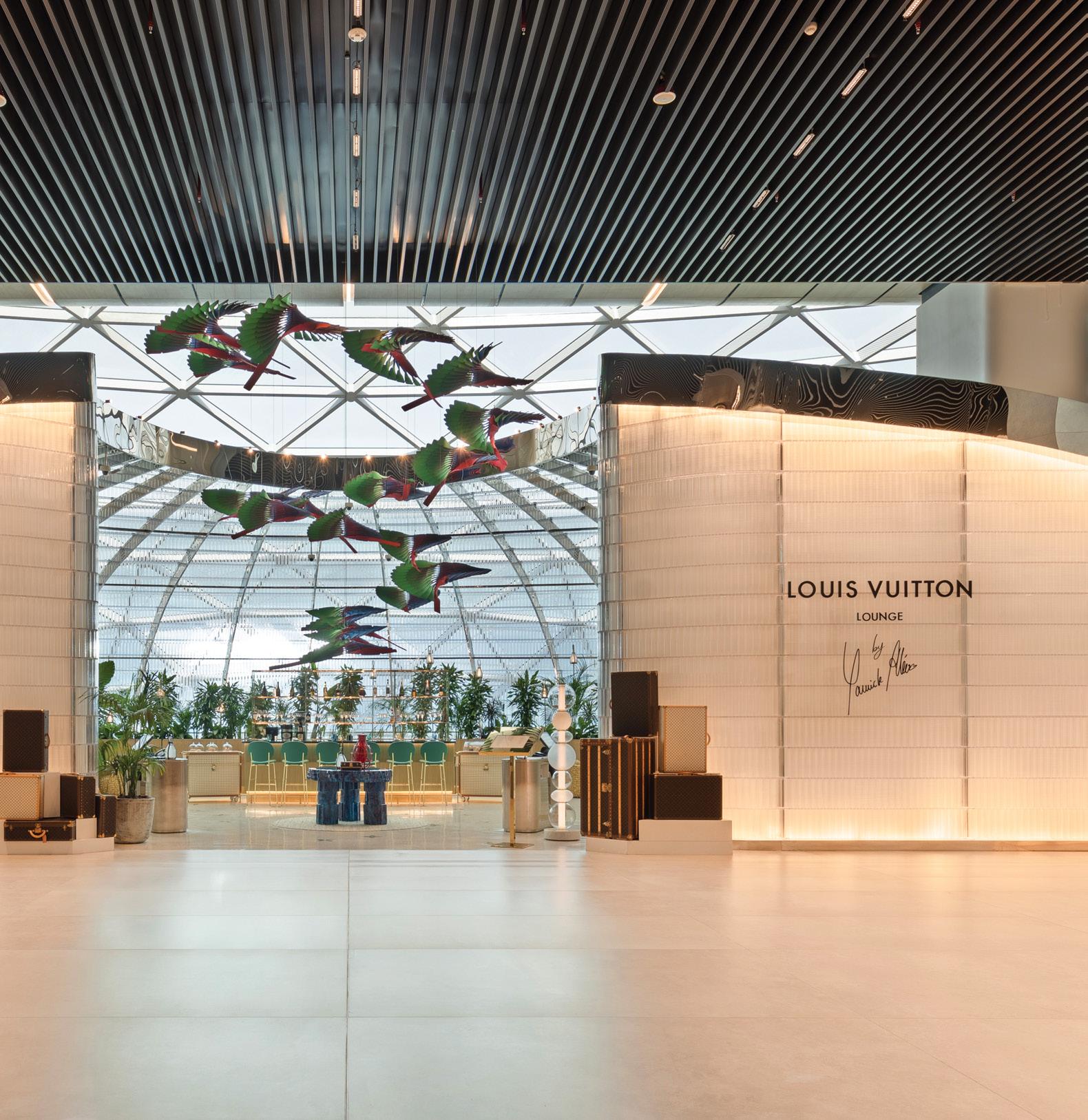
As QDF embarks on this ambitious journey of growth and innovation, Musleh has bolstered his team with fresh talent and perspectives. “We have a new leadership team that I’ve recruited this year that I’m super proud of,” he shares. This injection of new ideas and expertise is crucial as QDF seeks to maintain its growth trajectory and push the boundaries of what’s possible in travel retail.
The focus now, according to Musleh, is, “How do we move it from good to great, and how do we maintain that growth and that consistency.” With this new leadership in place, QDF seems poised to tackle the challenges and
that lie ahead in the everevolving world of travel retail.
QDF’s commitment to growth and innovation shows no signs of slowing down. Musleh reveals the scale of the company’s ambitions. “We’ve already got double-digit projects lined up that will continue to grow the business,” he says.
The retailer’s efforts haven’t gone unnoticed in the industry. QDF has garnered numerous accolades, including several Skytrax awards. Musleh is quick to attribute this success to the collective effort of the entire QDF ecosystem.
“What drives our customers drives us to become better and then ultimately
win these awards,” Musleh says. “We’re very, very proud. We cannot do this without our partners. We cannot do this without the fantastic teams that we have on the shop floor. The awards are for them.”
This recognition not only validates QDF’s innovative approach but also serves as motivation to continue pushing boundaries. By keeping customer satisfaction at the forefront and acknowledging the crucial role of their partners and team members, QDF maintains a holistic view of success that goes beyond mere financial metrics.
Musleh hints at significant developments on the horizon. “You’ll be seeing lots of new things over the next 12 to 18 months,” he says. While specific details remain under wraps, the enthusiasm in his words suggests that travelers can expect compelling innovations in the near future.
These plans are backed by substantial investment, reflecting QDF’s confidence in the future of travel retail and its commitment to leading the industry. The focus remains on creating experiences that surprise and delight travelers, ensuring that every journey through Hamad International Airport is memorable.


Described as the ABCs of travel retail: airports, brands and consumers, Avolta is studying these elements with the aim to reinvent the channel in terms of personalized services, AI adoption and Gen Z. According to the retailer, the impact

by LAURA SHIRK
of technology and globalization has reshaped the landscape driving innovation and expanding market research. In today’s world, it is vital that Avolta is able to respond quickly and effectively, and most importantly, be flexible.
With this in mind, the retailer introduced the Avolta “FLEX” traveler experience. Based on the following principles: Flexibility, Loyalty, Entertainment and the X Factor, Avolta seeks to be adaptable when it comes to presenting new concepts, changing product assortments and implementing digital tools. “FLEX” looks to elevate the customer experience by generating added value via Avolta’s – soon to be relaunched – loyalty program, creating “shareable” moments via gamification
and in-store activation and integrating hybrid concepts, smart store technology and cross-category concepts.
“We know that travelers are looking for iconic, globally recognized brands, alongside more locally sourced and sustainable brand choices. Travelers also want seamless, quicker and easier shopping solutions,” shares Vijay Talwar, Chief Commercial and Digital Officer at Avolta. “We will continue to develop and introduce more of these elements as part of our reinvention of the travel experience over the coming years. We have also introduced more flexible store spaces, so that we can adapt, reconfigure and redesign the spaces in line with developing consumer trends, preferences and demands.”

AI-driven solutions and virtual assistants
It is reported that AI adoption in retail will double in the next three years.
Talwar says that in the airport environment, AI translation can help break down language barriers and provide instant translation of product descriptions and customer interactions, which as a result can improve accessibility and deliver an enhanced experience. Additionally, customer service and engagement can be improved using AI-driven “virtual assistants” that can offer 24/7 support.
As is the case with Avolta, AI also enables contactless checkout experiences with systems like Amazon Go, which the retailer has available at several of its Hudson stores in the US. Shoppers can enter the store, pick up items from the shelves and leave the store without stopping to pay at a register, reduc-

ing queuing times for time-sensitive travelers. As noted by Talwar, it can also be used to enhance digital payment security with biometric verification and fraud detection.
When asked how Avolta is working to provide a safer and more seamless travel experience, Talwar explains, “Avolta stands out with a uniquely stable and global platform, which means it has access to more traveler data than anyone else [in the industry]. For years, AI has made it easier and more cost-effective for us to leverage this rich repository of information.
“We have also implemented AIdriven solutions across our business, allowing us to stay agile and redefine the traveler experience. For example, AI algorithms can be used to analyze customer data and provide personalized product recommendations.”
Shoppers can virtually “try on” products, sample various looks or discover a new fragrance.
Destination 2027 and Gen Z
Generation Z will become the largest global airline passenger group in 2028. To tap into this potential and engage the next generation, Avolta is offering more personalized experiences that cater to their preferences for technology, sustainability and uniqueness. Talwar shares Gen Z has been part of Avolta’s strategic plan since the early days of crafting its Destination 2027 strategy.
“During our in-depth analysis of market trends, customer insights and our stakeholders’ needs, the Gen Z passenger group and its growth, behaviors and preferences were taken into consideration – especially in light of its impact on the future of travel and our post2027 business plans,” says Talwar.
This way of thinking is supported by seamless services such as Click & Collect which provides for pre-ordering of products, complimentary express treatments in-store and multilingual staff members who are able to communicate
with a diverse range of travelers. Across age groups, it is evident an omnichannel approach has become more relevant as it allows the retailer to connect with customers at various touchpoints across their travel journey and deliver a personalized and cohesive message at every stage.
“From the point at which a traveler makes their booking, to the time at which they are physically at the airport or travel hub, there are multiple opportunities for us to make them aware of our product offers, services, exclusives and events, and to share more personalized offers with them.
“We therefore work closely with select third parties including travel booking sites and airport partners to ensure we leverage these touchpoints effectively. And when travelers arrive at the airport, we can use geotargeting to send timely notifications about our offer, as customers move through the airport and through our stores,” says Talwar.
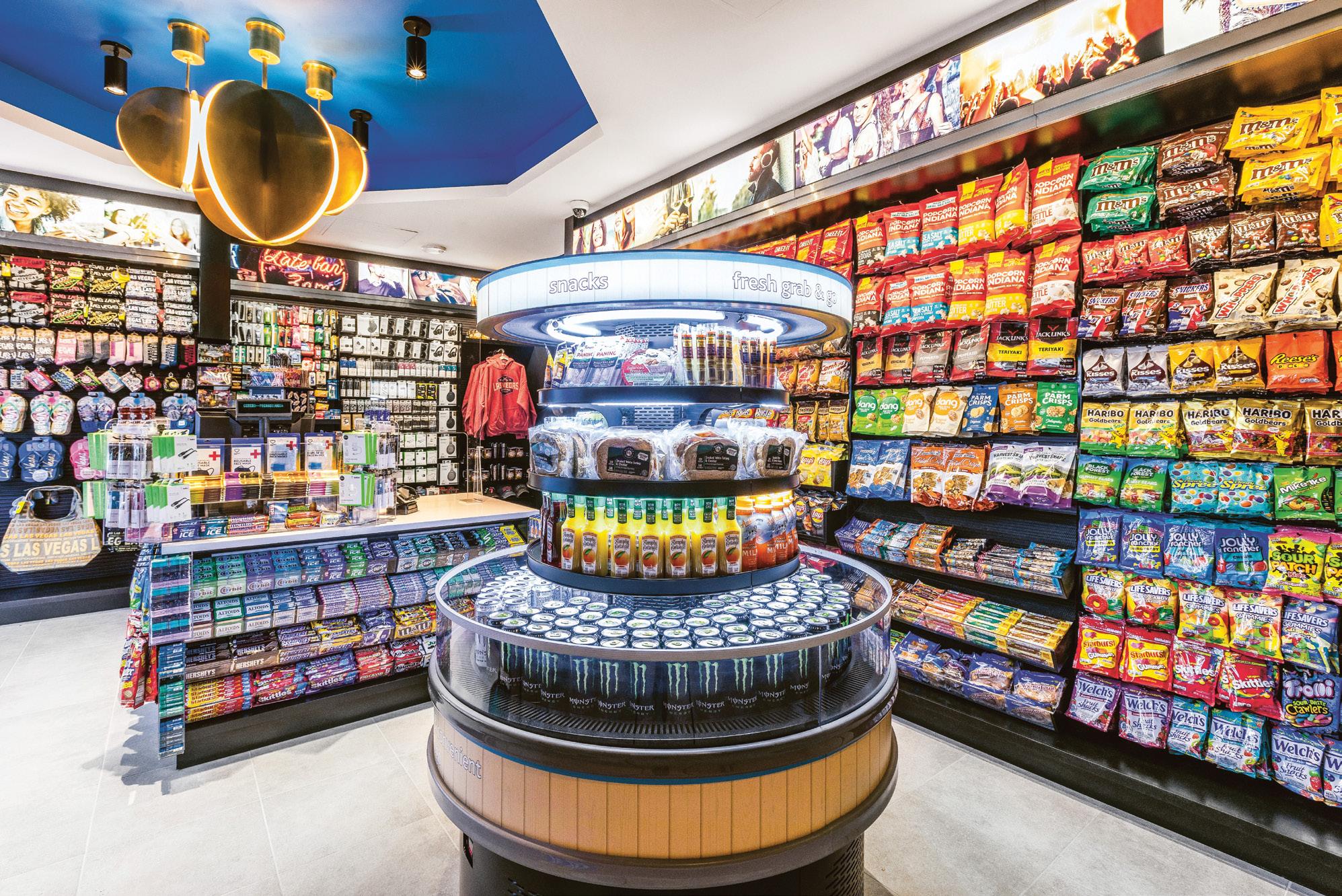




by WENDY MORLEY
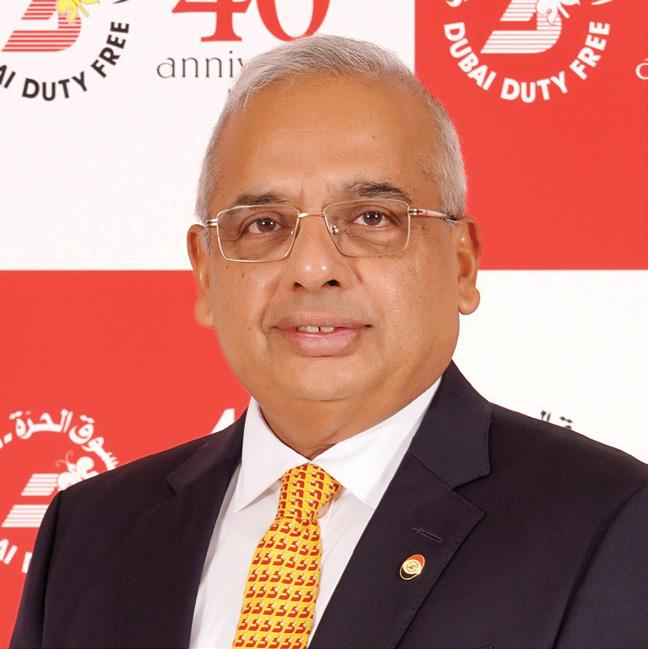
As Dubai Duty Free charts its course through evolving market dynamics, newly appointed Managing Director Ramesh Cidambi faces the dual challenge of addressing current headwinds while preparing for a monumental shift to Al Maktoum International Airport in 2032.
Cidambi, who took the reins from industry stalwart Colm McLoughlin on June 1, acknowledges the strong foundation built over four decades. “We
Dubai Duty Free's new chief Ramesh Cidambi navigates present challenges while steering towards a landmark relocation, balancing current market headwinds with preparations for a massive airport transition in 2032
have a fantastic organization in terms of people, technology and retail offer. At Dubai Airport, we have 40,000 square meters, 183 shops and 6,000 employees. That is really the foundation for us to build for the future,” he says.
This future exists in two distinct phases: operations at the current location until 2032, and the transition to Al Maktoum International Airport thereafter. The immediate challenge lies in optimizing the existing retail offer within space constraints. “There’s no

real possibility of any expansion, and most of our efforts in the next six to eight years will be to freshen the retail offer through renovation, refurbishment and making adjustments to the existing offer rather than any grand new openings,” Cidambi explains.
Concurrently, Dubai Duty Free is actively involved in planning for the move to Al Maktoum International Airport. “We had the first meeting on the retail areas at Al Maktoum on June 7, so the planning is happening as we speak,” Cidambi notes. The new airport is set to eventually accommodate up to 250 million passengers annually.
The transition comes at a time when Dubai Duty Free, like many global retailers, is grappling with softening consumer sentiment. Cidambi points to a notable decline in fashion. “The fashion business for us was down 11% in May, 15% in June and 21% in July. Fashion is 11% of our business.”
This downturn isn’t isolated to a single demographic. Even with the return of Chinese travelers, spending has decreased. “The Chinese passengers are up, but the spend is down,” Cidambi says. He emphasizes that this trend extends beyond just one market
segment, indicating a broader shift in consumer behavior, particularly in luxury goods.
To address these challenges, Dubai Duty Free is implementing a twopronged strategy. The first focuses on energizing frontline staff to enhance customer service and drive sales. “Link selling, where you try to convince a person to buy something else when they’re in your shop, has given us US$40,000$50,000 more in revenue per day,” Cidambi reveals.
The second approach involves close collaboration with brand partners. Cidambi has personally reached out to



































smoothes wrinkles firms replumps reduces dark spots enhances radiance tightens pores hydrates nourishes repairs protects










fashion brands, encouraging them to reassess their strategies. “They’re taking a more positive approach, saying that they are looking at pricing, assortment, the particular demographics of the customers who are coming in, and footfall,” he says.
Despite the current headwinds in the luxury segment, Cidambi maintains a balanced perspective. “That is 11% of our business. What I say to the team is to focus on the 89%,” he states.
As Dubai Duty Free prepares for its future at Al Maktoum, Cidambi outlines a strategic approach to renovations at the current location. "By the time our initiative concludes in mid-2026, we project that roughly 25 to 30% of our retail locations may have been opera-
tional for eight years or longer," he explains.
At that point, the company will reassess its strategy, deciding whether to maintain current operations until Al Maktoum Airport opens or initiate another renovation cycle. This will depend on factors such as the typical five-year depreciation cycle for shop renovations, actual usage patterns, and updated information on Al Maktoum's opening date.
Technology plays a crucial role in Dubai Duty Free’s strategy. Cidambi highlights the retailer’s leadership in digital transformation. “In 1996, we were the first retailer in the region to integrate card authorization with a sale transaction. We were the first in the region to accept
chip and pin cards when they were introduced in 2003.”
The company is also exploring innovative solutions like self-service and scan-and-pay options. “We’re looking at scan and pay, where somebody has a mobile device in their hand. If you’re in a queue and you have four customers in front of you, somebody comes up to you and says, if you’re paying by card, can I start and finish your transaction right away?” Cidambi explains.
Cidambi remains optimistic about the future, viewing current market conditions as cyclical rather than permanent. “The trick in all these situations is to ride the softness in the trading conditions the best you can and be there at the other side,” he says.



Sunil Tuli, Group CEO of King Power Group and President of APTRA, shares insights into the company’s ongoing projects and future plans, highlighting a steadfast commitment to growth in a changing market
by KARUNA TULI


King Power Group Hong Kong is actively pursuing new ventures to expand its regional footprint. “We are currently looking at some tenders we have bid for in Singapore for branded stores at the airport, as well as a project in downtown Singapore, which we hope to be able to announce soon once the details are finalized,” reveals Sunil Tuli, Group CEO of King Power Group.
Over the past year, King Power has grown its Singapore business with five new stores, including two Marc Jacobs,
two Lacoste stores and a Godiva Boutique. The company is also exploring opportunities to expand its business at Hong Kong International Airport.
Tuli emphasizes a flexible approach when it comes to brand collaborations, based on the specific opportunities at each location. “Our retail strategy is about serving the customer at international airports. There is no fixed strategy for deciding which brands to collaborate with; it depends on the opportunities available at the airports and the suitability of the brands for those locations, as well as the ever-changing and growing customer demographics,” he explains.
The travel retail landscape has undergone significant changes post-pandemic, with shifting consumer behaviors and
spending habits. “While the recovery is in progress, passenger numbers are still below 2019 levels in major locations like Singapore and Hong Kong,” Tuli notes. “More importantly, people’s spending habits have changed. Chinese travelers are not present in the numbers we expected and are not spending as much on luxury as they used to. There’s been a drop in the average unit sale in the premium luxury category.”
Despite these challenges, Tuli remains optimistic about the future. “We hope things will get back to normal by the end of the year,” he says.
The company closely monitors recovery trends at different locations to tailor its strategies accordingly. King Power Hong Kong employs data analytics to stay attuned to market changes and consumer preferences. “We collect data through our POS systems to understand


what our passenger profiles are and tailor our product offerings to meet the needs of our customers,” Tuli explains.
“As we see the passenger profile change, we leverage our research and data from organizations like APTRA to stay informed about passenger habits.”
As President of APTRA, Tuli plays a crucial role in shaping the travel retail industry’s response to market challenges and opportunities across the Asia Pacific region. “APTRA provides the industry with valuable insights and advocacy and facilitates collaboration between retailers, brands and regulators to promote growth and sustainability. Building this information and sharing it with the industry allows us all to grow and understand the changing dynamics as we watch travel retail slowly but surely recover,” he says.
As travel resumes, King Power Hong Kong is focused on building loyalty with international travelers, especially
from mainland China and Southeast Asia. “Our goal is to retain customers and build loyalty, particularly in the luxury segment,” Tuli says. This involves creating strategies to encourage repeat shopping at its stores.
Recognizing the rising importance of e-commerce to younger shoppers, King Power Hong Kong is integrating omnichannel retailing to provide a seamless shopping experience. “We work with e-commerce platforms such as iShopChangi where permitted, with the aim of offering our customers a cohesive online and offline shopping journey,” Tuli notes.
The travel retail sector faces several challenges, including fluctuating passenger numbers and changing consumer behaviors. “One of the biggest challenges is the lower numbers of Chinese travelers and their reduced spending on luxury items,” Tuli states. The changing demographics of high spenders has
been unpredictable, and the industry is navigating and re-evaluating key demographics of current and future consumers. King Power addresses these challenges by fostering strong collaborations with brands and suppliers, ensuring optimal product availability and adapting to new market realities.
King Power Group Hong Kong’s commitment to luxury retail is evident in its premium boutiques at international airports. The recently opened Marc Jacobs and Furla stores at Changi Airport in Singapore illustrate King Power’s strategic expansion and established regional presence. Each store is meticulously designed to provide a superior shopping experience, aligning with the company’s mission to cater to international travelers’ tastes and preferences.
King Power Group Hong Kong continues to set benchmarks in the travel retail industry through strategic initiatives, brand collaborations, and a keen understanding of consumer trends.


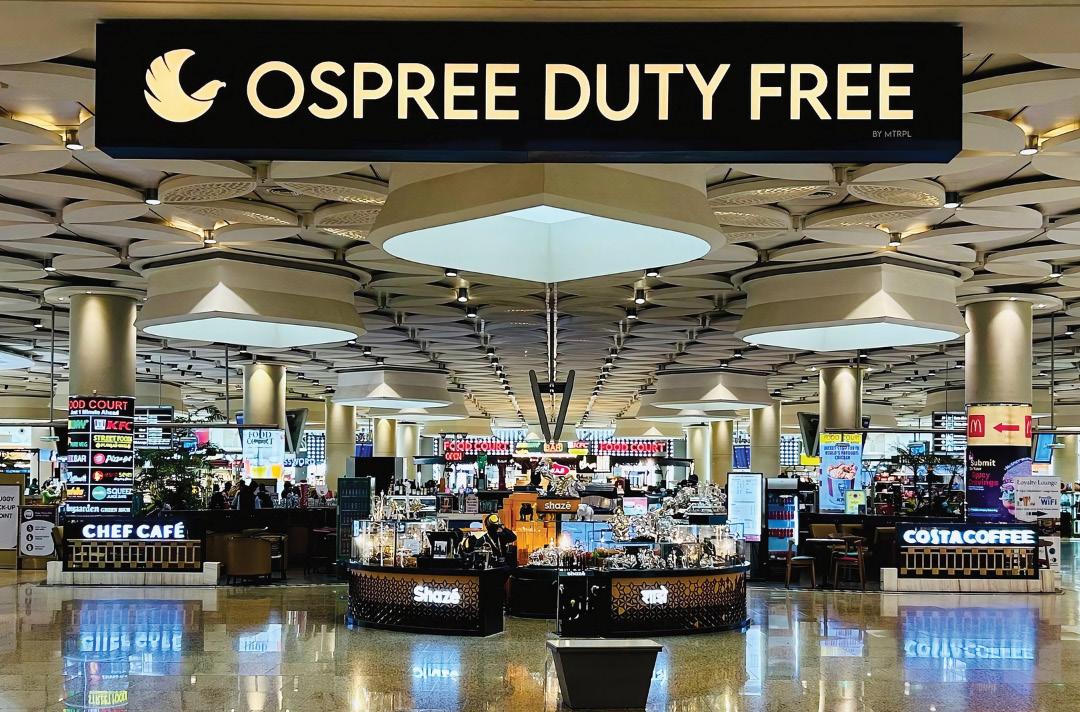
With a strategic rebrand and innovative initiatives, Ospree Duty Free is reshaping the travel retail landscape in India, achieving remarkable growth and setting new standards for customer experience
by HIBAH NOOR
Formerly known as Mumbai Travel Retail Pvt Ltd (MTRPL), the rebranded Ospree Duty Free has emerged as a formidable player in India’s travel retail sector, achieving an impressive 44% year-on-year sales growth in FY 23-24.
The rebranding marks a significant milestone for the company, unifying its diverse duty free operations across seven Indian airports under a single recognizable brand. This strategic move not only consolidates Ospree’s market
presence but also positions the company for global expansion.
“The new name, Ospree, is easier for potential concession partners to understand in terms of both storytelling and for MTRPL to define its strategy in the global duty free shopping arena,” explains Avishek Bambii Das, CEO, Ospree Duty Free.
Seven Ps
At the heart of this success lies its “7Ps of Duty Free Excellence,” a comprehensive strategy that has driven over 100

initiatives across various aspects of the business. “Product, Price, Premiumization, Penetration, Promotion, Presentation, and People – these seven pillars form the foundation of our approach to duty free excellence,” says Das.
The retailer introduced 173 new brands, including luxury items like Kylie


















Cosmetics and Don Julio 1942, significantly expanding its product portfolio. Unique concept stores such as Vue de Luxe for luxury sunglasses and The Bharat Story for Indian luxury goods have contributed to substantial category growth.
This emphasis on premium products has driven a 10% increase in average transaction value (ATV). The company has also prioritized competitive pricing and introduced innovative payment solutions like No Cost EMI and credit card offers to enhance customer value.
Traditionally, Ospree’s business has been predominantly driven by arrivals, accounting for 75% of sales. To address
this imbalance, the company initiated “Project Departures,” aimed at boosting its share in departure stores from 25% to 33%. This strategic shift has yielded impressive results, with a 33% year-onyear rise in sales at departure stores and an increase in store penetration from 6% to over 9%.
Ospree has made significant strides in elevating the in-store experience, resulting in a 33% increase in store penetration and sales per passenger. The company has introduced live performances, including violinists, pianists, caricature artists and even massage services, trans-
forming the shopping environment into an engaging and memorable experience for travelers. “These ‘Speedbreakers’ halted travelers, allowing our staff to then engage with them and drive sales,” Das notes.
The retailer has also expanded its “Duty Free is Now Free” campaign, offering significant rewards and value back to customers, further enhancing the overall shopping experience.
Recognizing the importance of digital innovation in today’s retail landscape, Ospree has leveraged technology to streamline operations and enhance



customer engagement. The company’s partnership with the Adani One app has led to a significant increase in preorders, with contribution growing by over 60%.
“This digital approach has simplified the pre-order process for customers,” Das explains. The company is also developing a dynamic promotion engine to offer additional customized benefits to regular shoppers, further personalizing the shopping experience.
Local empowerment
Ospree’s commitment to sustainability is evident in its digital integration efforts, which have significantly reduced paper
usage across store assets. The company has also transitioned from plastic to recyclable paper bags, setting new benchmarks in responsible retailing.
“The Bharat Story exemplifies our dedication to sustainability and community support. By championing locally sourced products and traditional craftsmanship, we not only celebrate India’s rich cultural heritage but also contribute to upliftment of our impoverished artisans,” Das says.
Expansion and future outlook
Ospree’s success has positioned it for further expansion, both within India and potentially in international markets.
The rebranding is expected to facilitate this growth, making it easier for the company to bid for contracts globally.
Das emphasizes the importance of understanding and catering to regional preferences as the company expands. “Before entering a new market, Ospree conducts extensive research to understand local consumer behaviors, preferences and cultural nuances,” he says. “This includes analyzing popular product categories, price sensitivities and seasonal variations in demand.”
The company’s expansion strategy also includes collaborations with local brands, tailored merchandising, and promotions designed to resonate with local consumers. This approach ensures that Ospree’s offerings remain relevant and appealing across diverse markets. Underlying Ospree’s success is a strong corporate culture that fosters innovation and continuous improvement. Das encapsulates this ethos in the company’s motto: “Be 1% better and faster every day.” This principle, coupled with the company’s raison d’etre of “Differentiated thinking, executed fast,” guides all aspects of Ospree’s operations.
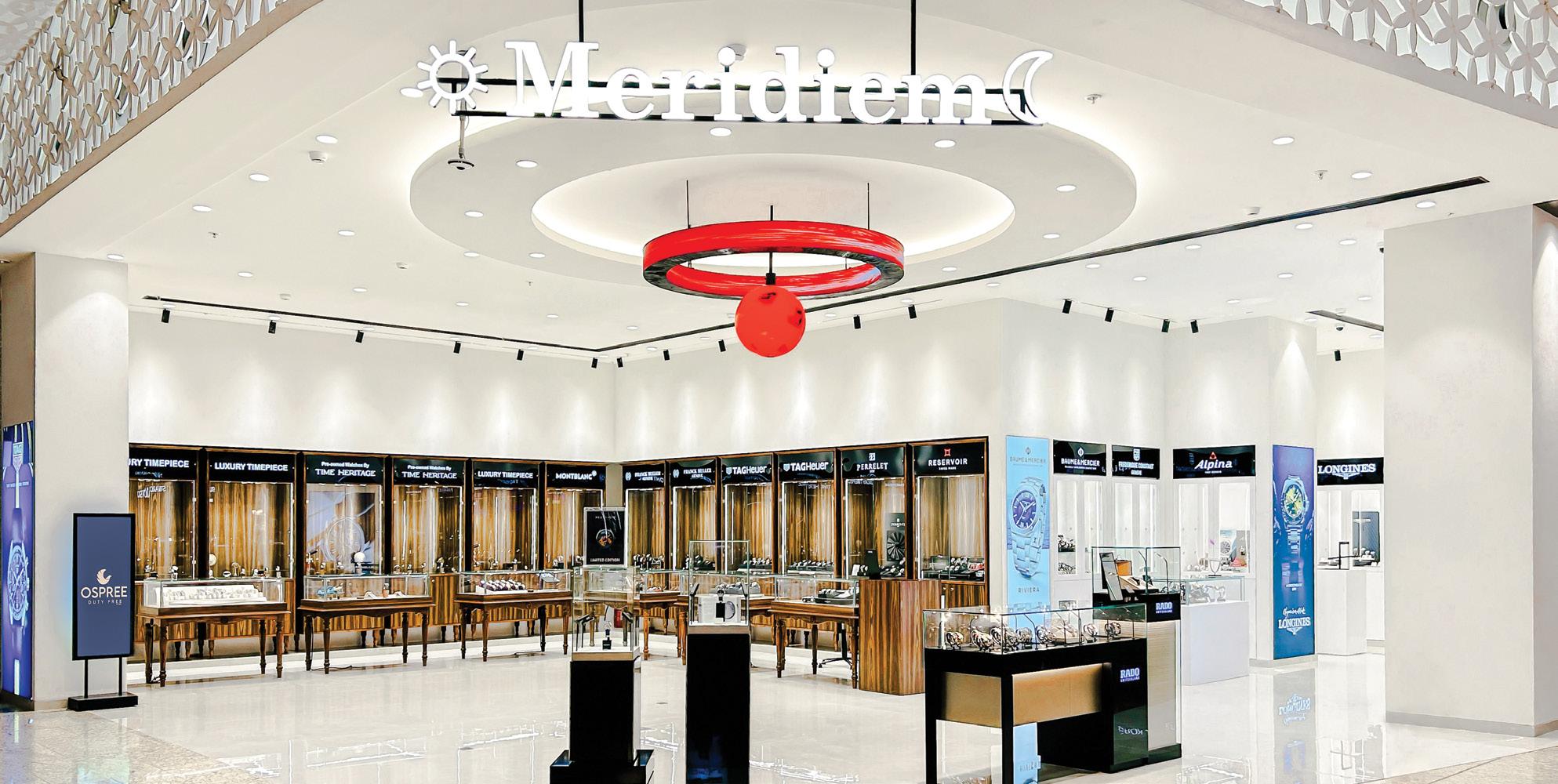
Meridiem, Ospree’s specialized watch emporium, boasts a curated selection of prestigious timepieces like Franck Muller, TAG Heuer, Baume & Mercier, Frederique Constant, Longines, RADO and more, driving a 25% growth
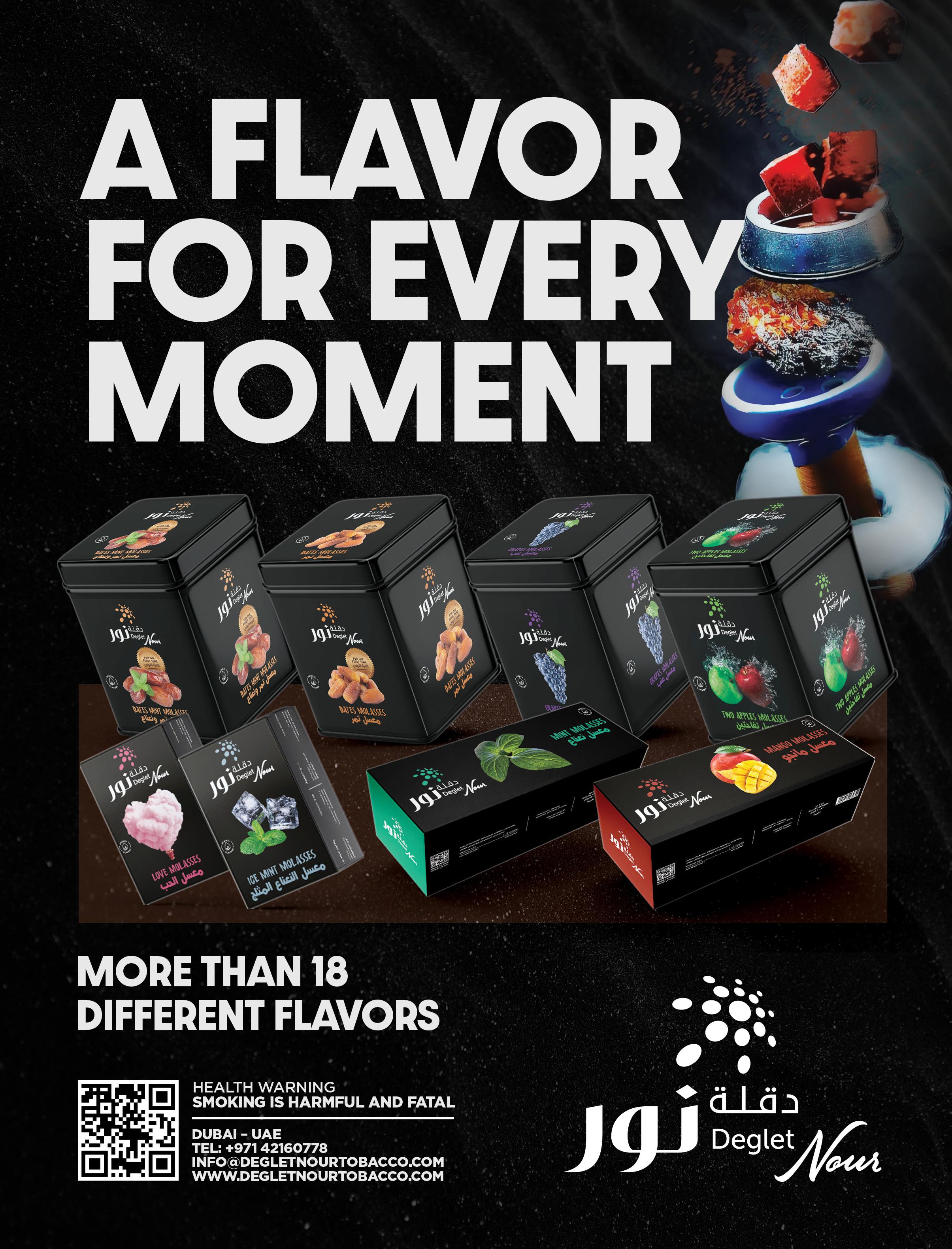
Lotte Duty Free has expanded its global footprint, looking to diversify its portfolio and the creation of an ‘LDF belt’
by HIBAH NOOR

Lotte Duty Free is intent on expansion in travel retail, looking to diversify its portfolio and to the creation of an ‘LDF belt’ spanning Asia and the Pacific.
Whether in downtown stores or airport stores, the leading travel retailer plans to offer customers products and benefits that meet their needs and current trends.
According to Jun Young Lee, Head of Strategy & Planning Division, Lotte Duty Free, 2023 marked significant changes in the travel retailer’s overseas operations. In December last year, the Singapore Changi Airport store opened its duplex store in Terminal 3, complet-
ing the opening of all 19 zone stores. Lotte Duty Free also successfully resecured the ten-year business rights for the Brisbane Airport store in Australia.
He notes that Lotte Duty Free currently operates 14 stores in six countries, including Japan, Australia, and Vietnam, and is striving to diversify its global portfolio.
Following the post-COVID recovery of airport passenger numbers and tourists, the normalization of store operations and the opening of new stores led to approximately 130% growth in overseas sales in 2023 compared to 2022.
“Lotte Duty Free leverages its operational know-how to offer products tai-
lored to the regional characteristics and main customer group of each overseas store,” Lee says. “Based on stable local partnerships, we plan to continuously strengthen our dominance in the duty free markets of various countries.”
He highlights how the opening of a character specialty ‘Ginza Friends’ store in Tokyo, Japan in July, attracted a diverse range of international customers and multiple age groups. He also notes how the Changi Airport store in Singapore is leading the global liquor market by showcasing various pop-ups and limited-edition products through collaborations with renowned brands such as Diageo and Moët Hennessy and























that the Oceania region is “also captivating customers through localization in various aspects, including product assortment and store design.”
Lee says Lotte Duty Free will increase the share of overseas stores by recovering demand at airport stores and gaining global mindshare.
An ‘LDF belt’ across Asia and the Pacific Considering regional expansion and Lotte Duty Free’s mix of airport and downtown stores, Lee says, “Going forward, we will focus on creating an ‘LDF belt’ that spans Asia and the Pacific by restoring global demand centered on overseas airport stores, and we will focus on internal management that considers profitability rather than simply focusing on external growth.
“Whether in downtown stores or airport stores, we plan to meet customers with products and benefits that align with their needs and trends.”
He also notes the expansion of individual tourism instead of group tourism, with culture and experience becoming more important than shopping. To gradually reduce dependence on Chinese “bundle dealers”, Lotte Duty Free has introduced various marketing activities to attract not only Chinese tourists, but also international individual tourists.
In October 2023, Lotte Duty Free opened its first experiential duty free showroom, and, earlier this year, targeted individual tourists through the introduction of a mileage program allowing customers to receive free gifts with accumulated mileage based on their purchases.
Lee expects the trends of small group tours and individual tours to continue.
“In line with this, we plan to reorganize our brand lineup to cater to younger tourists and continue to increase
experiential contents such as pop-up stores,” he says. “We also regularly invite VIP customers from overseas to attend private yacht parties, fan meetings, and other events to enhance customer satisfaction.”
He details Lotte Duty Free’s reaction to a shift in passenger shopping, especially when it comes to luxury goods. “We plan to steadily increase the sales proportion of other categories such as alcoholic beverages and electronics,” Lee says. “The demand for online purchases of alcoholic beverages in the duty free market is continuously increasing, and the sales proportion of the liquor category is expected to grow even further.”
“In the first half of this year, the online sales proportion of the liquor category among domestic customers was approximately 80%, and it is anticipated that liquor sales in duty free shops will continue to expand, primarily online. Accordingly, Lotte Duty Free is also working to strengthen our liquor lineup


NEW AGE ALCHEMISTS EXPERTLY BLENDING BOTANICALS SINCE 1878
and increase price benefits,” he continues. In the electronics category, Lee spotlights the strong performance of massage devices in travel retail. “While massage devices were previously popular mainly among older age groups, they have now emerged as a trendy item among the MZ generation, leading to the release of various new products. This trend is expected to spread to foreign customers as well, leading to continued sales growth in the future,” he adds. Related to Lotte Duty Free’s position at the forefront of social media in travel retail is its strength in live shopping events and ‘entertourment’ marketing. Lee notes how the retailer catches the attention of customers through youthfocused entertainment such as K-pop bands, family concerts, web dramas, music videos and more.
In August, Lotte Duty Free hosted a Super Junior fan meeting to attract foreign tourists, offering them a wide selection of entertainment along with duty free shopping benefits. And in June, Lotte Duty Free became the first in the domestic duty free industry to introduce a 'Celeb Shop' in its online duty free store. The platform features products curated and co-purchased by social media influencers.
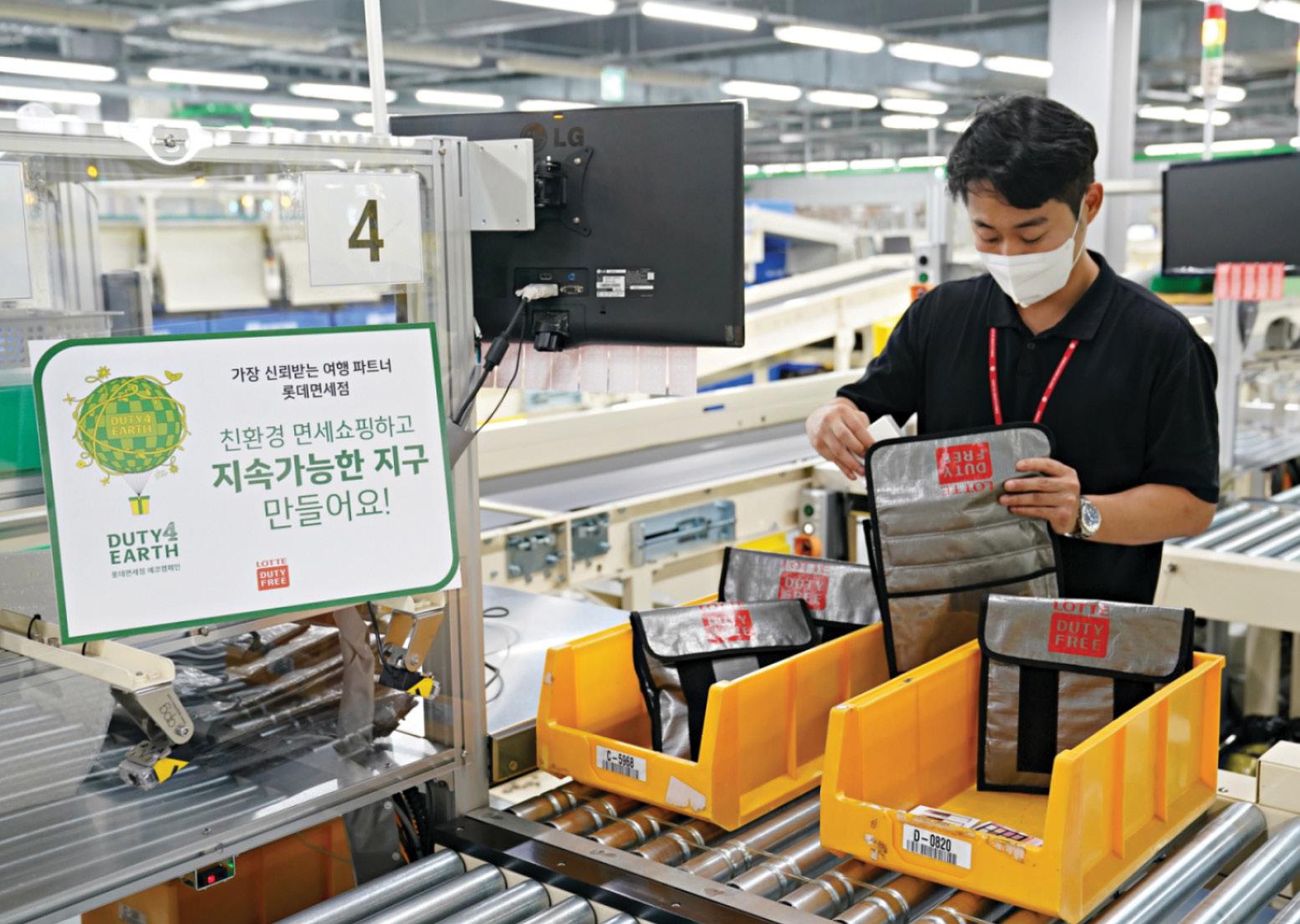
Moving forward, Lee says Lotte Duty Free plans to continue leveraging K-content and social media to provide more customers with the joy of duty free shopping while offering unique experiences.
In line with the growing importance of ESG activities globally, Lotte Duty Free regards itself as a leader in ecofriendly management within the domestic duty free industry. The company strives to reduce unnecessary resource waste throughout the entire duty free
business process, from delivery sites and logistics centers to offline stores at the customer's point of contact. Tarpaulin and paper shopping bags have been introduced to reduce plastic waste as Lotte Duty works to build eco-friendly duty free stores using solar power generation facilities and electric vehicles. The travel retailer is also introducing eco-friendly paper shopping bags to gradually reduce the use of disposable plastic shopping bags, with plans to reduce the amount of plastic cushioning materials by more than 50% compared to 2019 levels by 2027.



*Based on an in vitro study, showing improvement in Collagen Type 1 when using PREVAGE® Serum and Cream together.

Phillip Nguyen, the CEO of IPP Travel Retail is reshaping how travel retail operates in Vietnam, blending tradition with modernity to meet the demands of a new generation of consumers
by KARUNA TULI

CEO of IPP Travel Retail
Phillip Nguyen’s journey into the travel retail industry is deeply intertwined with his family’s history. “I’m a secondgeneration entrepreneur. My father, the chairman of our group, has been a mentor to me. Growing up, I was immersed in the duty free world, understanding its significance in our portfolio here in Vietnam,” Nguyen says. His early exposure to the industry, combined with formal training under the DFS Group in San Francisco and Guam, has equipped him with a unique perspective on the business.
A subsidiary of the IPP Group, IPP Travel Retail has established itself as a major player in Vietnamese travel retail. With a rich legacy rooted in the pioneering efforts of Nguyen’s father, the company has grown from strength
to strength. IPP Travel Retail operates over 40 stores across Vietnam, including high-traffic locations like airports, downtown duty free stores and luxury retail outlets. These stores offer a diverse range of duty free products including liquor and tobacco, as well as luxury goods and local souvenirs.
One of the most remarkable aspects of IPP Travel Retail’s recent growth is its embracing of technology. The company has integrated advanced data analytics to understand consumer behavior better and tailor its offerings accordingly. “The world has changed in terms of what duty free means. Today, we see an increasing demand for craft beers, wines and a variety of tobacco products,” Nguyen notes. The digital age has
EACH TERROIR’S RESPECTIVE TOBACCOS CREATE DIFFERENT SENSORIAL EXPERIENCES · DIFFERENT GROWING CONDITIONS BRING YOU DIFFERENT FLAVOUR PROFILES ·

brought about significant changes in consumer habits, particularly among younger generations, and IPP Travel Retail is adapting swiftly to these trends. Vietnam’s strategic location as a logistics hub has also played a crucial role in the company’s expansion. “Vietnam’s role in the global economy is significant. We are a gateway to many key markets, including the Middle East, Australia, China, and Russia,” Nguyen explains. This geographical advantage has allowed IPP Travel Retail to cater to a diverse range of international travelers, enhancing its market presence.
The evolution of consumer trends Nguyen has witnessed firsthand the evolution of consumer trends in the travel retail sector. The rise of Gen Z,
characterized by their tech-savviness and demand for personalized experiences, has influenced IPP Travel Retail’s strategy. “Data consumption is crucial in deciding what the future holds. We have to align with government strategies on e-visas and visa-free entries, ensuring security while catering to the evolving needs of travelers,” Nguyen emphasizes.
IPP Travel Retail’s ability to adapt to these changing demands is evident in its innovative approaches. For instance, the company has pioneered the concept of integrating retail with the hospitality industry. By collaborating with hotel chains and leveraging their guest data, the company offers tailored retail experiences that enhance customer satisfaction and drive sales. “We engage with hotel general managers to under-
stand their operating expenses and how we can alleviate them through strategic partnerships,” Nguyen says.
Strategic partnerships and expansions
IPP Travel Retail’s strategic partnerships extend beyond the hospitality industry. The company has formed alliances with global brands such as Estée Lauder to introduce new retail concepts in Vietnam. “We’re launching the first-ever Estée Lauder model in domestic Hanoi, a significant milestone for us,” Nguyen reveals. This partnership is set to revolutionize beauty retail in the country, catering to both domestic and international consumers.
Furthermore, IPP is exploring opportunities in the cruise industry, target-



ing the 16 million cruise passengers Vietnam welcomes annually. “We see a huge potential in duty free operations at cruise terminals. It’s a different market with unique needs, from replenishment of essentials to luxury goods,” Nguyen explains. This expansion into new segments demonstrates the company’s commitment to diversifying its portfolio and capturing emerging markets.
A visionary leader Nguyen’s leadership is characterized by a forward-thinking approach and a deep understanding of the travel retail landscape. Despite being relatively new
to the role, his vision for the company is clear. “My heritage comes from an innovator who earned the trust of global brands like Moët Hennessy. We are a 49% shareholder in Moët Hennessy Vietnam, and we aim to build on this legacy,” he states.
The future of Vietnam’s travel retail sector looks promising under Nguyen’s leadership. With ongoing expansions, strategic partnerships and a focus on sustainability, IPP Travel Retail is poised for continued growth. As the company prepares to launch Long Thanh Interna-
tional Airport, with a capacity of 25 million passengers, the emphasis is on building strong foundations for future success.
“We are transitioning from focusing solely on passenger services to developing entire airport cities. The next few months are critical as we finalize key projects and strengthen our current operations,” he concludes. His vision for IPP Travel Retail is one of innovation, resilience, and strategic growth, ensuring that Vietnam remains a pivotal player in the global travel retail market.
Over
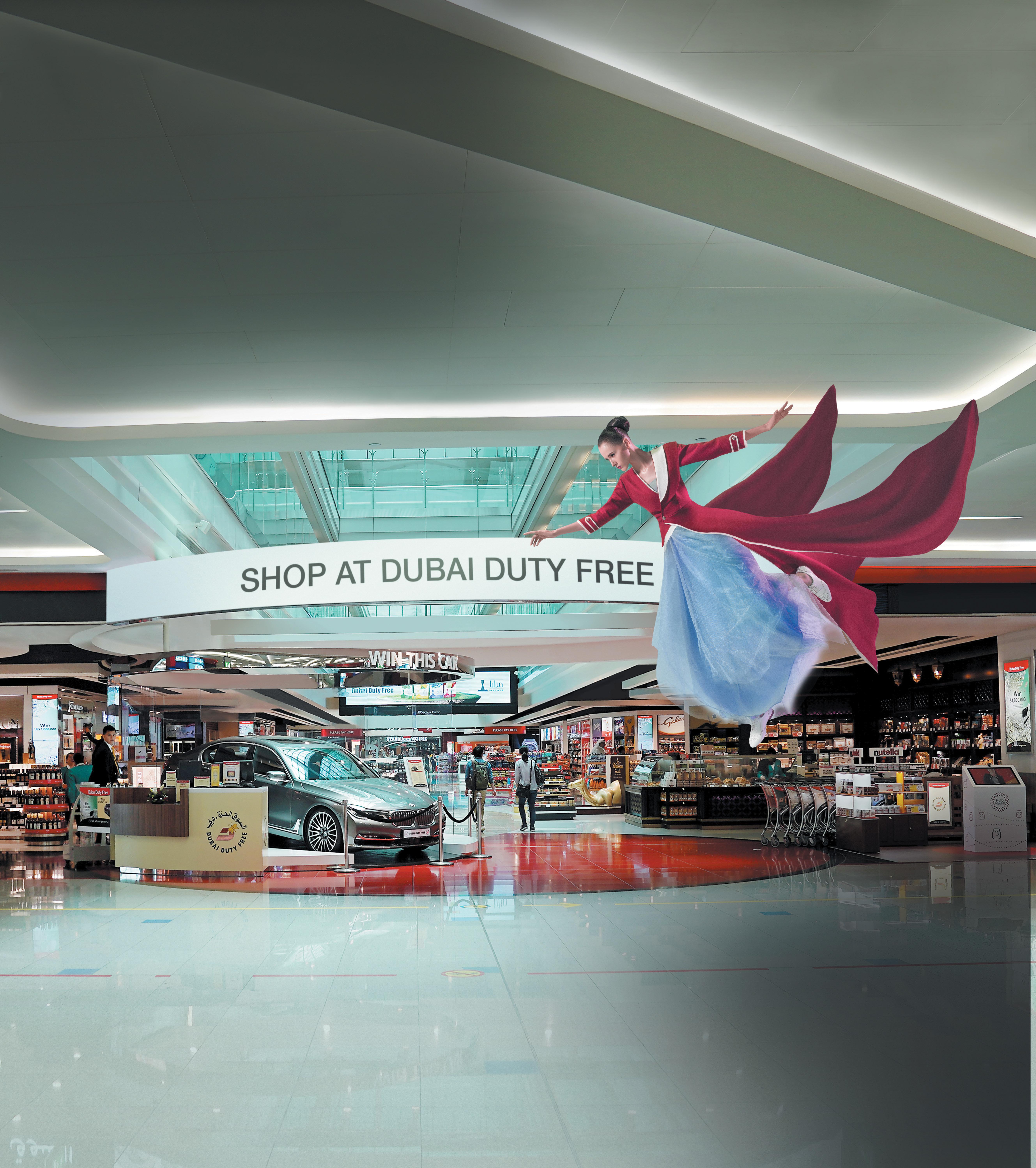
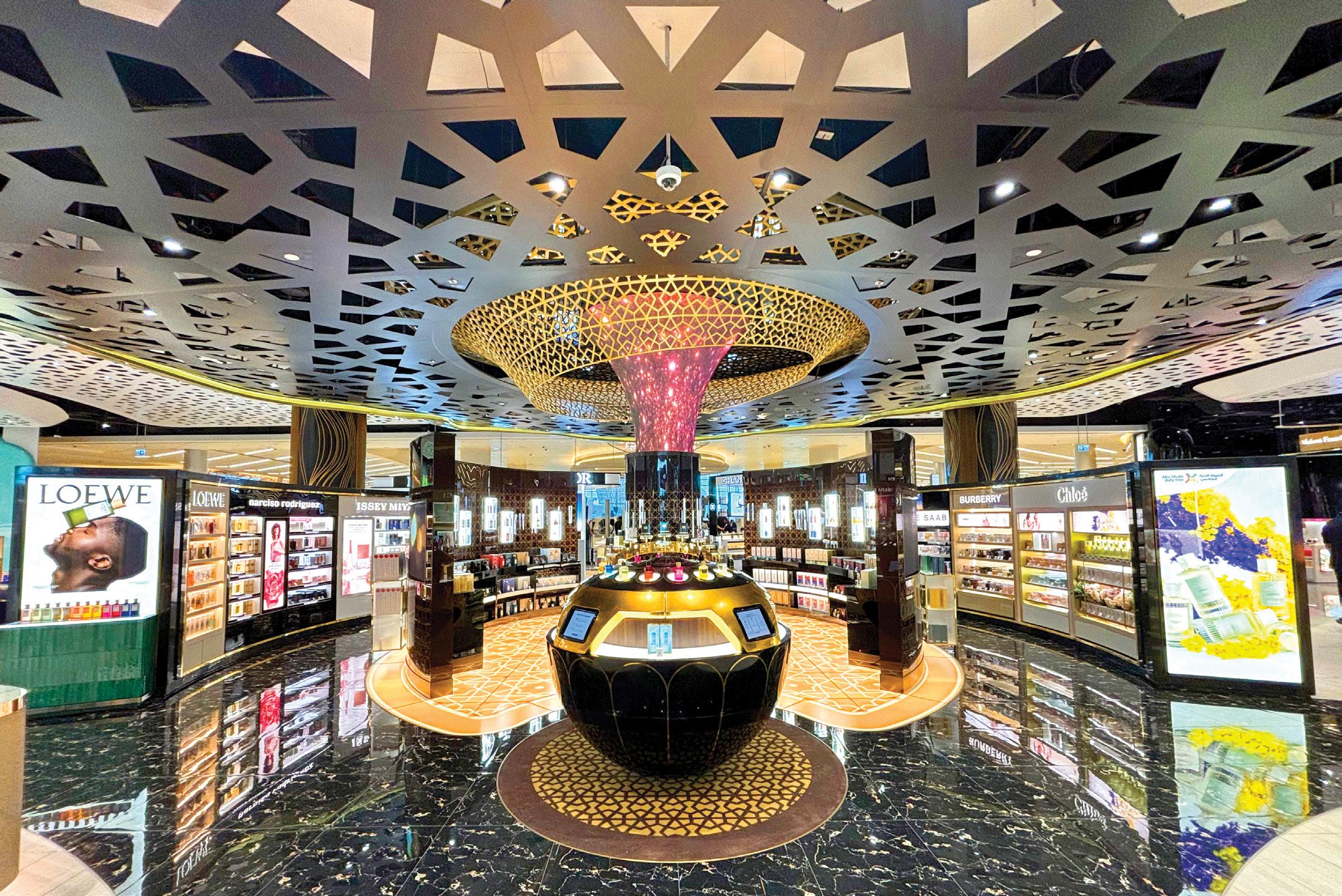
ARI’s new flagship store at Zayed International Airport is setting new standards in airport shopping, blending Emirati heritage with cuttingedge technology to align with the hub’s ambitious growth strategy and passenger-first approach
by WENDY MORLEY
The travel retail landscape at Abu Dhabi’s Zayed International Airport has been transformed with the opening of ARI’s new flagship store in November 2023. This expansive retail space, spanning 2,608 square meters, represents a significant milestone in the airport’s strategy to enhance passenger experiences and solidify its position as a leading international hub.
“Overall, the store has exceeded expectations, aligning well with the airport’s strategy to enhance passenger experiences and boost its status as a
leading international hub,” says Adrian Bradshaw, General Manager of Travel Retail Sales and Services (TRSS), reflecting on the store’s performance since its launch.
This success is bolstered by a substantial increase in passenger traffic through Terminal A. In the first half of 2024, the terminal welcomed 13.9 million passengers, marking a 33.5% year-on-year increase. This surge in foot traffic has significantly contributed to the strong performance, creating a bustling retail environment that caters to a diverse
clientele.

Adrian Bradshaw, General Manager of Travel Retail Sales and Services, emphasizes the store's commitment to blending Emirati heritage with modern luxury, creating a unique shopping experience for international travelers
A standout feature of the new store is its commitment to creating a unique sense of place. The design philosophy seamlessly blends traditional Emirati elements with contemporary luxury, offering passengers an immersive cultural experience. Stunning art installations and sculptures are strategically placed throughout the space, while carefully chosen colors and motifs evoke the essence of the Emirati landscape and heritage.






COME DISCOVER OUR PRODUCTS AT THE TFWA CANNES EXHIBITION Bay Village - Bay 39

“We’ve managed to showcase the fusion of traditional and modern elements that define Abu Dhabi, where heritage meets luxury,” says Bradshaw. “The design embodies the rich local culture, integrating elements of Emirati architecture and art with stunning art installations and sculptures.”
Innovation and technology play a crucial role in enhancing the customer experience at the new ARI store. The retailer has incorporated cutting-edge digital platforms and interactive displays to create a more engaging and personalized shopping journey. These technological integrations are particularly evident in key product categories.
The fragrance section, aptly named “Essence of Arabia,” offers a multisensory exploration of scents through interactive displays. This innovative approach allows customers to engage with fragrances in a novel way, moving
beyond traditional sampling methods. In the sunglasses section, a digital “magic mirror” utilizes augmented reality technology to help customers find the perfect pair for their face shape, merging practicality with a touch of high-tech entertainment.
Notwithstanding the store’s initial success, ARI remains committed to continuous improvement and adaptation. The diverse passenger profile at Zayed International Airport presents both opportunities and challenges. “The passenger profile is quite broad and diverse, so we are constantly evolving and adjusting our offering to make sure we have the best range to meet passenger needs,” says Bradshaw.
This commitment to flexibility extends to ARI’s product offerings. The beauty category, featuring over 100 brands, has emerged as a top performer. The selection includes a mix of niche

fragrances and high-demand brands, many of which are exclusive to the region. This carefully curated range reflects ARI’s strategy to provide a diverse and unique shopping experience that caters to the varied preferences of international travelers.
Sustainability is another key focus area for ARI, reflecting the growing global emphasis on environmental responsibility in the retail sector. The store’s design and operations adhere to ARI’s ESG standards and practices, as well as local Estidama regulations, which focus on sustainable building and operational practices. This commitment to sustainability extends to product selection and packaging, with ARI actively working with brand partners to promote more environmentally friendly options.
Looking to the future, ARI’s plans for growth are closely aligned with the airport’s expansion strategies. The retailer is poised to capitalize on emerging opportunities, leveraging its prime retail space to maximize passenger engagement and sales. This forward-thinking approach is guided by ARI’s comprehensive Customer Value Proposition, which Bradshaw describes as encompassing “exceptional range and value, a bespoke sense of place, a hyperconnected experience, great retail theater, convenience, sustainable solutions, unrivalled customer service, and a safe shopping environment.”
The success of ARI’s new store at Zayed International Airport is underpinned by strategic partnerships, particularly through TRSS, a joint venture between ARI Middle East and local partners. This collaboration has been instrumental in developing bespoke retail concepts and securing exclusive product ranges for the region.
“From a business partnership point of view, it’s about collaboration, innovation and flexibility as we work towards business success,” says Bradshaw.


at the TFWA World Exhibition & Conference CANNES
booth number AA11
Yellow Village -1 ONE PACK, SIX WORLDS OF PLEASURE
In early 2024,
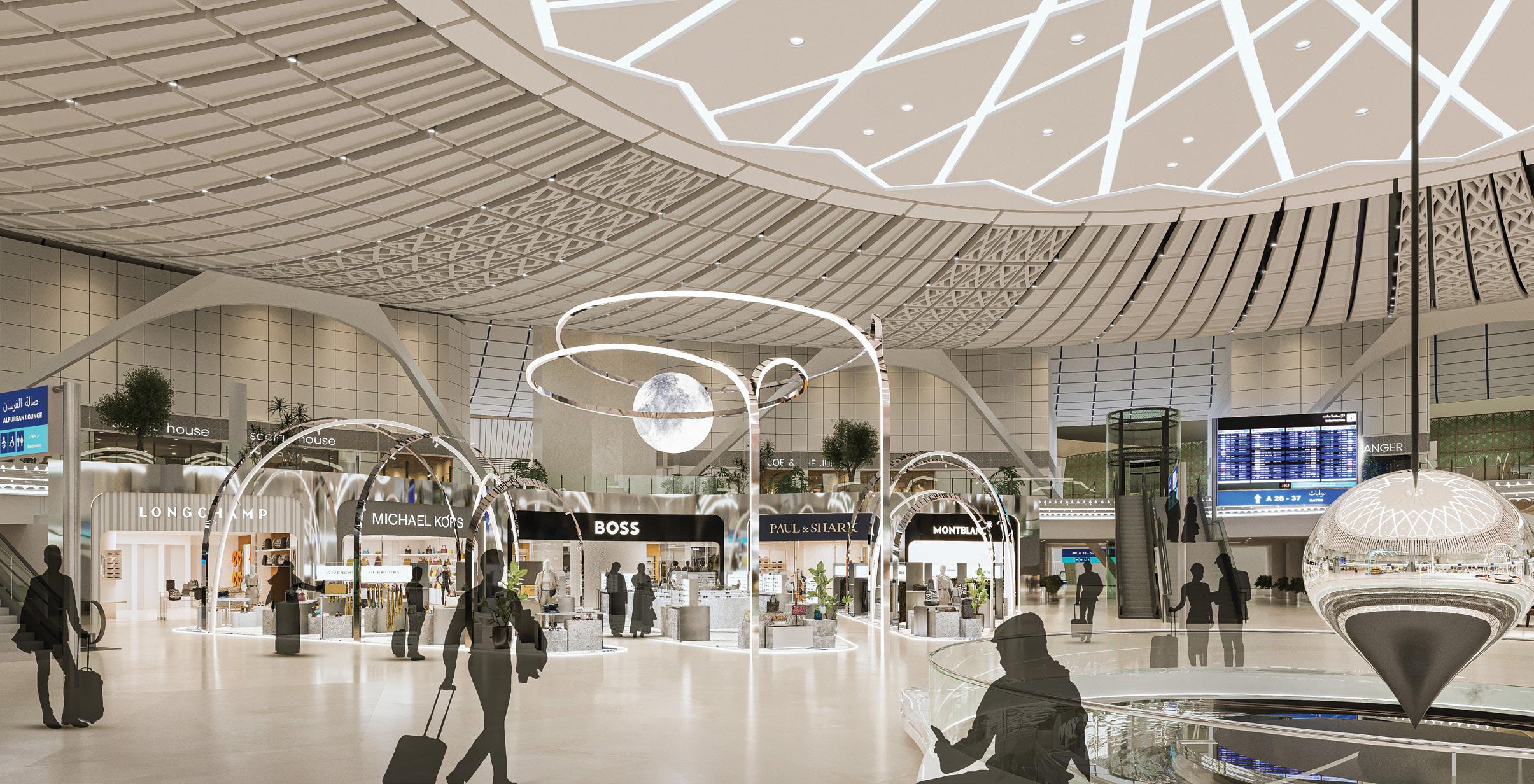
Leading Germany-based travel retailer Gebr. Heinemann is focusing on targeted growth in the Middle East and Africa; recent acquisitions demonstrate the region’s potential, according to Bernard Schlafstein, Director Sales Middle East and Africa, in an interview with Global Travel Retail Magazine
by ALISON FARRINGTON

During its earnings call in April this year, Gebr. Heinemann announced it was “very satisfied” with its financial performance in 2023. The company reached €3.6 billion (US$4 billion) in turnover compared to €2.9 billion (US$3.2 billion) in 2022, representing a 25% jump. At that time the company said it was due to taking “important strategic steps in order to diversify the business.” Regional sales highlights include joint venture operations in Turkey and Israel, which reached US$1.1 billion and US$500 million respectively in 2023, despite geo-political headwinds affecting these locations.
These strategic diversification plans will continue to focus on the Middle East and Africa (MEA) region, where Heinemann recently won the retail concession at Jeddah Airports and for stores aboard AROYA, the first cruise ship for Cruise Saudi, both due to launch in 2025.
MEA accounts for almost one third of Gebr. Heinemann’s overall turnover, with the company active in retail and distribution businesses across over 40 countries in the region. “This is a great basis to leverage further growth potential for our business in the Middle East as well as in Africa across all sales












channels,” confirms Bernard Schlafstein, Director Sales MEA.
According to Airports Council International (ACI), airports in the Middle East are expected to handle 1.1 billion passengers by 2040. This represents a significant increase of nearly 300% from the region’s traffic in 2019 (405 million). Significant investments in infrastructure are required to accommodate this growth, says Schlafstein. “Already today, countries in the region are making large investments in constructing new airports. This outlook, combined with an attractive spend per PAX in the region, provides several opportunities for travel retail,” he says.
A key driving factor for Heinemann’s ongoing global planning is staying close to partners and customers. To be well connected within MEA, the company recently strengthened its local Dubai









hub, headed by Oleksandr Shevchenko, Head of MEA Dubai Multi Commodities Centre (DMCC). “This way, we are able to strengthen our existing partnerships, as about 70% of customers from Africa have their offices in Dubai, as well as increasing potential new customers,” says Schlafstein.
One highlight in H1 2024 for Schlafstein was the concession win for Jeddah’s King Abdulaziz International Airport in Saudi Arabia, a new joint venture with JAH Arabia International Duty Free, via partners Jordanian Duty Free Shops and the Astra Group. “Teams are now working on bringing our vision for this airport to life. In August we took over operations and started the construction. The official opening will take place in Q2 2025,” he says.
Schlafstein has high expectations for increased performance in Saudi Arabia, which he considers a dynamic development market. The tourism sector is a key part of the country’s “Vision 2030” and its aim for annual visitors was recently increased to 150 million by 2030.
The government is planning for strong growth in its aviation industry. By 2030 the country wants to deliver service to about 300 million passengers per year and be connected to 250+ destinations. The plans include key infrastructure projects like the new Riyadh-based King Salman International Airport, which will have a capacity of 120 million passengers. In addition, a new NEOM International Airport is being developed to serve the Red Sea developments in the north-west of the country.
Based on these figures, Schlafstein expects passenger numbers to rise, along with an increase in travelers targeting Saudi Arabia as a destination. “This is very promising for the travel retail business at [these] airports. In addition, on the regulatory side, the country is making progress, as the recent decision to allow arrivals duty free shows,” he says.
Schlafstein also sees growth potential for other sales channels: in border shops and in the cruise business. “Our colleagues from the cruise department are already looking forward to starting the operation aboard the country’s first cruise ship, AROYA,” he adds.
Africa rising Heinemann is active in 35 countries in Africa, and Schlafstein believes the market has unprecedented potential. “A key driver will be the significant increase in purchasing power expected for Africa’s middle classes in the years to come. This overall development, combined with the growth of the aviation industry across the continent, will provide great opportunities for the travel retail industry at airports," says Schlafstein.
Inflight and border shops are also on Schlafstein’s growth plan. “We have already established a solid footprint for our distribution business to border shops, and we see a huge potential for further growth in this channel.”
Schlafstein is convinced the company will benefit from its openness to different business models and partnerships in Africa. “We are always keen in supporting our customers to provide state-ofthe-art duty free shops and offers to travelers. Therefore, we are happy to share our expertise as a globally operating company in fields like shop design or category management and at the same time we are benefiting from their expertise on local conditions or local business practices,” he concludes.















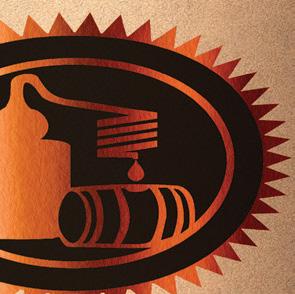







tried and true

Enjoying a period of strong growth, the travel retailer is focused on its ability to offer a world-class travel retail shopping experience
by HIBAH NOOR

With an eye to the future, Iraq Duty Free is underlining its commitment to customer service and sustainability.
The travel retailer has welcomed a sharp increase in sales since the recent reopening of its Babylon Duty Free shop at Baghdad International Airport’s International Departures Terminal.
The shop’s bold new look, with perfumes & cosmetics claiming a standout presence, is a clear indication of what
the travel retailer’s offer, be that at airport or downtown stores, will look like in the future.
Expansion plans are key to Iraq Duty Free’s strategy, with the travel retailer set to expand its downtown duty free business with a shop in Al-Karkh on the western side of Baghdad. That store will mark its second off-airport location in the Iraqi capital with further downtown stores nationwide in the coming years. Renovations are also scheduled for the Baghdad International Airport Samarra

arrivals duty free store later this year, along with Iraq Duty Free’s Basra International Airport operation.
Considering the impact of the new-look Babylon Duty Free shop, an Iraq Duty Free spokesman said, “The redesign of the shop has given an excellent overall shopping experience, in particular for our top-selling category perfumes. The introduction of new brands into the niche segment in our shop has added to sales, including brands such as The House of Amouage, Jardin de Parfum, Argos to name a few in addition to our new arrival brands of face, hair and body such as L'Occitane and Sol de Janeiro offering travelers a wider selection of items that are in demand but not previously available. This has boosted sales tremendously.”
The spokesman said improved brand and product presentation has led to a sharp increase in sales in the perfumes & cosmetics category. “The relocation of categories such as confectionery, liquor and tobacco to the rear of the store has made the shop front much more attractive and appealing to customers.


into the store has increased tremendously, as have sales,” he added.
He noted that the Babylon Duty Free shop design has been well received. “The general look and feel of the store is certainly more inviting and more attractive to customers,” he said.
At the same time, Iraq Duty Free has welcomed a sharp increase in both liquor and tobacco sales, helped by a new approach to showcasing premium and fast-moving SKUs. An increased demand for higher end single malt whiskies, as well as premium Scotch brands, champagnes and Cognacs has also been noted. The wine category is attracting attention, as Iraq Duty Free’s customers become more accustomed to wines of different quality and from different regions.
Whisky remains the number one seller in the spirits category, with vodka brands also high in demand.
Marlboro leads the brands in the cigarette category, followed by Winston. Iraq Duty Free has seen an increased demand for cigars, and shisha tobacco is enjoying a “tremendous growth in sales.” Heated tobacco products (HTPs) or heat-notburn (HNB) products follow, along with vaping products.
Gifting continues to play a key role in Iraq Duty Free’s offer as the travel
retailer caters not only to the needs and demands of its local customers but also those of foreign visitors.
Commenting on Iraq Duty Free’s strategic long-term goals behind the recent renovations and expansions –and including the downtown store in Al-Karkh – the spokesman said, “Iraq Duty Free has vast experience with more than 21 years running this business. We understand our customer base and want to bring a world class shopping experience with not only premium brands but also the latest trends and innovations to our loyal customer base. The trust and appreciation we have earned quite rightly from our customers encourages us to continue to strive to reach higher goals and excel ourselves to present a world class travel retail shopping experience in Iraq.
“We are very excited that our new downtown duty free store in the Al Karkh area will provide another gateway for customers residing in other parts of Baghdad, offering the opportunity to purchase items that they possibly missed at the airport along with additional gift items too.”
With a focus on integrating sustainability practices into its new and renovated stores, Iraq Duty Free is looking into replacing single-use shopping bags
with more environmentally friendly bags and is actively searching for a trusted source to collaborate with.
The travel retailer has also upped its focus on quality and service, with an eye on the new and upcoming store locations such as those in Kirkuk, Mosul, Al Najaf and Al Nasiriyah.
“With the recruitment of our new training manager on board we intend to ensure that a continuous follow up with supplier training will always be done,” the spokesman added. “Customer service training, grooming and correct strict uniform policies are always adhered to as per the company’s policies. Regular visits to all of our shops from the marketing, procurement, stock control and top management ensures that the business is run efficiently, and with as few mistakes as possible, following our strict guidelines rules and regulations that we have become accustomed to throughout our 21 years’ experience running this business.”
Upcoming promotions and activations include a raffle-based draw to win a car in July. The promotion will feature strongly at the front of Iraq Duty Free departure stores and the travel retailer expects the campaign to run at least twice a year, depending on its success and ticket sales.

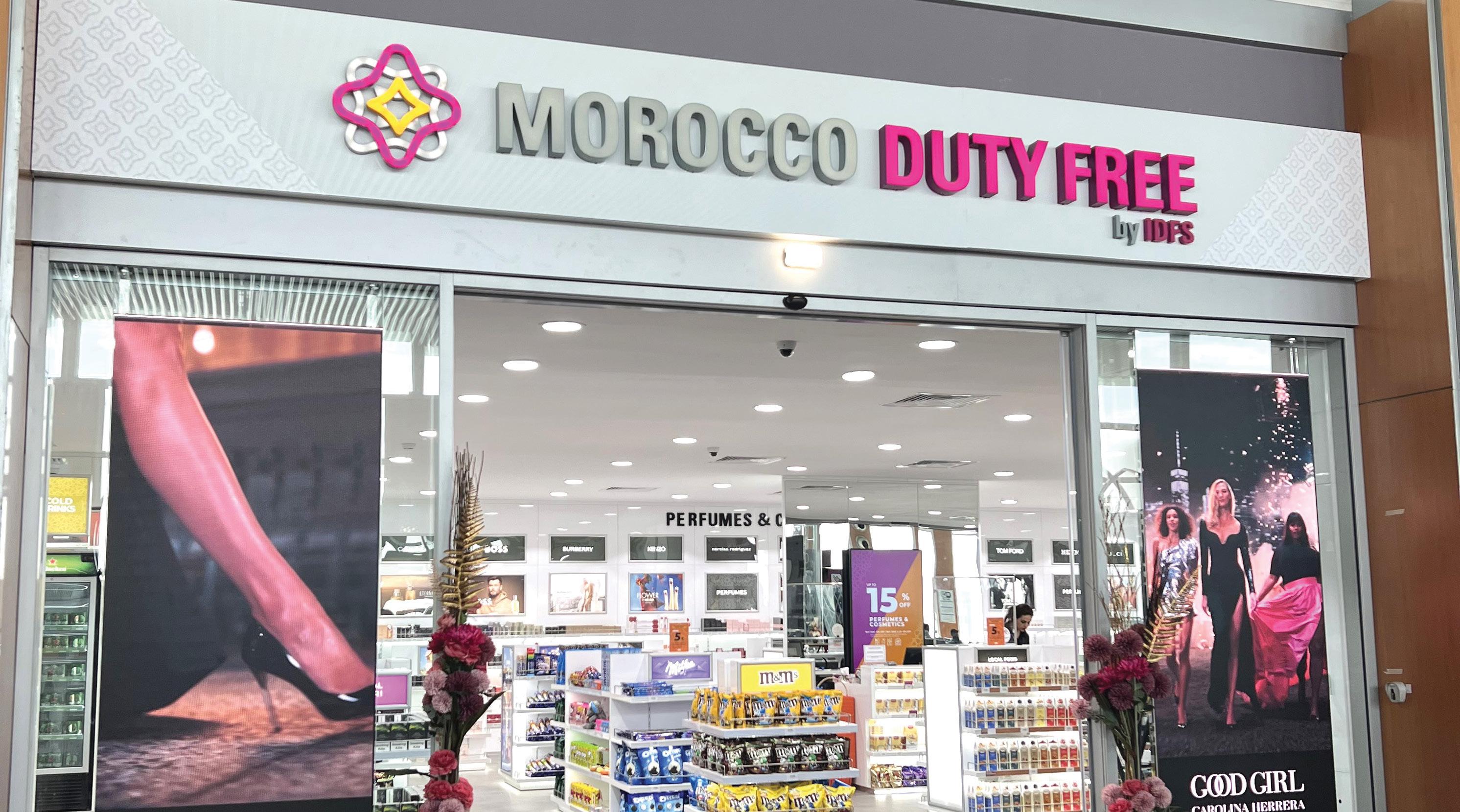
Morocco’s International Duty Free Shops has a clear vision to be a world-class travel retail operator. Anthony Courchet, the company’s General Manager, outlines its plans and strategies
by HIBAH NOOR
Morocco’s International Duty Free Shops (IDFS) is looking to the future with positivity, with a focus on expansion, innovation, digitalization and the enhancement of customer experience.
From one store in 1989, IDFS now operates in ten of the country’s major airports, including Casablanca, Marrakech, Agadir, Rabat, Tangier, Fes, Oujda, Essaouira and Ouarzazate. The company’s General Manager Anthony Courchet discusses its plans and strategies with Global Travel Retail Magazine.
Global Travel Retail Magazine (GTR Magazine): What are IDFS' projections for passenger traffic and sales growth, and how do you plan to capitalize on the ongoing recovery?
Anthony Courchet (Courchet): In Morocco, the travel industry has been recovering robustly, with passenger traffic in most Moroccan airports reg-
istering double-digit growth compared to 2023, except for Casablanca, which maintained single-digit growth. This resurgence is driven by a combination of pent-up demand, improved travel conditions, and effective promotional strategies by the Moroccan government and tourism stakeholders.
Considering the support of the Moroccan government to the tourism industry, we are projecting double-digit growth year-on-year.
With the continuous support from our airport and brand partners, IDFS plans to sustain its noteworthy sales performance and capitalize on the ongoing recovery by continuing to enhance our customer engagement by equipping our sales staff with the necessary tools to proactively engage and help them achieve increased productivity. We have also increased our assortment – especially of local products – to create a cohesive cultural experience for the travelers and a sense of pride

for the locals. Also, we have renovated our shops in Casablanca and Tangier to make shopping even more convenient and enjoyable, with more to come.
GTR Magazine: Given the Tourism Roadmap launched by the Moroccan government in support of the industry, how is IDFS collaborating with local authorities and tourism stakeholders in 2024 to promote duty free shopping as an integral part of the travel experience?
Courchet: As of 2024, our company is actively collaborating with local authorities and tourism stakeholders in Morocco to enhance the role of duty free shopping within the broader tourism experience. Some of the key strategies we implemented are:
• Partnerships with local businesses and authorities
• Local product promotion: To support local artisans and busi-


Tropical flavours, with a twist of peat
nesses, we are featuring Moroccan-made products prominently in our duty free stores
• Training and development: We are investing in training programs for our staff to ensure they provide exceptional service and are knowledgeable about our exclusive Moroccan products
• Feedback and adaptation: We actively seek feedback from tourists and local stakeholders to continuously improve our offerings. By understanding their preferences and needs, we can adapt our product range and services to better fit the evolving travel landscape
GTR Magazine: With the increasing focus on digital channels and e-commerce in the duty free industry, how has IDFS adapted its online presence to cater to the evolving needs and preferences of travelers?
Courchet: We have ramped up our presence on social media platforms and digital advertising channels to engage with potential customers. Through targeted campaigns, influencer partnerships, and interactive content, we drive awareness and attract travelers to our store.
We are enhancing our online shopping platform in Q4 of this year and will soon launch a robust e-commerce platform that allows travelers to browse and
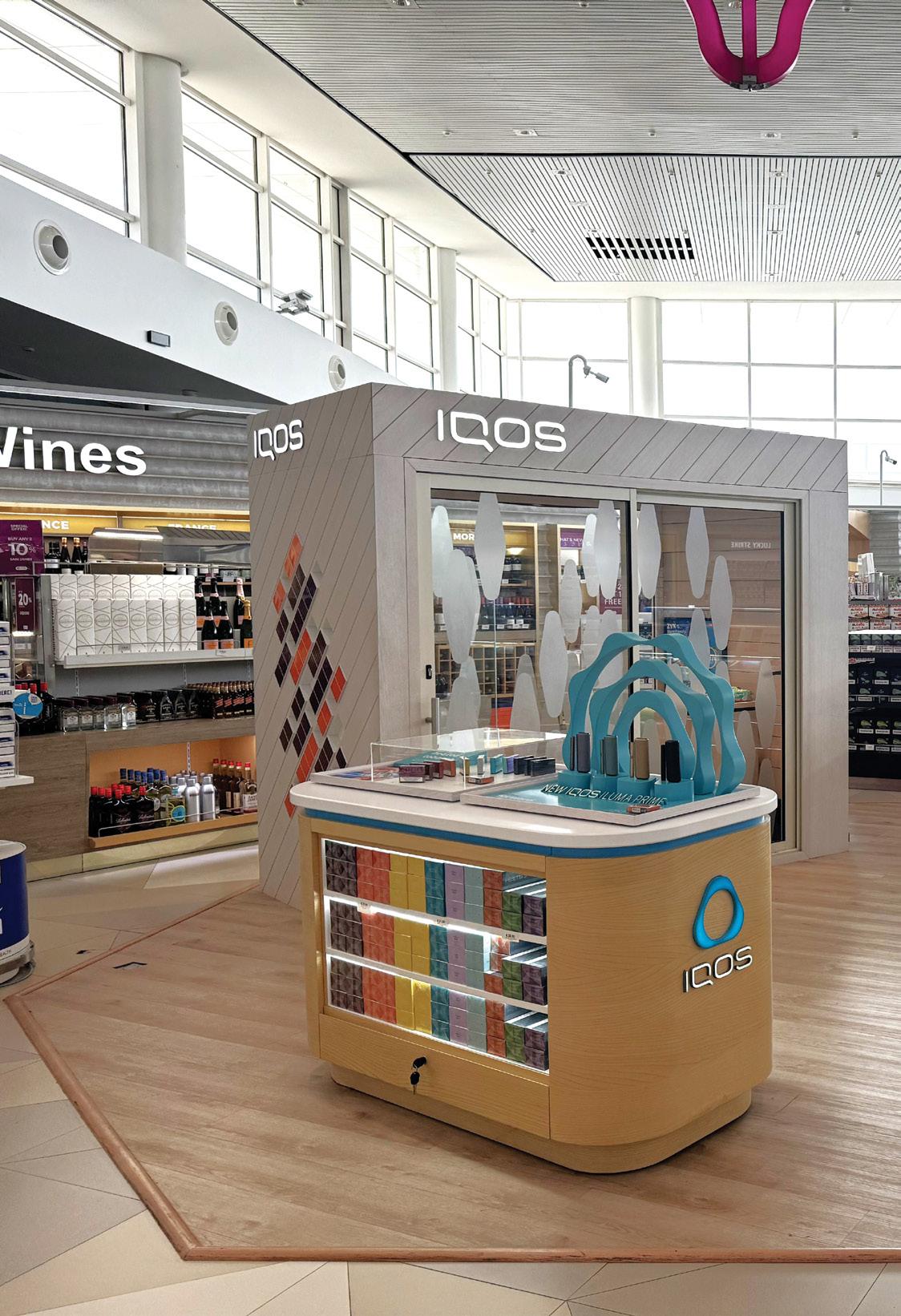
purchase duty free products online. Our website is optimized for both desktop and mobile devices, ensuring a seamless shopping experience across all platforms. Features include detailed product descriptions, high-quality images, and easy navigation to help customers make informed decisions.
GTR Magazine: In terms of product assortment, which categories have shown the most significant growth in the past year?
Courchet: Coming from a year of recovery, we only began increasing our product assortment in 2024. In the past few months, we have seen demand increase


in products which enhance health and wellness and promote sustainability in different categories:
• Tobacco remains the number one sales driver in Morocco. This category has continued to grow by adapting its offerings to the current market through the introduction of ‘reduced risk’ products, to which we have given more exposure in-store
• Because of the changing demands in perfumes & cosmetics we have expanded our focus on sustainability and well-being through the introduction of Payot and an exclusive partnership with Bath & Body Works. We’ve formed exclusive relationships with these brands as they are focused on sustainability. These partnerships allow us to offer a curated selection of ecofriendly products, aligning with
the growing consumer demand for environmentally responsible options
• We have also introduced organic liquor products, which is a growing segment to cater to the health-conscious traveler
GTR Magazine: With the increasing importance of experiential retail, what innovations has IDFS introduced in its stores to enhance the shopping experience for travelers? How are you approaching sense of place?
Courchet: In the first half of 2024, to enhance the shopping experience, we introduced simple yet effective approaches to infuse a sense of place into our stores.
In-store events and demonstrations offer travelers a unique opportunity to experience new products, interact with brand representatives, and enjoy special promotions. For example, a CX Zone

for Heated and digital animations for tobacco brands were built in our flagship location in Casablanca.
Our stores are designed with customer experience in mind, featuring modern and aesthetically pleasing layouts, focused on highlighting the best brands and their products to make the shopping environment more inviting and enjoyable. We have applied different Moroccan ‘moucharabieh’ in each location. (Moucharabieh in Islamic or Islamic-influenced architecture is a type of projecting oriel window enclosed with carved wood latticework located on the upper floors of a building).
GTR Magazine: As IDFS looks ahead to the second half of the decade, what are your long-term growth strategies and expansion plans to maintain your position as a leading duty free operator in Morocco?
Courchet: In support of the Kingdom’s initiatives through the ONDA, we will continue to open new stores and upgrade existing ones in locations that are seeing increased passenger traffic. We keep our stores relevant by exploring innovative store formats and designs that provide a premium shopping experience and cater to a diverse range of traveler needs.
There is a focus on diversification and the expansion of product offerings in fashion, local and sustainable products and we will continue to invest in digital technologies to enhance the shopping experience, may it be in-store or online, while leveraging data analytics to understand our customers and tailor our offerings and optimize inventory. We are enhancing customer experience through experiential retail, strategic pricing and promotion and we will continue to prioritize sustainability in our operations, from reducing our environmental footprint to supporting local and ethical sourcing. This includes further investments in energy-efficient technologies, waste reduction programs, and sustainable packaging.


With the purpose to establish greater connectivity and accessibility, Lima Airport Partners and the new Jorge Chávez Airport will introduce the “airport city” concept to South America; plus, the passenger terminal scheduled to open in December and LAP’s retail strategy
by LAURA SHIRK
Lima Airport Partners (LAP) is on a mission to create the first “airport city” in South America, with the new Jorge Chávez International Airport (Lima Airport) in Peru as its base. Centrally located on the western coast of South America, Lima acts as a strategic air connection point, supported by its proximity to the Port of Callao.
Considering the expansion, the new Jorge Chávez Airport will cover 940 hectares (three times larger than the current airport size) and deliver smart infrastructure integrated with Lima that is key to the economic growth of Peru and the development of the capital city into a regional hub.
Following the building of a new control tower and a second landing

strip, Lima Airport installed seven new scanners with a 360-degree view for hand luggage inspection. This means there will be no need for passengers to remove liquids or electronic devices. For checked baggage, four new scanners will be installed, one at each check-in island. These will be capable of examining 2,700 pieces of
per hour; three islands will be in place at the start of

On track to open in December, the state-of-the-art passenger terminal will feature expandable infrastructure to enable growth capacity after 2025, as well as promote sustainable transport and consist of automation systems and biometric records

operations in December 2024. Lima will be the first airport in South America to feature this advanced system for all flights.
“We are introducing the concept of an ‘airport city,’ which does not exist in South America, but does exist in Europe, in airports like Paris, Frankfurt, Madrid, and Barcelona, among others. This is a broader real estate development concept and plan that we start with, where we integrate various economic asset classes, complementing them with the surrounding area, with the Callao region, and with Metropolitan Lima,” explains Norbert Onkelbach, Chief Commercial Officer at Lima Airport Partners.
This project aims to integrate airport operations with multiple commercial areas, cargo and transport zones, business centers, hotels, offices, stores and other businesses linked to the economic activities in Callao. “We want Lima to become the regional headquarters for various companies in the aviation and non-aviation business, and to develop a special economic zone connecting sea
and air cargo to take advantage of the proximity of the port and airport,” he says. “Overall, the airport city concept is an umbrella concept to integrate the interest and development of our stakeholders within the airport’s ecosystem. We consider ourselves as airport platform managers in that regard.”
According to Onkelbach, LAP is expecting to secure new destinations and greater connectivity in Latin America, North America, and the Caribbean paired with stronger direct traffic to European hub airports.
Onkelbach says airports are increasingly becoming engines of macro-growth and socio-economic development for the region and/or country. Lima Airport Partners recently conducted an economic impact study of the activity generated at Lima Airport and found that it is supported by 155 businesses including airlines, concessionaires, transportation companies, security firms, cleaning services and a wide portfolio of other providers. In 2022, the airport community contrib-
uted US$1.4 billion to Peru’s GDP.
“Overall, we believe the airport city in Lima, Peru, will not only redefine the local airport industry, but also consolidate its role as a hub for sustainable job creation in the region,” comments Onkelbach.
update and opening
The airport’s new single passenger terminal, which will have an initial capacity of 30 million passengers per year, is scheduled to open by December 18 of this year. After its opening, the airport will bring an additional 10 million passenger capacity by the end of 2025. With this, Lima Airport will have a capacity of 40 million passengers per year in a total space of 270,000 square meters.
As shared by LAP, the terminal’s modern design is inspired by the hummingbird of the Nazca culture. The five-level infrastructure will provide passenger services including check-in, arrivals, departures, lounges, food and beverage and a shopping complex with



pedestrian access to the city.
Providing an update on construction, Onkelbach reveals the terminal is more than 90% complete, in accordance with the commitments made with the Government of Peru. “This achievement translates into the completing of significant construction milestones such as the implementation of the first boarding bridges, installation of a stateof-the-art baggage system, construction of the internal vehicular access viaduct that will connect with the city, start of the asphalt paving of parking areas and access roads, as well as the installation of internal finishes, among other improvements that will offer passengers a state-of-the-art travel experience,” he says.
Progress is also being made on a large pedestrian boulevard connecting the terminal to the city, with work on façade landscaping and gardening. Restroom and seating finishes in various public areas of the new terminal are also advancing.
The terminal will feature expandable infrastructure to enable growth capacity
after 2025, as well as promote sustainable transport and consist of automation systems, biometric records and LED lighting. It will be the first air terminal in South America to include a seismic isolation system, technology that isolates the structure's movement in an earthquake, and a remote aircraft traffic management system.
“We have chosen the date of December 18 because it has less impact on air operations. The opening will take approximately six hours and has been scheduled during the early morning hours when there are fewer ongoing operations. This decision follows a study that LAP conducted on the processes and flows to determine the optimal opening date,” says Onkelbach.
Retail strategy and sense of place
When asked how the duty free channel factored into the planning and decisionmaking of the airport city, Onkelbach said LAP’s retail strategy is built on fundamental principles: customer focus and innovation, a deep connection with local culture and the execution of
sustainable practices. “Through these principles, we reinforce our commitment to enhancing passenger experiences and fostering a safe and sustainable environment. Customer focus and innovation are pivotal in engaging with customers and passengers, necessitating quick adaptation to meet their expectations and needs through digital and innovative approaches,” he says.
As part of Lima Airport Partners’ vision to elevate the passenger experience and inspire enthusiasm for its offerings, the company has introduced innovative concepts including a central commercial plaza with a unique space for travelers to immerse themselves in Peruvian heritage while awaiting departure, international and domestic marketplaces that feature food halls celebrating local gastronomy and casual dining experiences created by globally renowned Peruvian chefs. Plus, LAP’s commercial partners are introducing flagship stores displaying luxury Peruvian apparel and jewelry crafted from alpaca and vicuña.
Lima Airport Partners has estab-
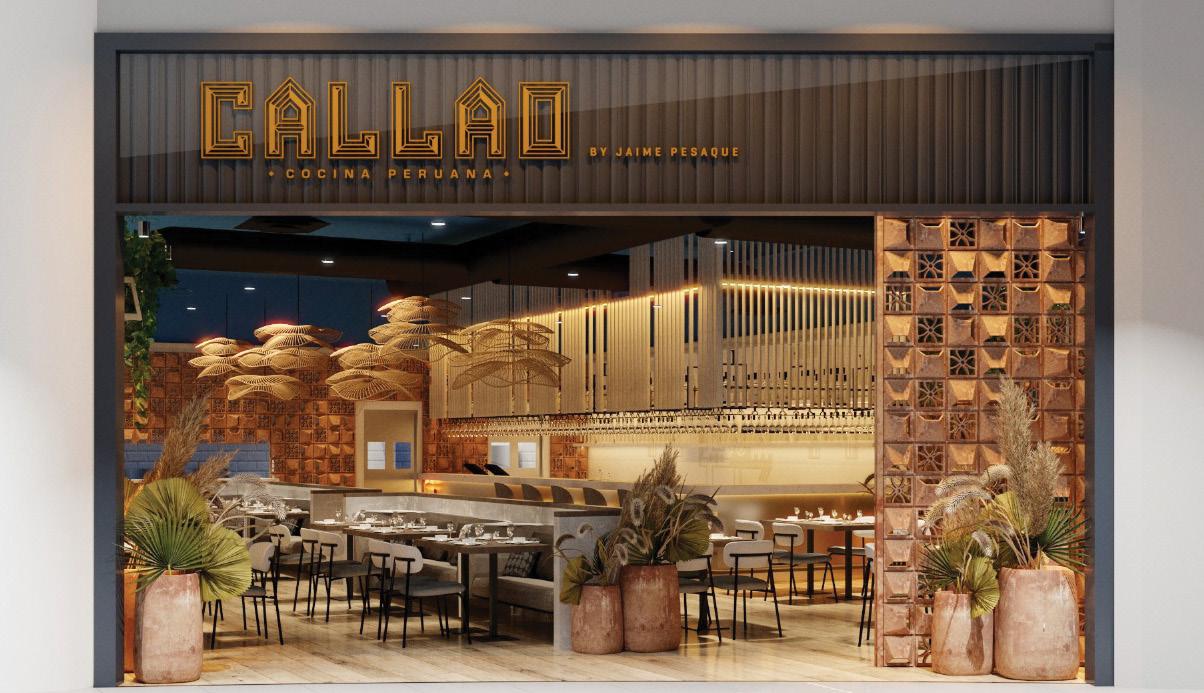





At Gebr. Heinemann we truly celebrate partnerships at eye-level and are proud to have been such a partner of TFWA from day one. Thank you, TFWA, for sharing these values.





All the more reason to make this anniversary event in Cannes unforgettable. Meet us at our Gebr. Heinemann booth D21. We look forward to seeing you there.







lished partnerships with over 30 retail partners, collectively shaping a new landscape at Lima Airport. The first commercial spaces in the new terminal have been handed over to Lagardère Travel Retail, Morpho Travel Experience, LATAM Airlines, Acurio Restaurants, Retail Services and Airport Dimensions. “Together, with the real estate activities outside the terminal, we consider the airport retail portfolio an integral part of our ecosystem and manage both in the same way: customer focused with a strong commercial partnership approach,” he says.
A closer look at the retail progress status at the end of August showed final design at 89% and delivered space at 95%. Lima Airport Partners plans to start operations with 87% advances (72 spaces and more than 21,100 square meters). The commercial area scheduled to open between December 2024 and
January 2025 will consist of 48 outlets (close to 13,000 square meters).
According to Cyril Letocart, CEO at Lagardère Travel Retail Peru, the retailer finalized the construction of its domestic duty paid shop (660 square meters) and arrival duty free shop (1,000 square meters) at the end of August. This was followed by the retailer’s 2,300-squaremeter main duty free departure shop in September. Its F&B units (3,000 square meters) will be ready for October. “On our side, we are confident that we will reach the timing defined by LAP and are starting the ORAT (test phase) in the coming weeks. I think we are all concerned about opening during a peak travel period [December 2024], but if we plan it carefully, I am confident it will be a great success,” says Letocart.
In the coming months, Lagardère Travel Retail Peru will begin building a digital marketplace with LAP to provide additional pre-ordering options for travelers. “This is to give travelers the opportunity to purchase [duty free products] in advance and collect them at the airport either at a collection point or smart locker. One service that is working well for us in Lima is the option to buy products in departures and collect them at our smart lockers on arrival,” he explains.
However, Letocart notes a key constraint to purchasing innovation in the channel is navigating customs requirements. “It sometimes takes a long time to convince customs authorities of the benefits of modernizing the way of purchasing duty free. It is a long process that requires the development of longterm relationships with local authorities,” he adds.
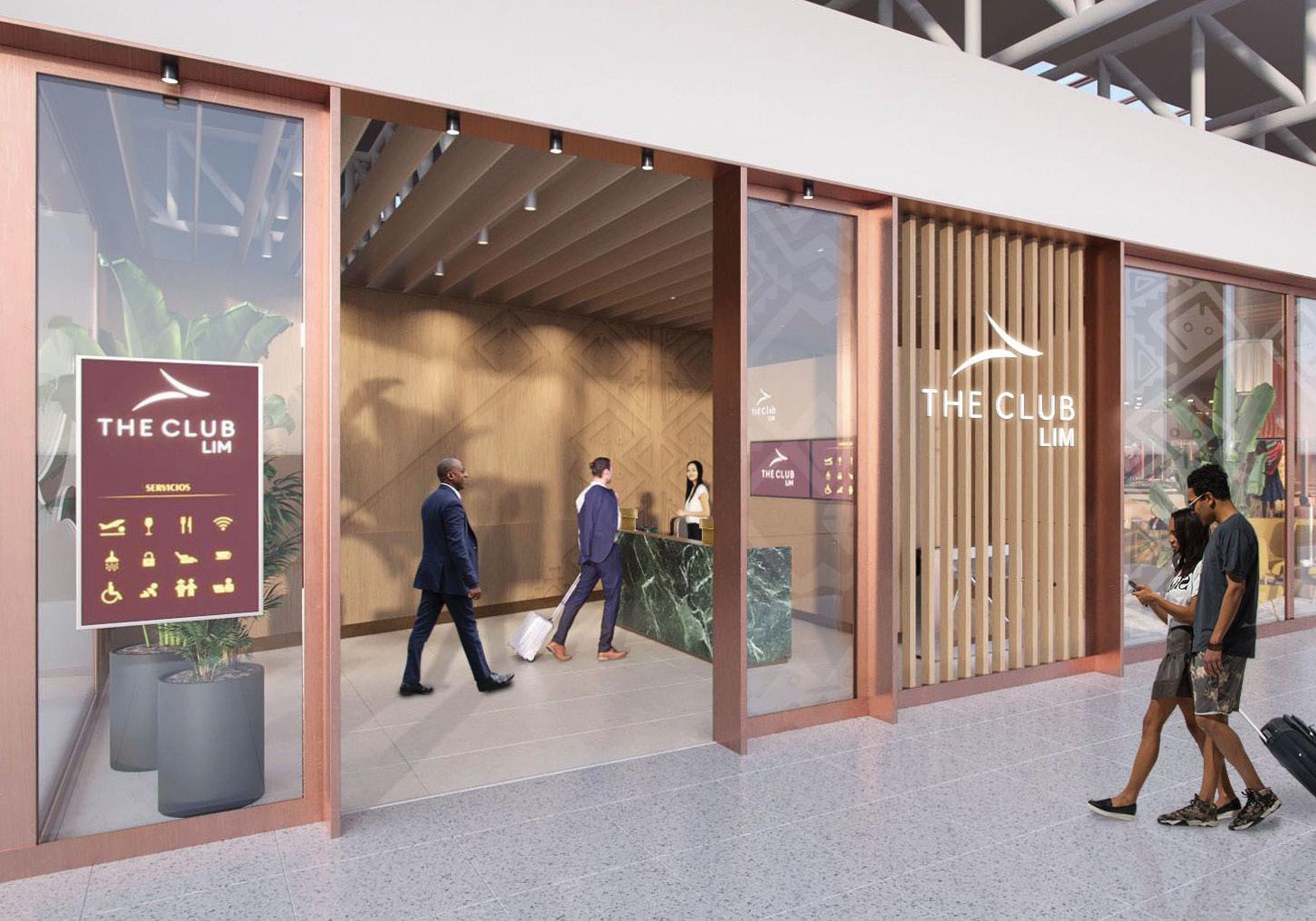


Shopping China CEO Felipe Cogorno outlines ambitious expansion plans and cuttingedge strategies, blending digital innovation with sustainability to captivate a new generation of cross-border shoppers
by HIBAH NOOR

Shopping China’s approach goes beyond product offerings to emphasize quality and customized marketing strategies

Paraguay-based Shopping China, a prominent retailer in the South American duty free market, is launching a series of strategic initiatives to boost its market presence and foster customer loyalty. CEO Felipe Cogorno states that the company is implementing both
physical and digital strategies to fulfill an “unwavering commitment to delivering an exceptional shopping experience drives us to continually adapt, innovate and transform, with customer satisfaction remaining the primary focus.”
The company has ambitious expansion plans for the future, as Cogorno explains: “Our strategy focuses on both geographic expansion and enhancing our current operations to better serve our customers.”
Shopping China is targeting key South American markets, with a specific emphasis on Brazilian and Argentinian customers. Cogorno elaborates, “We are actively exploring opportunities to expand our presence in key South American border markets, specially targeting Brazilian and Argentinian customers due to their large consumer
bases and strong demand for duty free products.”
A significant development in Shopping China’s plans is the investment in a new cutting-edge facility in Ciudad del Este. This project highlights the company’s dedication to providing a superior shopping experience and solidifies its position as a leader in travel retail. Cogorno states, “Spanning over 92,000 square meters, it is set to become the largest border store in South America.”
In addition to this major development, Shopping China is continuing to renovate and expand its existing stores. These improvements include upgrading store layouts, incorporating advanced technology for seamless shopping experiences, and enhancing the overall aesthetic appeal of their retail spaces.
Customer experience remains at the core of Shopping China's strategy, with a strong focus on personalization and technology integration. Cogorno explains, “We are committed to enhancing the overall shopping experience through personalized services, loyalty programs, and innovative in-store and online experiences. By employing advanced data analytics, we can offer tailored recommendations, promotions, and shopping experiences that cater to individual customer preferences.”
Cogorno adds, “This customer-centric approach, coupled with our use of cutting-edge technologies and expanded digital presence, aims to strengthen our leadership in the retail industry, expand our footprint in new markets, and continuously meet the evolving needs of our customers.”
Shopping China is significantly enhancing its digital and technological capabilities to keep pace with market demands. The company is focused on creating seamless multichannel experiences, characterized by intuitive interfaces, fast navigation and easy product access. It is also broadening its digital footprint with a focus on social media, aiming to deepen customer engagement through interactive campaigns, influencer partnerships, and real-time support.
Digital infrastructure investment is another critical area, including building a more robust online platform and expanding digital marketing efforts. These initiatives aim to improve customer engagement through tailored recommendations and promotions, supported by AI and data analytics.
Central to this strategy is the use of advanced technology. “Utilising

advanced technologies, such as artificial intelligence and data analytics, optimizes our operations, improving inventory management, personalizing customer interactions, and enhancing overall efficiency,” Cogorno notes. By employing AI for data collection and analysis, Shopping China can better understand and cater to its customers’ needs, facilitating personalized shopping experiences and optimizing inventory management.
A key aspect of Shopping China’s digital transformation is its collaboration with leading technology firms.
“One significant partnership is with leading technology firms to advance our digital transformation. By integrating cutting-edge AI and data analytics solutions, we aim to elevate our customer experience through personalized shopping recommendations and streamlined operations,” Cogorno explains.
italianwinebrands.it

Shopping China’s success at Brazil’s border comes from a multi-faceted strategy that shows a deep understanding of its customer

Shopping China is acutely aware of the shifting consumer landscape, especially when it comes to Gen Z. Cogorno emphasizes the key behaviors and preferences driving the company’s strategies: “Gen Z prioritizes speed, convenience and accessibility in their shopping journeys. They are environmentally and socially conscious, preferring brands committed to sustainability and ethical practices.” He also notes that this generation values personalized experiences, authenticity, and transparency from brands.
Social media is central to Gen Z’s shopping decisions. “They engage with brands through social platforms, seeking interactive and immersive experiences,” Cogorno says. Reflecting this,
Shopping China has amplified its presence on key social media platforms, creating engaging and interactive content, including influencer partnerships, live shopping events and customer interaction through various digital channels. Additionally, the company is leveraging strategic partnerships to enhance its social media efforts. “We are also collaborating with key influencers and content creators across various social media platforms to boost our brand visibility and engage more effectively with our target audience,” Cogorno notes.
Shopping China’s success on Brazil’s border comes from a multi-faceted strategy that shows a deep understanding of its customer. “The key factors

behind Shopping China’s success in attracting and retaining its Brazilian customer base include our strategic location, competitive pricing, diverse product range and exceptional customer service,” he states. The company’s ninedecade history has also contributed to building a strong reputation that enhances its offerings.
Recent changes in Brazilian regulations have had noticeable impact on Shopping China’s business. “Since the increase in the Brazilian allowance, we have observed a surge in Brazilian customers, further driving demand for a variety of products,” Cogorno reports. He identifies the main products sought by Brazilian customers as “electronics, perfumes, cosmetics, fashion items and household goods.”

The company is firmly committed to sustainability and ethical practices, focusing on “sourcing eco-friendly products, reducing waste and implementing energy-efficient operations.” These efforts are effectively communicated to customers, ensuring alignment with their values and global environmental standards.
Sustainability is integral to the company’s regulatory and market strategy.
“Our sustainability initiatives are a cornerstone of our business strategy, significantly enhancing our brand reputation and fostering deep customer loyalty,” Cogorno states. These initiatives not only ensure regulatory compliance but also meet the growing consumer demand for sustainable products.
(CSR) is another key focus. Cogorno notes that Shopping China’s “CSR initiatives support local communities, promote ethical business practices and contribute to social causes.” Through community projects and partnerships, the company demonstrates its commitment to making a positive impact beyond business operations.
Partnerships play a crucial role in sustainability efforts. “We have forged alliances with renowned ecofriendly product suppliers to reinforce our commitment to sustainability,” says Cogorno. These collaborations expand Shopping China’s range of sustainable products, further aligning with environmental goals and consumer expectations.
Building on its commitment to Corporate Social Responsibility, Shopping China extends its ethical focus inward. Cogorno emphasizes that employee satisfaction is directly linked to exceptional customer service. “A crucial component of our success is the satisfaction and dedication of our employees. We prioritize fostering a positive work environment, which translates into exceptional service and a welcoming shopping experience for our customers,” he explains.
Employee training is key component of Shopping China’s strategy. “We invest in comprehensive training programs for our employees to ensure they are well-versed in regulatory requirements and market trends, empowering them to make informed decisions,” Cogorno says.
Shopping China prioritizes staying ahead of market trends. “Our product development team continuously evaluates and updates offerings based on customer feedback and market research, ensuring relevance and demand,” Cogorno notes. This approach allows the company to anticipate consumer preferences and adjust its product offerings and marketing strategies to remain competitive.
Product diversification is also a key focus. This includes expanding high-end products, increasing tech inventory, and growing the selection of eco-friendly and sustainable options.
The company’s approach goes beyond product offerings to emphasize quality and customized marketing strategies. “Our commitment to providing highquality products, coupled with tailored marketing strategies and a seamless shopping experience, has significantly strengthened our appeal to this market,” Cogorno explains. These efforts ensure the company meets the evolving needs of its Brazilian clientele, fostering loyalty and satisfaction.

After its groundbreaking conference in Ghana, MEADFA’s President Sherif Toulan describes an ambitious course for African duty free, sustainability initiatives and combating illicit trade while gearing up for a milestone event in Abu Dhabi
by HIBAH NOOR
The Middle East and Africa Duty Free Association (MEADFA) is riding a wave of momentum following its landmark 2023 conference in Ghana, the first ever held in Sub-Saharan Africa. Far from resting on its laurels, the association is leveraging this success to reimagine its approach to the burgeoning African market and tackle pressing industry challenges head-on.
“The 2023 MEADFA Conference in Ghana was a success, marking a pivotal moment in the association’s expansion into Sub-Saharan Africa,” declares Sherif Toulan, President, MEADFA. “The event showcased the region’s potential and highlighted the unique needs and preferences of African travelers.”
This foray into new territory has catalyzed an ambitious strategy to deepen MEADFA’s African engagement.
Plans are already underway to host the annual conference more frequently in key African locations, a move that promises to unlock new opportunities and foster vital connections across the continent.
But MEADFA’s vision extends far beyond event planning. The association is forging powerful alliances to shape the future of duty free in Africa. “We are already members of ACI Africa and the COMESA Business Council and are actively collaborating with them on various initiatives to create a conducive business environment and communication platform,” Toulan says.
These partnerships are more than mere handshakes; they represent a concerted effort to build a robust ecosystem for duty free retail in Africa. MEADFA’s Advocacy Committee, under the leadership of Rob Marriott, is work-

and other stakeholders to forge
exchange ideas and explore partnerships that can propel their businesses forward
ing tirelessly to ensure that the association’s strategy evolves in lockstep with the needs of both members and African travelers.
As MEADFA expands its African footprint, it’s simultaneously tackling one of the industry’s most pressing challenges: sustainability. Under the guidance of Dr. Munif Mohammed, the association’s sustainability expert and Committee Chair, MEADFA is moving beyond awareness campaigns to urge commitment from its members.


“MEADFA is dedicated to promoting sustainable practices within the duty free and travel retail industry,” Toulan states. “Moving forward, our focus is shifting towards concrete actions. MEADFA is in the process of drafting a sustainability action plan for our retailer members, which will outline specific commitments to sustainable practices.”
This isn’t just green rhetoric. MEADFA is putting its money where its mouth is, developing a comprehensive plan complete with professional assessments to ensure compliance. The next frontier? Engaging brands and suppliers to drive the creation of more responsible products.
Courting spenders, countering threats
As the industry grapples with sustainability, it’s also eyeing the return of high-spending travelers, particularly from China. MEADFA is positioning its members to capitalize on this resurgence, fostering collaboration between retailers and brands to crack the code of these lucrative consumer segments.
“We emphasize the importance of
developing targeted marketing and promotional campaigns to attract and retain these customers,” Toulan says.
Yet even as MEADFA pursues growth, it remains vigilant against threats to the industry’s integrity. The scourge of illicit trade continues to cast a shadow, prompting MEADFA to join forces with the Duty Free World Council (DFWC) in a united front.
“A key initiative in this effort is the ‘Duty Free: Trusted, Transparent, Secure’ (TTS) campaign, launched in 2022,” Toulan says. “The TTS campaign aims to protect the integrity of the duty free and travel retail industry, safeguard consumer trust, and create a level playing field for legitimate businesses.”
This battle against illicit trade is just one facet of MEADFA’s approach to industry challenges. The association is simultaneously adapting to shifts in consumer behavior and doubling down on sustainability efforts, positioning itself as a nimble and forwardthinking leader.
Setting the stage All of these threads will come together
at the 2024 MEADFA Conference in Abu Dhabi, an event that promises to be a crucible of innovation and collaboration. “Attendees of the 2024 MEADFA Conference in Abu Dhabi can expect a strong focus on collaboration, sustainability, innovation and growth,” Toulan says. “The event will feature in-depth discussions on industry trends, challenges, and opportunities, providing invaluable insights for participants.”
The choice of Abu Dhabi as the host city is no coincidence. The emirate’s recent unveiling of a state-of-the-art terminal at Zayed International Airport provides a fitting backdrop for an industry that’s growing and transforming.
Toulan highlights the significance of this development for both the conference and the wider industry. “Hosting the MEADFA Conference in Abu Dhabi presents a unique opportunity to celebrate this achievement with a global audience of industry leaders. The conference will offer delegates a unique opportunity to experience firsthand the terminal’s innovative design, advanced technology, and exceptional retail offerings,” he says.

As
the TFWA marks its 40th anniversary in 2024, the organization stands as a testament to the resilience and adaptability of the duty free and travel retail industry. Erik Juul-Mortensen, President of TFWA, reflects on the association’s journey and the exciting future that lies ahead for this dynamic sector
by WENDY MORLEY
The duty free and travel retail landscape has undergone significant changes since TFWA’s inception 40 years ago. “We have most certainly seen some tough times,” the association’s President Erik JuulMortensen says as he recalls a few of the industry’s major milestones. “The bitter loss of intra-EU duty free sales in 1999
after a tremendous fight, the blight of the SARS virus in 2003, the introduction of ‘one-bag rules’ by several airlines, then Brexit, and of course the biggest blow affecting the whole global industry – COVID.”
He adds that we’ve also seen considerable shifts in the shape of the industry, with significant mergers and acquisi-
tions changing the balance between the key players, both retailers and brands. Despite these challenges, JuulMortensen reminds us of the one industry constant – resilience and the ability to adapt to change. “We have also come a long way from a largely transactional commercial offer; we have brands that innovate, tell stories and share their rich heritage, working creatively with retailers to capture the imagination in a way that delights passengers.”
Finger on the pulse
The rapidly changing consumer in the most recent years is having far-reaching effects, and Juul-Mortensen says understanding these shopping travelers has never been more important. “For
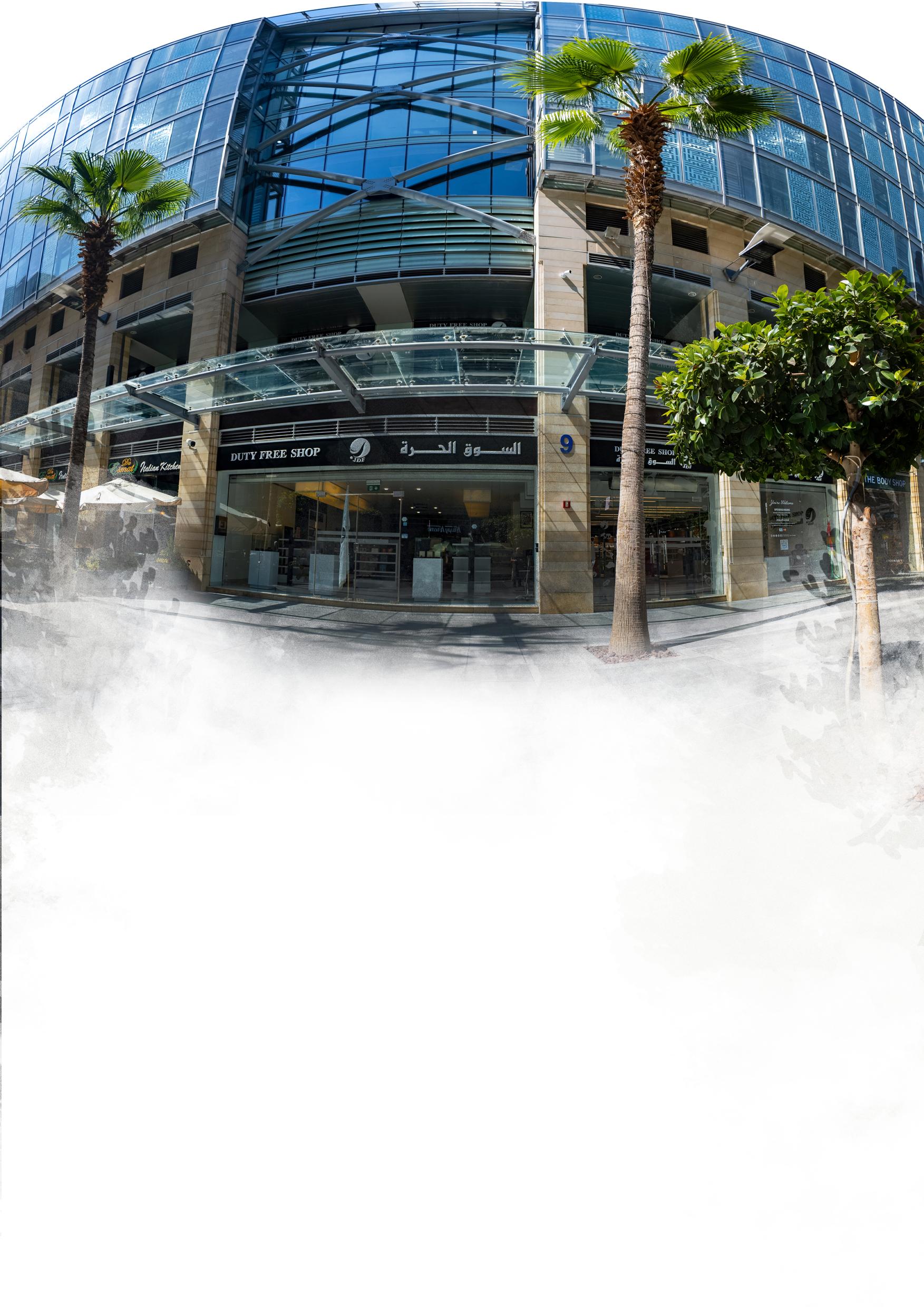


example, an ever-larger percentage of our customers are traveling for leisure, not business,” he says. “This is having a profound impact on the types of products that will be popular. Agility, flexibility and adaptability are essential if we are to maximize revenue.”
He notes that the current economic situation means travelers will be keeping a close eye on what they spend, and this will bring the concept of “value” to the fore, and value that extends beyond the cost of an item. “This is why sharing stories about the products we offer is so important.”
Overall, Juul-Mortensen says the industry is continuing to make good and healthy progress, although he acknowledges that overall there is still progress to be made before we can say that our global industry is truly back. “In many ways 2025 will be a crucial year, but I remain optimistic that the international travel figures will continue to develop positively,” he says, with the caveat that events in the Middle East are beginning to impact travel to and within that region.
As we continue to hear, sustainability and CSR as a whole are becoming increasingly important to travel retail consumers, particularly Gen Z passengers, who will soon dominate the market. “It is also important to the
airports, airlines, cruise lines and ferries on which we operate, and who are expecting all of us to help them reach their sustainability targets,” Juul-Mortensen says.
He notes that while some companies do good work in this arena it does not necessarily translate to the consumer. “There is a significant difference in whether they choose to communicate this openly or not, which is entirely their own prerogative. Does a gondola displaying some products as ‘sustainable’ mean that all others in the store are not?” he muses from the consumer viewpoint. “Those loyal to a brand will know the brand’s values, but that is not necessarily true for someone trying it for the first time. In duty free and travel retail, as on the high street, there is no coherent labeling or in-store communication that shows that we understand and share our customers’ concerns on this issue.”
He suggests that as an industry underpinned by authenticity, we need to be more ambitious with setting ourselves targets and communicating those targets to customers, while also ensuring we are selling demonstrably genuine products.
TFWA’s role in staging its events is clear – to provide a forum for people
within the industry to do business, to share knowledge and benefit from the experiences of others, whether that’s how to cope in adversity or how to prosper from opportunity. “Our events also give our members and attendees the chance to form and nurture the relationships on which our business thrives,” Juul-Mortensen says. “This stands our industry in good stead in the good times as well as the bad. Our webinars and reports in between our events in Cannes and Singapore, as well as our cooperation with and support of other trade associations, all assist our members and the industry at large to develop.”
“I can say that after a very satisfying, and by all measures very successful, TFWA Asia Pacific event in May in Singapore, the prospects are very positive for TFWA World Exhibition & Conference in Cannes, with very high demand for stands and excellent retailer attendance expected,” he says.
As businesses continue to exercise financial caution in the aftermath of the pandemic, potentially limiting the number of attendees, Juul-Mortensen says the calibre will remain. “As always, it is the brands who year after year produce the biggest surprises with their outstanding offer, but TFWA is marking its 40th anniversary, so we too may have a couple of surprises up our sleeve.”

As FDFA marks its 40th anniversary, the association celebrates a significant legislative breakthrough while continuing to elevate border communities’ prominence in public discourse and policy agendas
by WENDY MORLEY
The Frontier Duty Free Association (FDFA) is marking its 40th anniversary with intensified efforts to keep border communities at the forefront of public and legislative attention, according to Executive Director Barbara Barrett. This renewed emphasis has already yielded tangible results
Legislative breakthroughs
FDFA achieved a major victory in its advocacy efforts. “Just before the House rose for the summer, the Standing Committee on International Trade (CIIT) unanimously passed and adopted a motion recognizing duty free stores as export businesses and further agreed to study the issue and provide a recommendation going forward,” says Barrett.
The association’s recent successes also include coordinating a Border MP caucus meeting in late 2023, which sparked ongoing discussions among Members of Parliament from border constituencies.
“These MPs have taken ownership of the issues and are continuously meeting to address and advocate for border-related matters at the federal level. FDFA’s ongoing participation in these meetings ensures that the voice of our industry is heard and considered in legislative discussions,” she explains. Looking ahead, FDFA plans to build on this momentum with additional roundtable discussions and forums with key policymakers.

The association has been actively forming alliances with local chambers of commerce, tourism boards and Destination Canada. These partnerships aim to amplify FDFA’s advocacy efforts and ensure policymakers pay attention to border community issues.
Simultaneously, FDFA has launched public awareness campaigns to educate both the public and decision-makers about the economic and social importance of border communities and the duty free industry’s role in their vitality.
Recognizing the power of concrete evidence, FDFA has invested in research to quantify the duty free industry’s economic impact on border communities.
“This data has been crucial in making a compelling case to legislators and the public about the need to support policies that benefit border regions,” notes Barrett.
As FDFA prepares for its 40th anniversary convention in November, the association is launching a comprehensive social media campaign.
“This campaign is designed to engage our community, share our history and spotlight the significant contributions of our founders and industry leaders over the years,” Barrett says. “Through a mix of historical retrospectives, member spotlights and interactive content, we are connecting with our audience and building excitement for the upcoming convention.”
The November convention will serve as the centerpiece of the anniversary celebrations, featuring special recognition for FDFA founders and industry contributors, along with networking opportunities for members.

















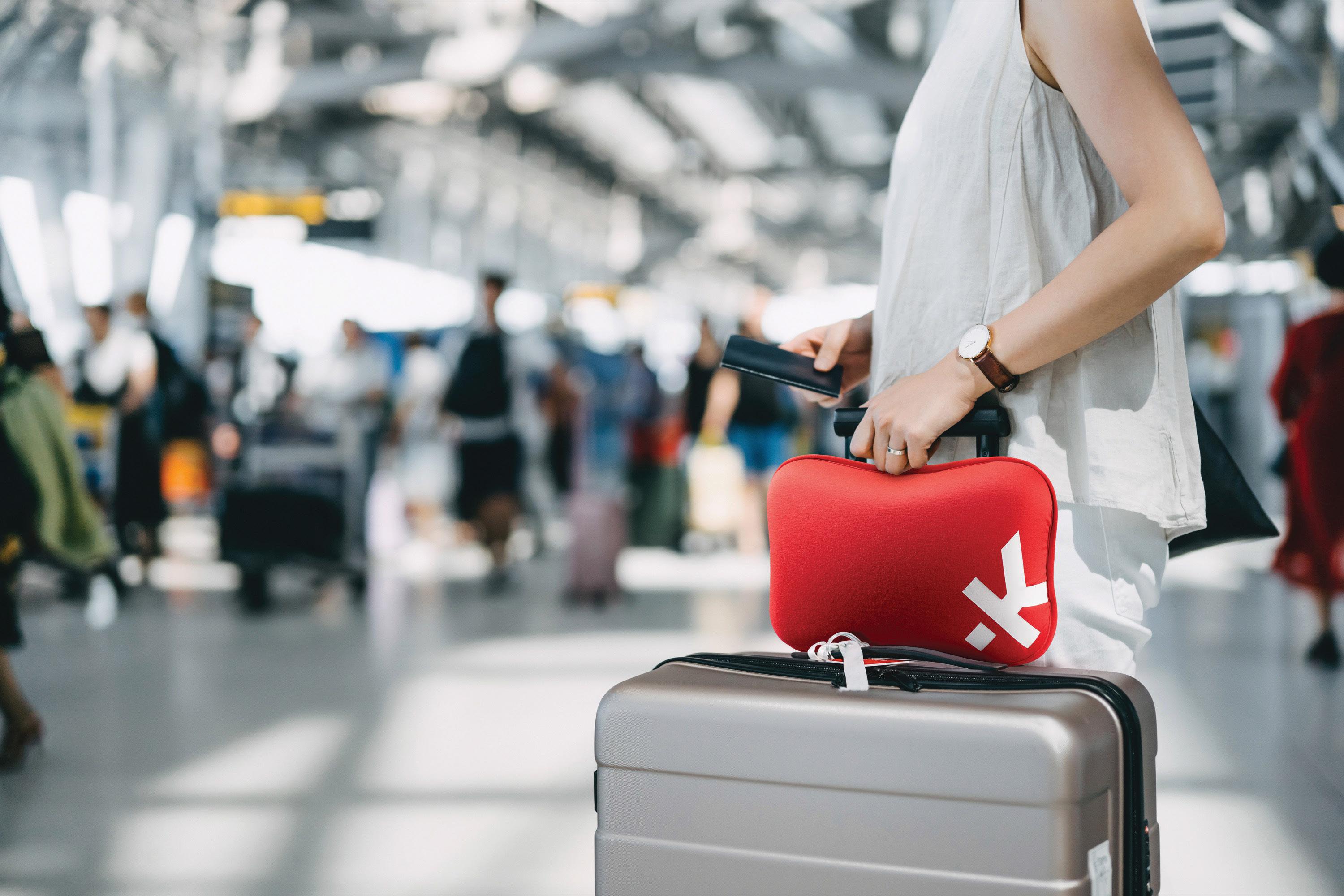


Schiphol welcomed 61.7 million travelers in 2023; the PAX numbers are expected to move up as post-pandemic travel continues to grow
From revamping core retail categories to integrating AI-driven operations, Schiphol Airport is set to redefine the travel experience. This renovation isn't just about catching up—it’s about leaping ahead in airport design and functionality
by WENDY MORLEY
In an era where air travel demands are rapidly evolving, Amsterdam’s Schiphol Airport is embarking on an ambitious journey of transformation. With a commitment to invest over a billion euros annually until 2030, Royal Schiphol Group (Schiphol) is not just addressing past shortcomings but reimagining the very essence of what an airport can be. This comprehensive overhaul aims to elevate Schiphol from its current position to once again stand among Europe’s premier airports.
The root of Schiphol’s current renovations lies in its past success. Tim de Bie, Director Commercial Terminal at Royal Schiphol Group, reflects on the airport’s previous strategy. “In the last decades, Schiphol pursued a strategy of growing passenger numbers to a great extent by facilitating the airlines. We succeeded in that strategy, almost doubling the number of passengers over 10 years.”
However, hindsight shows this focus on expansion did not come without

some anxiety, and the comfort of coming back home. This duality is represented in the new motto “Home Base for World Travelers”
cost. The pursuit of growth led to decisions that prioritized short-term gains over long-term sustainability.
“We made some decisions to take assets beyond their normal lifespan, and we did not invest enough in the terminal as a whole. This resulted in a deficit and backlog in renovations that should have been taking place during the past five years,” he shares.
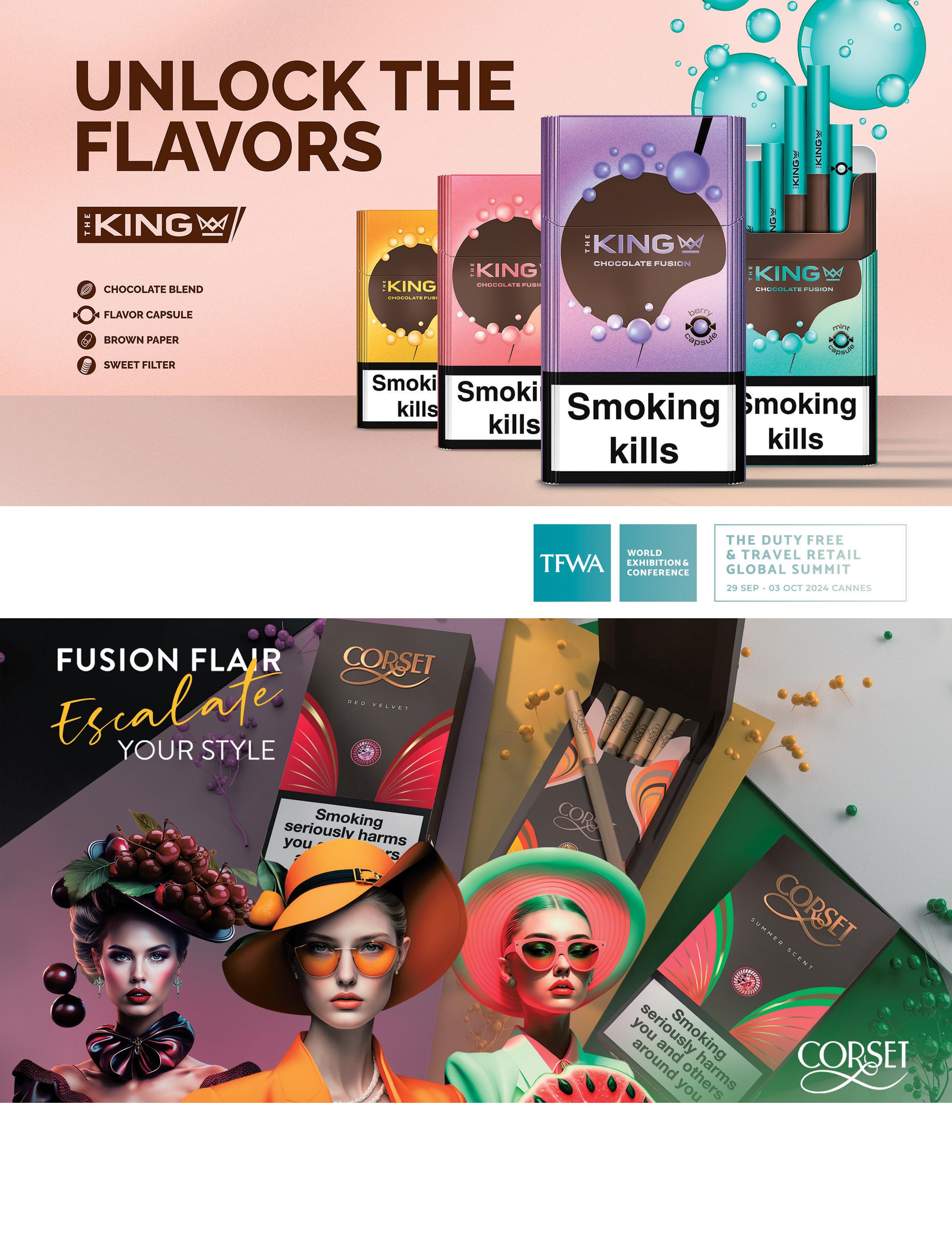

Recognizing the need for substantial intervention, Schiphol has launched an extensive investment program. “We have a lot of catching up to do. Until 2030, we will invest well over a billion [euros] a year in basically maintaining and renewing all those assets we should have done in the past,” de Bie says. This program is comprehensive, touching every aspect of the airport experience. “It contains things like replacing all elevators and moving walkways. It also includes all the waiting areas for passengers and airport personnel,” he adds.
At the heart of Schiphol’s transformation is a renewed focus on passenger satisfaction. The airport’s current standing among its European peers has been a wake-up call. “In line with not investing enough in our airport, we saw a decline in our competitive position,
now being at the bottom of the pack of the European benchmark airports,” de Bie reveals. “The aim is to be back in the top three within three years, and therefore, a huge investment in the passenger experience will take place.” The approach to achieving this goal starts with the basics: security processes, smooth wayfinding, having clean toilets and having enough electricity sockets at the gate, for example.
De Bie explains that his team has defined six strategic pillars that form the foundation of Schiphol’s retail and F&B (food and beverage) vision. “One is improving the core categories. The second is improving the F&B quality. The third is improving the luxury proposition,” he says. “The fourth is the price perception. Can we offer much more value for money? And then the fifth is
sustainability; it will impact a lot in F&B but also in terms of packaging, waste, and sustainable logistics, for example.”
The final pillar focuses on the overall terminal experience. “And then the sixth one is to rejuvenate our terminal,” de Bie states. This pillar ties into the broader goal of enhancing passenger experience and design consistency throughout the airport.
A key component of Schiphol’s transformation is a complete overhaul of its F&B offerings, with a primary focus of increasing the variety of cuisines available to travelers. To address this, Schiphol plans to introduce a wide range of new dining options, to create a more diverse and appealing food selection. Schiphol is moving away from selfdeveloped airport outlets toward wellknown brands that resonate with travel-
INTERWOVEN STORIES, FIFTY YEARS IN THE MAKING.

THE BALVENIE FIFTY COLLECTION
ers. De Bie explains, “We will introduce lots of hip and hot well-known brands and also the newer kids on the block that are on Instagram.”
The airport is not only expanding options, but also placing a strong emphasis on improving the quality of its F&B offerings across the board. De Bie questions, “If we have bread, can we improve the quality of the bread itself, and the quality of the coffee? It goes back to the quality of the beans but also the quality of the machines, and also the quality of the people that are using these machines – are they well trained enough?”
Alongside these improvements, Schiphol is working to enhance the value perception of its F&B offerings. De Bie states, “We will enhance the quality by a lot, and then the value for money perception hopefully improves with it.”
Sustainability is a crucial part of Schiphol’s F&B strategy. De Bie
describes his approach as “a very ambitious sustainability roadmap.” This includes initiatives to reduce waste, shift away from high-impact products like red meat, focus on local sourcing and electrify logistics operations.
Schiphol’s retail strategy is undergoing a parallel transformation, with a focus on core categories and luxury offerings. The luxury expansion is significant. “We will only dedicate this in our Lounge 2, which is our most luxury-oriented lounge,” de Bie says. “We will not have luxury everywhere, but in Lounge 2 we will make a statement.”
For core retail categories, the strategy involves both expansion and integration. De Bie explains, “We acquired the perfumes, cosmetics and sunglasses categories at the beginning of this year. We are now in the process of combining these with liquor, tobacco and confec-
tionery. So, it will be those six categories combined as you see in multiple other airports.”
Airport design
Schiphol’s renovation extends beyond individual stores and restaurants to encompass the entire terminal experience. De Bie highlights the need for consistency, “We have implemented several projects in the past 10 years that made sense from operational and security perspectives, and sometimes also from a commercial perspective, but they were all run as separate projects.”
This piecemeal approach has led to visual inconsistencies that, while subtle, impact the overall passenger experience. “If you look at it from afar, you won’t necessarily see it, but you feel it,” he says.
To address this, Schiphol is developing a comprehensive vision. “We are now developing a new design vision

Over the next two or three years, the airport will add another several top

where we say, ‘OK, what should new tiles look like, what are our design principles in terms of clear sightlines and in terms of passenger flow?’ And then we will implement those when renovating our lounges,” he adds.
At the heart of Schiphol’s transformation is a new brand vision that encapsulates the airport’s dual nature. “Schiphol and the airport as a whole combine two things,” de Bie explains. “One is the excitement of going away, but also a bit of anxiety. Will I catch my flight? How will it go with security? You’re going to experience an adventure, a new country. But on the other hand, there is the coziness of coming back, to your family, to your home, and this feeling of safety and trustworthiness.”
This duality has led to the creation of a new brand concept: “Home Base for World Travelers.” This vision aims
to blend the thrill of international travel with the comfort and familiarity of home. “This can potentially also result in new branding we are currently working out in terms of new coloring, new letter types, to be a part of new marketing propositions,” de Bie says.
The renovation plan extends beyond the terminals to include significant infrastructure projects such as the building of new piers. But Schiphol is not just focusing on physical renovations, it is also leveraging cutting-edge technology to improve operations. The airport has developed advanced AI capabilities to optimize various aspects of its operations.
This AI-driven analysis helps identify bottlenecks in the turnaround process, which accounts for about 50% of total delays at airports. By pinpointing issues in real-time, Schiphol can proactively
address potential delays, enhancing overall efficiency.
Another AI application is in predicting security line lengths, which predict the length of the security lines a few days in advance, allowing passengers to plan their airport arrival times more effectively, reducing stress and improving the overall travel experience.
De Bie emphasizes that while Schiphol is aware of cutting-edge retail technologies, the airport's current focus is on more fundamental improvements; for now, he is satisfied with the current data analytics and a model that predicts turnovers. “We are now in the implementation phase. Over 20 core category shops will be enlarged and completely renewed. We are first focusing on those types of opportunities because this will bring sometimes even 100% in sales growth,” he explains, adding that the next 5% will be considered after renovations are complete.

Improving the F&B offer, focusing on quality and a greatly increased number of options, is one of Schiphol’s top priorities


Branchspace’s retailing platform, Triplake, is on
travel experience via
Branchspace has set out to create optimum ways to plan, book and experience travel. The IATA digital ID proof-of-concept for contactless travel is one example of the Branchspace team’s power
the path to revolutionizing the
advanced digital solutions across the customer journey. The company is also working with IATA to transform contactless travel
by LAURA SHIRK
Branchspace, a leading digital software and consulting company, is at the forefront of digital transformation and modern retailing for airlines, airports and other travel companies, solidifying its pivotal role in the industry's future. Founded in 2013 and headquartered in London, UK, the company is driven by the fact that travelers are seeking digital solutions that inspire, increase efficiency and ease, plus keep their data secure.
“At Branchspace, we set off to disrupt the digital retailing space and create end-to-end experiences with technology and consulting services,” explains Marketing Manager Renata Buranello. “Purchasing physical products and services is being reinvented in the digital space and the travel industry is no exception.”
As revealed by Buranello, Euromonitor International reported 66% of all bookings were conducted online in 2023,
and mobile accounted for 35% of all online sales.
Buranello provides a situational reference to a traveling businesswoman named Christine in need of a new phone while at the airport. Through Branchspace’s dynamic retailing platform, Triplake, Christine could search, ensure availability and purchase a phone from the duty free store, in addition to scheduling delivery to the gate. To generate greater connectivity, airline loyalty points could be applied to the purchase, which might include additional duty free items.
“This is one example of Branchspace's mission to improve the end-toend retailing experiences airlines and travel companies offer to meet evolving customer needs for modern, personalized, and seamless shopping and selfservicing experiences,” she says.

Triplake: retailing platform
Described as tech agnostic, Triplake is programmed with an agile, self-learning approach and consists of several modules that cover the entire digital ecosystem of airlines, airports and travel suppliers. “For years now, legacy providers have neglected the changes to customer behaviors, travel preferences

PLEASE DRINK RESPONSIBLY
L'abus d'alcool est dangereux pour la santé, à consommer avec modération
and travel retail habits. Triplake’s mission is to address these industry issues,” she continues. “Triplake transcends a standard internet booking engine and is a comprehensive and modular digital commerce platform that offers datadriven retailing capabilities and bestin-class conversion through real-time, personalized offers.”
Branchspace’s Triplake customers include Oman Air, KM Malta Airlines and Air Mauritius, where Buranello points out it recently launched a completely revamped digital ecosystem, comprising a new mobile app, website portal and a comprehensive suite of booking, servicing, check-in and loyalty experiences that are customer-centric and native.
Mutual value creation
There is growing interest among airports, cruise and hospitality companies in Triplake, which Buranello says is a
testament to its ability to revolutionize the travel experience via advanced digital retailing solutions. Since travel companies of all types share several stages, behaviors and pain points across the customer journey, there is an opportunity among non-aeronautical travel companies to develop a seamless end-to-end experience.
“Travelers look for solutions which cover each part of the journey seamlessly. At airports, for example, they want to avoid queues and increase convenience,” she explains. “Triplake can bring these solutions to life through a marketplace that hosts all the airport's vendors and services such as parking reservations, security Fast Track, lounges, eateries, accessibility services, duty free retailers, transport and mobility and more. And it is the customer who can choose when and where they want to buy the services, for example, directly with the airport, airline or
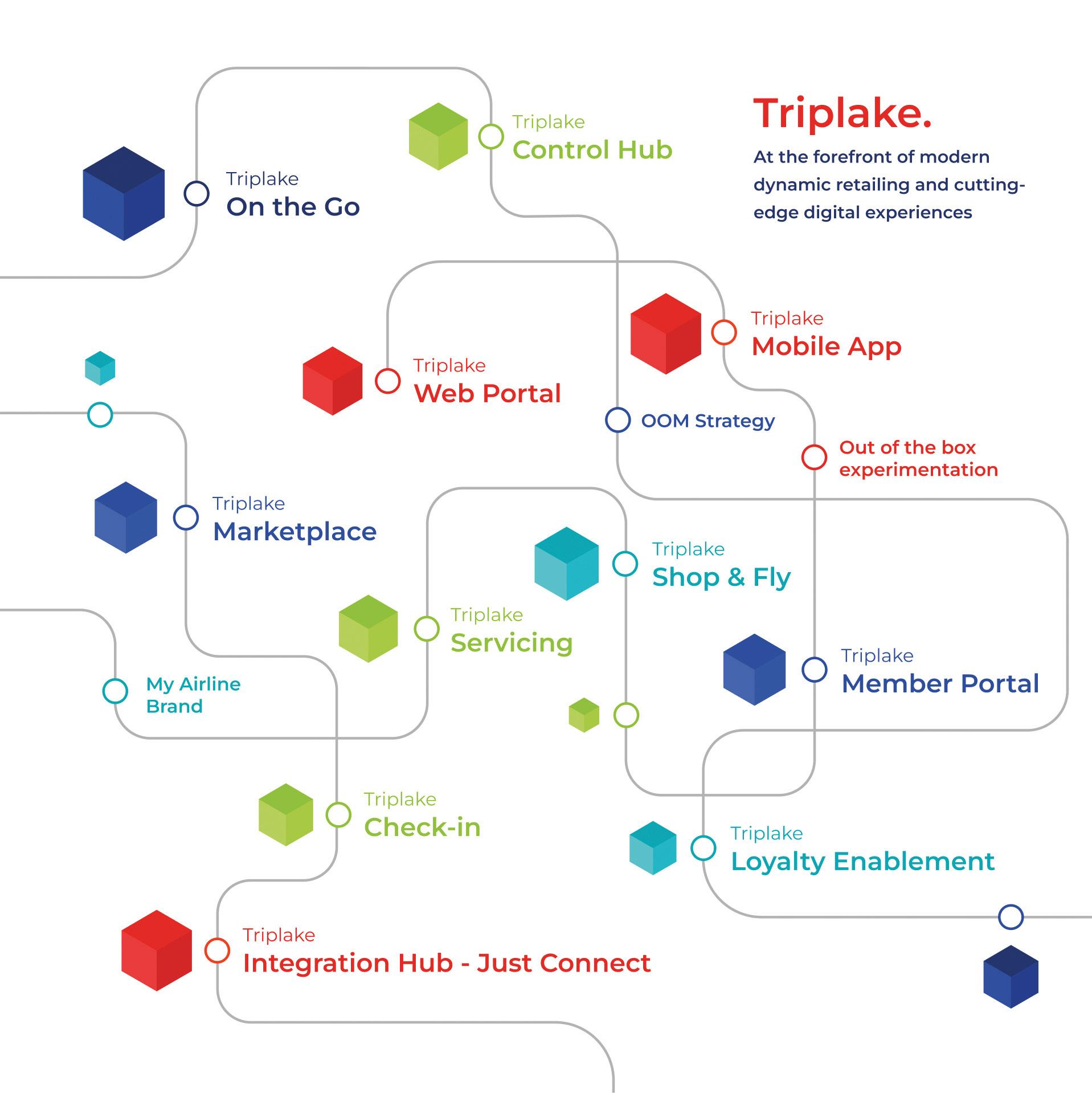
cruise company.”
This also applies to other travel companies. Buranello notes the revenue opportunities for cruise companies don’t end when the trip is booked. “There are also ancillary purchases and upgrades available related to lodging, meal plans, onboard entertainment and services and destination excursions,” she adds.
Thanks to traveler segmentation and real-time data, the platform optimizes travel companies’ ability to synchronize and transform their communications for personalized offers and trip-related information.
In 2023, the International Air Transport Association (IATA) successfully tested an end-to-end digital ID proof-of-concept (PoC) that allows travelers to use biometric digital credentials to verify their identity at every stage of their journey. Backed by Branchspace, the team is now building on this success and “taking significant strides” to enhance seamless, contactless travel.
“This year, we will demonstrate interoperability among various technical partners and airports, highlighting the collaborative efforts necessary to bring this vision to life,” shares Buranello.
“As an integrator, Branchspace is at the forefront, orchestrating a cohesive user experience that not only showcases our technological prowess, but also reinforces our position as a market leader for the best possible digital experiences in the travel industry.”
According to Buranello, this PoC is a game-changer. “This project is not just another milestone for us; it represents a transformative shift in how people will experience travel in the future. By eliminating friction points and integrating advanced technologies, we are setting a new standard for convenience, efficiency and safety in air travel. The potential impact of this project is immense, promising to revolutionize the industry and create a more enjoyable and streamlined journey for millions of travelers worldwide,” she says.













Keep it Fresh with our beautiful brick-built blossoms. There’s no better way to express your feelings for those you love, than with our Botanical Collection – stunning displays that stay fresh.
























by LAURA SHIRK

SEA Milan Airports enhances the passenger experience with AirportLabs’ Pocket Flights tech that provides real-time flight information via smartphone
SEA Milan Airports has teamed up with AirportLabs to integrate its Pocket Flights technology. Passengers at Milan’s Malpensa and Linate airports can experience seamless travel thanks to AirportLabs’ next generation solution that provides real-time flight information via their smart phones. Data is integrated from the airport’s FIDS (Flight Information Display System) to ensure consistency across all channels and touchpoints, providing travelers with the same information that appears on the airport’s displays. Travelers are not required to download an app or
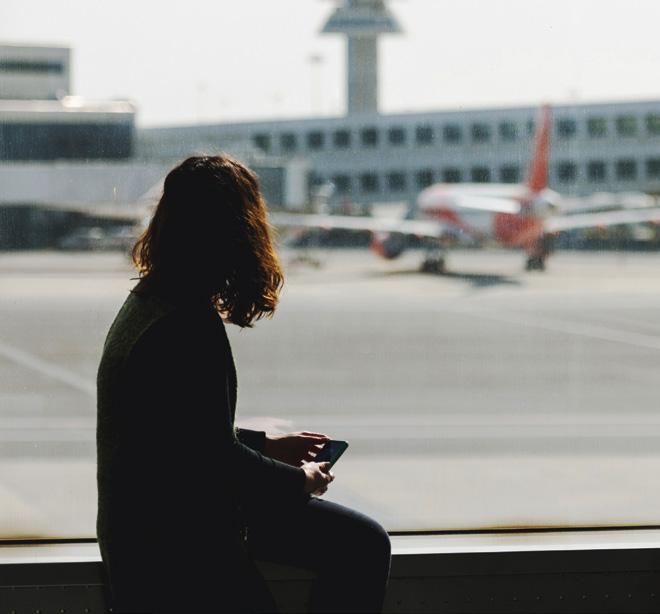
share private information, increasing convenience and eliminating data privacy concerns.
As explained in the press release, by scanning a QR code, passengers gain direct access to a comprehensive flight details page, where they can search for their flight and receive realtime notifications. “This ensures passengers stay well-informed throughout their journey, receiving up-to-date flight information including gate changes, flight status and boarding details,” reads the release. “With this information at their fingertips, passengers can take their time and enjoy a more relaxed, stress-free travel experience that will naturally encourage them to explore and engage with the airport's diverse amenities.” According to the team, Pocket Flights has helped to maximize non-aeronautical airport revenue.
SEA Milan Airports’ introduction of Pocket Flights to the European market sets a new standard for traveler-centric innovation and serves as a model for airports worldwide.
“With the implementation of Pocket Flights, we are proud to be at the fore-
front of adopting innovative solutions that revolutionize the way travelers experience our airports,” says Mario Ponta, Director of Innovation, Quality and Continuous Improvement at SEA Milan Airports. “Together, with AirportLabs, we have been able to deliver this new service to passengers in a short time, aiming to improve their experience at our airports by providing them with real-time and personalized information about their flight. We have found in AirportLabs a company that shares our commitment to combining fast deployment with continuous improvement. This approach is leading to further user experience optimization.”
In 2025, SEA Milan Airports’ marketplace Milano Malpensa Boutique will be featured in the operator’s new WeChat mini program. More than a simple translation, the Chinese version is designed to offer a superior navigational experience. “This additional feature will be an upgrade in the experience for Chinese passengers, who currently have access to only a ‘Western’ site in English,” comments Luigi Battuello, Director Non-Aviation Business Development at SEA Milan Airports.
Also in the works is a delivery service of pre-purchased boutique items to the lounge or gate.
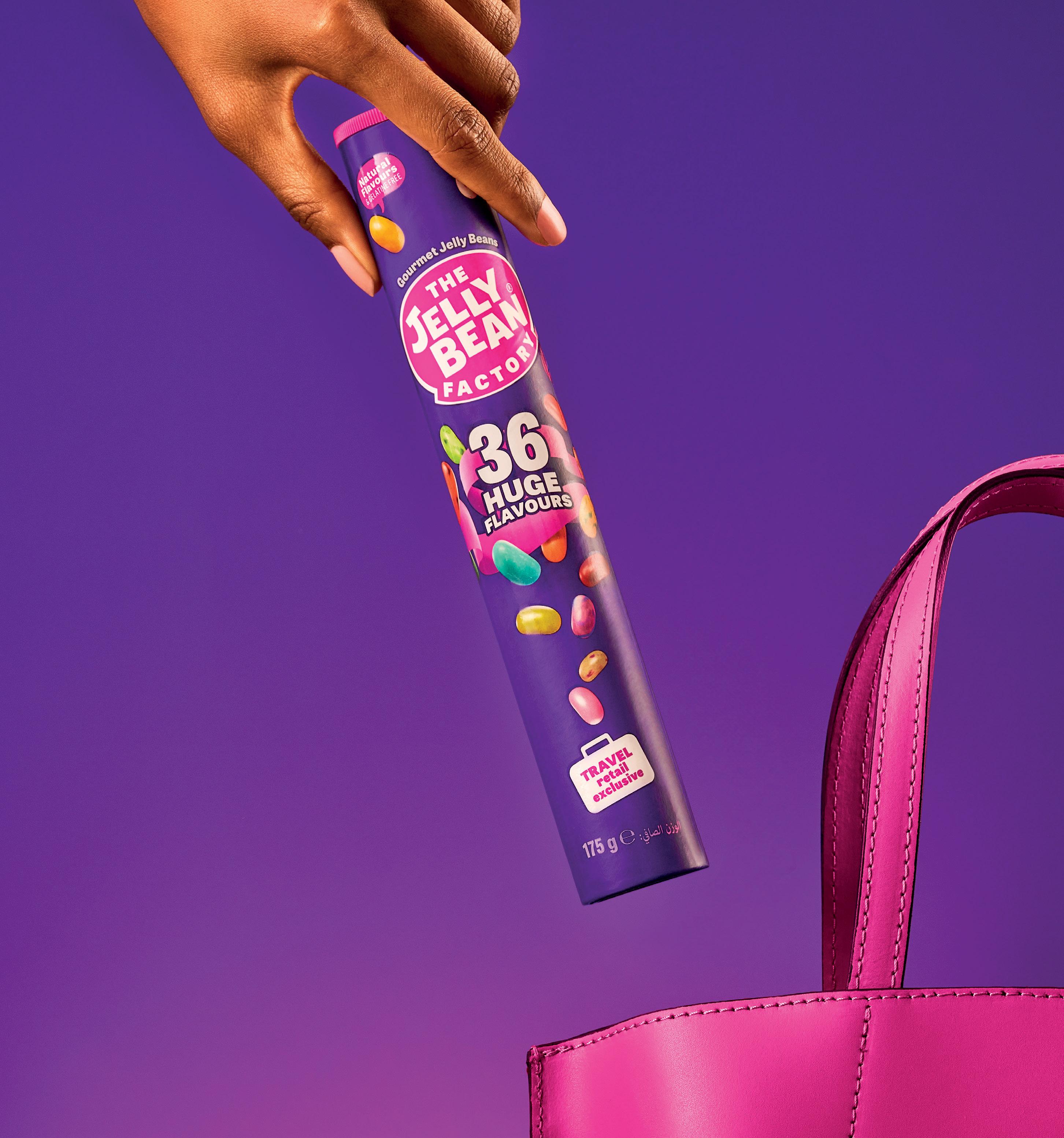
Visit us at the TFWA World Exhibition & Conference, Harbour Village, M/Y ANTISAN, 29 Sep - 03 October, Cannes

THG x Planet Earth is underpinned by three core pillars: protecting climate and nature, strengthening supply chain and circularity and empowering people and communities
Online retailer THG details its group sustainability strategy, THG x Planet Earth, and how it leverages digital technology to work toward a more sustainable future
by LAURA SHIRK
In 2021, THG (formerly The Hut Group), launched its group sustainability strategy THG x Planet Earth. As shared by Mark Jones, THG Chief Sustainability Officer, the strategy is underpinned by three core pillars: protecting climate and nature, strengthening supply chain and circularity and empowering people and communities. Global Travel Retail Magazine connected with Jones to learn more about the efforts of the UK e-commerce retail company and its take on the future.
Each of the pillars are supported by a number of ambitious targets including achieving 100% recyclable or reusable brand packaging by 2025 and powering all geographical operations with 100% renewal energy by 2030. When it comes to people targets, THG is also determined to reach 50% female representa-
tion and 20% ethnic minority representation across its entire workforce by 2030. Among other components, its extensive list of goals reflect innovation, infrastructure, responsible production, economic growth, as well as quality education and gender equality.
“Our THG x Planet Earth covers a multitude of sustainability disciplines, from carbon and nature to circular economy and zero waste across our operations. It ensures human rights are not infringed across our supply chain and our local communities are supported. Our efforts and goals support not only our industries, but can also support others like travel retail,” says Jones.
Beyond its core pillars, THG has set
further external targets that back its commitment to meeting net zero. “Our net zero greenhouse gas targets were approved by Science Based Targets Initiative (SBTi) in September 2023, with targets to have 85% of THG suppliers by spend to meet SBTi targets by 2027, reduce scope 1 and 2 emissions by 42% by 2030 and reduce our scope 3 emissions by 90% by 2040,” says Jones.
THG launched its Partnership in Action (PACT) program in December 2023. PACT aims to work with all suppliers across the company’s supply chain to identify opportunities to decarbonize its emissions and achieve net zero by 2040. As discussed by Jones, this program extends not only to THG’s nutrition and beauty suppliers, but also works with its transport and distribution networks, considering all modes of transport including road, sea and air freight.
“We are working closely with our logistics providers to identify opportunities in the space from HVO (Hydrogenated Vegetable Oil), SMF (Sustainable Maritime Fuel), SAF (Sustainable Aviation Fuel) and even route optimization.

In our dedication to decarbonize our scope 3 emissions, THG is leading the industry, and it's a testament to see our efforts being widely recognized for our approach to working closely with our suppliers,” he explains.
When asked how THG leverages digital technology to work toward a more sustainable future, Jones notes it pushes innovation wherever possible.
“In our warehouses, for example, we’ve implemented incredible technology that allows us to optimize the packaging used depending on the size of the products ordered, minimizing excess packaging and therefore waste,” shares Jones. “The software has data for every
single product showing its volumetric size, allowing it to recommend the right size packaging each time.” According to him, the current system also logs recommended versus packaging used, enabling the company to further improve the technology and, in future, adapt the package it has available if there is demand for different sizing.
In other areas, THG has partnered with Royal Mail and Paack to offer an eco-delivery option to its customers. “Our optimized system uses postcard data to generate the most environmentally friendly delivery route, of which the last mile of the journey is completed on foot either via electric vehicle or bicycle,” he adds.
Established in 2021, THG Eco was built on the premise to simplify sustainability by providing operational solutions to THG and its customers and partners. It relies on the collaborative and coordinated action between governments, organizations, businesses and individuals, as noted by the company. “THG Eco is a pivotal supporting function to help meet our THG x Planet Earth goals and targets and was built by taking the programs being built internally, refined, and sold as a service to customers and partners,” says Jones. The service aims to share best practices to all types of industries and customers, helping them to achieve their sustainability agenda and create a better future.

Essence Corp is not letting a challenging market get in the way of strong plans for further growth in travel retail
by HIBAH NOOR
Essence Corp has always underlined the passion behind its business. Its website leads with this as the company looks forward to stability and growth in travel retail with a multicultural team of 92, which includes 80 staff members based in Miami and an impressive 276-member team of beauty consultants.
According to Antoine Bona, VP of Sales, the company experienced a slowdown in retail during the summer, facing problems in Brazil and Argentina and dragging growth down to single digits compared to strong performances over the last three years.
He expects things to remain stable overall for the second half of the year,
noting an enthusiastic response from brand ambassadors at a seminar in Cartagena. “That is always a good sign for things to come,” he says.
On LATAM, and specifically Essence Corp’s expansion into Uruguay’s border business, Bona says, “Our goal is to continue growing in Uruguay with more brand partnerships and we could envision more synergies with other markets in LATAM from those operations.”
“We remain focused on travel retail and we are not looking for domestic opportunities. Proximity to the markets has always been extremely important for Essence Corp,” he adds.
Considering the continued integration of Shiseido Group brands, particularly in skincare and the impact that has had on Essence Corp’s portfolio mix and sales strategy, Bona says, “We have strengthened our Shiseido partnership with expanded distribution along the Uruguayan and Brazilian borders. Shiseido brand recognition is extremely strong in Brazil and the suncare line is
attractive as many destinations along the border are seasonal.”
He notes that Essence Corp is looking forward to launching Tory Burch from the Shiseido Group fragrance portfolio.
Looking ahead to 2025 and beyond, and emerging trends or technologies, Bona sees airports “constantly renovating their terminals to create a more welcoming environment for travelers.”
“Consequentially operators are being forced to renovate their stores and are also able to carve out more real estate to provide a better shopping experience.”
According to Bona, increased space is allowing brands to express themselves better either with permanent spaces or retailtainment. “We do see a big push towards luxury brands to elevate the airport experience,” he says. “We have seen this firsthand with the addition of niche fragrances in airports,” Bona adds, with Montblanc adding a collection to its assortment which Essence Corp is now rolling out to a wide distribution.

The convergence of premium skincare and effective suncare is creating a growing opportunity in travel retail, as beauty companies increasingly develop products that combine sun protection and antiblemish properties
by ALISON FARRINGTON


China's premium sunscreen beauty market is experiencing a remarkable surge, driven by a confluence of factors that have caught the attention of both domestic and international brands. A growing awareness of UVA and UVB radiation risks, coupled with the rising popularity of outdoor activities, has propelled sun protection to the forefront of Chinese consumers' skincare concerns. This shift, combined with China's skincare-first beauty culture and increasing willingness to invest in highquality products, presents a significant opportunity for the global travel retail market.
Shiseido Travel Retail is poised to elevate its suncare brand Anessa in the upcoming year, according to Senior
Director Linda Lee. The company is adopting a strategic approach to bolster Anessa's brand equity in travel retail. This plan includes upgrading in-store design displays to create a more engaging customer experience, while refreshing the brand's online presence to better resonate with travelers.
“Building on the strong momentum for Anessa in Japan, we invested in airport takeovers at Kansai and Fukuoka, as tourists return to Shiseido’s homeland over the summer. This campaign comprised out-of-home advertising, including taking over luggage trolleys, waiting zones and seats,” says Lee.
Shiseido’s hero SKU in suncare travel retail is bestseller Anessa Gold Milk. “This year, we have upgraded both the formula and packaging, with plans to roll out to in Hainan. We have also invested in creative assets that target
male travelers to expand our reach to a market that is growing at 10% yearon-year,” Lee says. “In addition, we are targeting families with children through two new travel retail exclusive sets to expand the ‘mild’ segment, including Gold Milk alongside Mild Milk or Mild Gel, to build on these franchises.”
To be released next year, Anessa Night Suncare Serum repairs UV damage, prevents spots and brightens skin overnight while moisturizing.
Following the successful China-focused launch of the ultra-premium Ligne Princière in 2023, Lancaster is refocusing on its core global reputation for premium suncare. In global travel retail, the Coty-owned brand will emphasize animations showcasing both Lancaster sun and skin lines side by side.

Shiseido’s hero SKU in suncare travel retail, Anessa Gold Milk, will expand with Mild range
system,” says Goix.
TR exclusives are a key growth generator for Nuxe; it recently introduced a 50ml SPF 50 Delicious Sun Spray, an exclusive offer at Lagardère. Goix says the brand’s Travel Sunny TREX pouch offers sun products to protect the skin during the day and allow it to glow in the evening. The pouch includes: Huile Prodigieuse Gold Dry Oil, After-Sun Lotion, After Sun Hair and Body Shampoo, Melting Sun Cream SPF30 and Delicious Fragrant Water.

Promotions for Lancaster suncare are usually seasonal, but the company’s new strategy is to position its extensive suncare portfolio as available yearround. The key messaging will focus on products such as Lancaster Full Light Technology, which is the brand’s topselling sun protection product in the European market. Lancaster intends to leverage the strength and awareness of its suncare business to highlight that the brand offers solutions to sun damage too.
French brand Nuxe is well-known across Europe for its Huile Prodigieuse and anti-aging suncare ranges, which are underpinned by the brand’s credibility through sales within pharmacies.
Nuxe’s focus on suncare remains within Europe, says Caroline Goix,
Global Travel Retail Manager. “We have worked hard to develop strong partnerships with travel retailers, gaining additional space to showcase our sun range,” she says. “Our TREX + Sun perfume was featured in Lagardère’s summer thematic and Avolta showcased a selection of Nuxe products at several airports.”
For Cannes, Nuxe will focus on its Face Cream SPF 50, Sun Lotion SPF 30, high protection SPF 50 Nuxe Tanning Sun Oil and Nuxe Delicious Sun Spray SPF 30.
“We aim to build credibility through communicating the effectiveness of our exclusive patented formula for our suncare collection, which includes a combination of three organic sunscreens recognized for their tolerance and their effective broad-spectrum UVA/UVB protection, and which has also been tested as non-toxic for the marine eco-
Sol de Janeiro, known for its Brazilian Bum Bum Cream in travel retail, is expanding into the suncare market and has partnered with American influencer Sofia Richie Grainge to be the face of the Brazilian body care brand’s Rio Radiance SPF 50 Sunscreen collection.
The aim of the “Sunscreen Worthy of Your Skin” ad campaign and suncare product collection is to address diverse sun protection needs, per a brand release. The Rio Radiance Sunscreen collection comprises SPF 50 Body Lotion, Body Spray and Body Oil. CEO and co-founder Heela Yang says the launch is “highlighting how everyone deserves sunscreen that not only protects and nourishes the skin but also gives an all-over glow.”
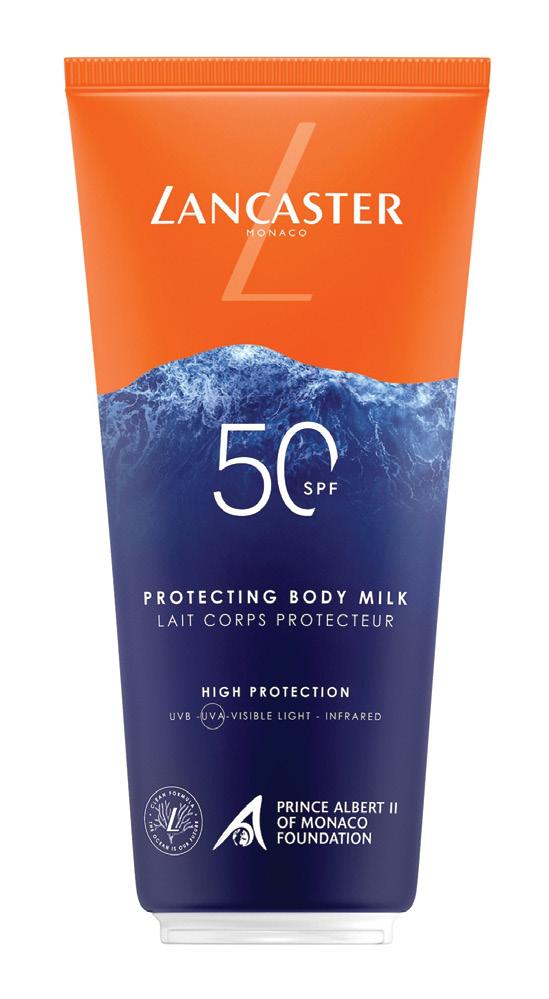
Coty’s Lancaster will focus on year-round promotional strategy for suncare growth in travel retail
Elizabeth Arden has partnered with duty free retailers in China to organize a Prevage-themed beauty masterclass to spread the emotional and functional messaging of the brand

Elizabeth Arden introduces the latest additions to its Prevage collection, which align with global beauty trends including skincare prevention, “Notox” and “NeuroGlow”
by LAURA SHIRK
Elizabeth Arden has announced the release of its Prevage Multi-Restorative Soft Cream and Prevage 3-in-1 Reset Serum. Pioneering a new era in preventative skincare, these innovations embody the essence of luxury, efficacy and technology, providing a “cosmetic intervention” for ageless skin. This powerful duo offers advanced comprehensive anti-aging solutions and early improvement in skin texture and resilience, as well as reflects the growing interest in topical Botox ingredient
Argireline Peptide. The latest additions to its Prevage collection will be introduced to Asia Pacific travel retail in Q4 of this year.
Dynamic duo
The Prevage Multi-Restorative Soft Cream is specifically formulated to strengthen the skin’s dermal matrix and provide collagen support, delivering visible fullness, firmness and lift. The lightweight hydrating cream plays a key role in early prevention, actively strengthening the skin’s foundation.
Clinically proven to renew the skin’s barrier and visibly repair skin, the Prevage 3-in-1 Reset Serum is designed to address multiple signs of aging via its triple-action anti-aging power. The lightweight serum uses Argireline Peptide to relax facial muscles, Carnosine to protect the skin from oxidative stress and Idebenone to prevent collagen damage. Together, these ingredients reverse signs of aging and rejuvenate the skin for a more youthful complexion. Supporting the the movement toward “Notox” (non-invasive alternatives that


Prevage 3-in-1 Reset Serum is designed to address multiple signs of aging via its tripleaction anti-aging power
Prevage Multi-Restorative Soft Cream provides collagen support, delivering visible fullness, firmness and lift
the core ingredient technology in our Prevage collection, protects against over 99% of collagen damage for dramatically younger-looking skin. In fact, 100% of women who tested the serum would delay a cosmetic procedure. The restorative cream is a game-changer too, leaving skin visibly firmer, fuller and lifted in just seven days.”
Elizabeth Arden Asia Pacific Travel Retail has also been developing the emotional connection of its Prevage collection. In 2023, the team shared a series of short stories on Chinese social media about how the brand supported women at different stages of their lives. This year, the team is building on the success of its storytelling approach with an inspirational song titled “Glowing Prevage Girl,” that instils the “positive living” philosophy behind the brand. The music video showcases the growth of three influencer singers in connection to looking their best while chasing their dreams.

have a Botox-like effect), the serum works to prevent, correct and protect.
According to American dermatologist Dr. Dendy Engelman, the products also align with two global beauty trends: skincare prevention and “NeuroGlow” (the holistic approach to skincare that emphasizes the connection between internal health and the skin’s health).
“[The concept of skincare prevention extends beyond merely addressing existing signs of aging; it emphasizes taking pre-emptive steps to protect the skin from damage and delay the onset
of visible signs of aging. With this in mind, the Prevage Multi-Restorative Soft Cream and the Prevage 3-in-1 Reset Serum stand out as innovative solutions that embody the foresight and self-care many seek,]” says Engelman.
“We are very excited to welcome the new Prevage 3-in-1 Reset Serum and Prevage Multi-Restorative Soft Cream to Elizabeth Arden’s Prevage premier cosmeceutical skincare,” adds Susan Zuckerman, Vice President of Global Marketing, Skincare, Elizabeth Arden. “New studies show that Idebenone,
Additionally, Elizabeth Arden has partnered with duty free retailers in China to organize a Prevage-themed beauty masterclass to spread the emotional and functional messaging of the brand. A recent VIP class was conducted in collaboration with Hainan Development Holdings’ Global Premium Duty Free. Attendees took away motivational stories about Elizabeth Arden’s founder and the growth mindset behind Prevage. According to the team, they also discovered the technology and efficacies of Prevage, alongside beauty skincare tips. Plus, attendees took part in DIY grooming activities, while enjoying a Prevage-themed high tea.
“Our beauty masterclass aims to create an experience which connects the mind, body and soul,” says General Manager Yumie Chia. “There is an emotional connection when using our products. It is not just about what the product does to your skin, but also how it makes you feel inside. Prevage instils strength and positivity in our minds.”

BEAUTE LUXE, the leading distributor of perfumes and cosmetics in Africa's travel retail sector, continues to expand its footprint across the continent. In 2024, the company launched 15 new retail locations in various airports, solidifying its dominance in this burgeoning market.
With the recent additions, BEAUTE LUXE now operates over 120 travel retail locations across Africa. This strategic expansion allows the company to cater to an increasingly large international audience, addressing the rising demand for luxury beauty products. The growth in retail locations enhances accessibility for consumers traveling through African airports, improving their overall travel experience.
Diverse and prestigious partnerships
BEAUTE LUXE’s portfolio now includes prestigious brands from L’Oréal, Puig, Hermès, Coty and L’Occitane. These collaborations highlight the strength of the
company's distribution network and its ability to diversify product offerings. By expanding its brand portfolio, BEAUTE LUXE attracts a broader and more discerning clientele.
The company continues to offer a wide range of over 60 luxury perfume and cosmetic brands, including iconic names like Armani, Lancôme, Hermès, Gucci, Paco Rabanne, and Jean Paul Gaultier. This diverse portfolio allows BEAUTE LUXE to cater to the varied preferences of consumers while maintaining high standards of service quality, ensuring constant innovation and adaptation to market trends.
These expansions and partnerships reinforce BEAUTE LUXE’s leadership in Africa’s travel retail market. With a growing presence in major airport hubs, the company is well-positioned for continued growth. BEAUTE LUXE’s strategy is grounded in a deep under-

standing of consumer needs and market trends, ensuring its leadership status.
David Dayan, President of BEAUTE LUXE, confirms that the company will continue to enhance the premiumization of perfume and cosmetic spaces in African airports in 2025, leveraging its prestigious brand portfolio. New contracts with brands and airports are under discussion. With an ambitious expansion strategy, including animations, pop-up stores, and skilled sales advisors, the company aims to offer an exceptional experience for passengers, meeting the expectations of increasingly demanding consumers.
The future appears bright for BEAUTE LUXE, as it strives to offer the best to travelers across Africa. Its rigorous growth strategy and strong partnerships position the company as a key player, ready to face challenges and seize opportunities in a dynamic market.



Luxury fragrance house
Ajmal Perfumes is on a mission to broaden its footprint in global travel retail as the demand for Middle Easterninspired, and Oud-based fragrances increases
by HIBAH NOOR
LEau D’Oud embodies the essence of Ajmal Perfumes’ rich oriental heritage
uxury fragrance house Ajmal Perfumes is on the move in global travel retail, determined to extend its network as the demand for Middle Eastern-inspired and Oud-based fragrances and products increases.
In the lead-up to this year’s TFWA World Exhibition & Conference in Cannes, Ajmal Perfumes underlines its progress since the brand’s formation in 1951 by the late Haji Ajmal Ali, a former rice farmer turned entrepreneur. Over the past 73 years, Ajmal Perfumes – with its Oud-based creations and a legacy built on trust, transparency and tenacity – has become a beacon of excellence in the world of perfumery across the Middle East and GCC.
According to Abdulla Ajmal, CEO, Ajmal Perfumes, the brand stands out in the global market due to its unique blend of tradition and innovation.
He notes the significant strides in expanding the company’s presence in the duty free and travel retail sector, with over 68 duty free international locations, including prominent destinations such as London, Kuwait, Bahrain, Cairo, and a new Ajmal Perfumes boutique at Muscat Duty Free.
Abdulla Ajmal says featured collections at the new store are specifically tailored for airline and duty free customers. “Our goal is not only to offer perfect gift and souvenir options but also to make it easier for travelers to indulge in our fragrances for their personal use. This expansion highlights our

commitment to providing high-quality, accessible luxury to a global audience,” he explains.
Other recent developments include partnerships with JMK Trading at Ras Al Khaimah Seaport, Lagardère Travel Retail in Saudi Arabian airports, and Gebr Heinemann at Bodrum Duty Free, along with listings on selected airlines including South African Airlines and Air Tanzania.
Abdulla Ajmal underlines the growing interest in Middle Eastern perfume brands, “driven by the unique allure of Oud and the appreciation for artisanal craftsmanship.”
“To adapt to this trend, we are expanding our product lines to include more Middle Eastern-inspired scents, meeting the rising demand and catering to our customers' preferences,” he says.
“Additionally, Ajmal’s farm-to-fragrance ethos guarantees the highest quality of raw materials, ensuring that our
products not only provide a luxurious experience but also align with the values of today's discerning consumers.”
At TFWA World Exhibition & Conference 2024 Ajmal Perfumes will present its latest ranges, with a spotlight on the Ajmal Prive Collection. Eau D’Oud – which embodies the essence of the brand’s rich oriental heritage – will also feature along with Aristocrat Coral, Aristocrat Coastal and Gem collections, offering a modern twist on luxury.
“These collections exemplify our commitment to combining tradition with innovation, ensuring that we offer something unique and captivating for every discerning fragrance lover,” Abdulla Ajmal adds.
He is quick to emphasize Ajmal Perfume’s farm-to-fragrance ethos and vertical integration, with strict quality control at every stage of production ensuring products meet the highest standards of purity and authenticity
“which are the hallmarks of Ajmal Perfumes.”
He also notes the brand’s substantial growth in both the GCC and European markets. “This impressive expansion reflects a robust demand for our products, driven by increased consumer interest and strategic market penetration,” he says. “While in the GCC the brand has always been the top choice of the discerning customers, the European market continues to thrive with a growing appreciation for our brand. This growth across both markets underscores our commitment to excellence and our ability to meet diverse customer needs in different regions.”
Ajmal Perfumes is “constantly exploring new fragrance combinations, sustainable practices and advanced production techniques to meet evolving consumer preferences,” explains Abdulla Ajmal. “Our commitment to quality and authenticity remains unwavering, ensuring that every product we create meets the highest standards. By blending our rich heritage with modern innovation, we maintain our competitive edge and continue to captivate customers worldwide.”
Oud is “undeniably here to stay”, adding its complex aroma and association with luxury and tradition ensure its enduring appeal. Abdulla Ajmal views Oud as “one of the most prized and ancient ingredients in perfumery” and believes its prominence in the fragrance industry is not merely hype but a reflection of its allure.
Ajmal Perfumes – “as a trailblazer in Middle Eastern fragrances” – welcomes the resurgence in interest in these traditional elements and feels the renewed global appreciation for Middle Eastern scents validates the brand’s longstanding commitment to authenticity and quality.
“We continue to showcase our mastery by maintaining our heritage while embracing the growing demand for rich, complex fragrances that feature classic notes like Oud, rose, musk and saffron. This aligns perfectly with our dedication to blending tradition with innovation,” he concludes.
Interparfums USA is a billion-dollar company with a “40-year startup” mindset. Jean Madar, Chairman of the Board and CEO, outlines the company's personal approach and the strategies to keep key brands at the forefront of travel retail’s beauty category
by HIBAH NOOR


Interparfums USA experienced a solid first half of 2024, seeing almost double the performance of the first half 2023.
According to Jean Madar, Chairman of the Board & Chief Executive Officer, Interparfums USA, its focus has been on strategic steps to strengthen its business. “Our footprint with DKNY, MCM and Ferragamo continues to grow globally in travel retail as well as Coach, Jimmy Choo, and Montblanc,” he says. Newcomer to the line-up Roberto Cavalli has attracted strong interest, and its solid performance in the Middle Eastern market offers further growth in the region.

Global expansion plans for leading brand Guess are led by novelty items such as the new Amore Collection which, Madar says, “fits the destination mindset of travel so seamlessly.”
Considering new fragrance trends in travel retail, Madar says niche fragrances remain on trend and are gaining increased space in the channel. In terms of demand, however, designer fragrances remain strong commercial drivers.
“For our portfolio this is why we see continued strength and YoY growth in our DKNY, Guess, Montblanc, Coach, Jimmy Choo, and Ferragamo brands across the European travel retail market

where we have a strong presence and foundation,” Madar says.
“The Middle Eastern market, with its fundamental affinity for fragrance, is the most interesting market for us to begin to tap into and largely one that we have not played in previously. Through our new Roberto Cavalli brand and growing interest for MCM, we look forward to expanding our presence and creating a solid footing in the region.”
Madar highlights the launch of DKNY’s 24/7 as the “first blockbuster novelty item under Interparfums”. “This fragrance in concept works so well in connecting to travelers and is one that we are investing heavily in via media
and outpost animations in travel retail,” he says. “It is truly a new chapter for the brand and a launch we can capitalize on in the travel retail sector.”
He also spotlights the launch of Roberto Cavalli’s Sweet Ferocious Eau de Parfum in July, when Interparfums partnered with Dubai Duty Free for high level visibility. “As we continue to tap into the market, it was an exciting endeavor to start things off. Some of our greatest moments are yet to come in 2025.”
For ‘blockbuster’ brands Cavalli, Ferragamo and MCM, Madar outlines what he describes as a “robust launch pipeline for 2025”. “While I cannot reveal all the details just yet, I can say without a doubt that next year will be a very exciting one. Each of these brands stands out to consumers for very different and unique reasons.”
Cavalli, he says, symbolizes a luxurious and exuberant Italian lifestyle. “There are several offerings in the Cavalli fragrance portfolio that appeal to a variety of consumers.” Madar describes Roberto Cavalli scents as “sophisticated, luxurious, and flamboyant” while Just Cavalli fragrances are “designed to appeal to contemporary, urban customers that are young or young at heart.”
“We are in the early phases of our partnership with Cavalli,” he says, adding that 2025 will see the launch of new innovations for both Roberto Cavalli and Just Cavalli.
Madar regards Ferragamo as “one of the most important global luxury brands on the market today”. “With a tradition that is strongly rooted in Italian craftsmanship, the Ferragamo customer is international, sophisticated, and looking to own a bit of this heri-
tage,” he says. “In 2025 we will reveal the first blockbuster fragrance created in partnership with Maximilian Davis, the brilliant young creative director at Ferragamo who is transforming the brand adding a contemporary point of view, continuing the brand’s legacy of innovation and creativity. Like with his fashions, the blockbuster will reflect an exciting new direction for Ferragamo fragrances.”
On Interparfums USA positioning in today’s competitive beauty market, Madar says the company seeks out legacy brands that have a story to tell and are desirable to consumers. “Fragrances have the power to reach whole new audiences who want to own a little part of these brands,” he adds.
Despite being a billion-dollar company, Interparfums USA maintains what Madar calls a “40-year startup” mindset. That involves a personal approach which encourages partners to get deeply involved in the creative process, while also leveraging the company’s global reach to support marketing and distribution in over 100 countries worldwide.
“To succeed, you must create excitement, desire, and emotion. We need to always remain ahead of the curve and continue to delight and engage a global consumer base,” Madar adds. He believes that through close collaborations, understanding their heritage, and staying on top of ever-evolving consumer tastes, Interparfums can help brands stay relevant and exciting for a whole new generation.
“With award-winning product design, combined with innovative olfactive profiles and excellent storytelling, we can continue to create that desire that will capture the hearts and imaginations of the consumer,” he concludes.
The newly formed Tairo Group will operate through three specialized divisions
Tairo International has announced its rebranding to Tairo Group, marking a significant shift in its approach to the luxury, beauty and consumer goods markets. This transformation reflects a streamlining of business operations and the creation of a more unified corporate presence.
Three specialized divisions:
1. Tairo International Luxury Division
2. SOMAR Beauty and Consumer Goods
3. Fantasy Fragrances’ Independent and Niche Brands
This restructuring aligns with the company’s commitment to excellence across its various product categories. The rebranding emphasizes Tairo Group’s dedication to quality and innovation in delivering products and services through these specialized divisions.
The company’s focus remains on invigorating beauty and consumer

brands in the Caribbean, Mexican and US markets, working in partnership with multinational companies and retailers. This rebranding represents a new chapter in the company’s mission to distribute and develop an extensive portfolio of world-renowned brands in the luxury, beauty and consumer goods sectors.


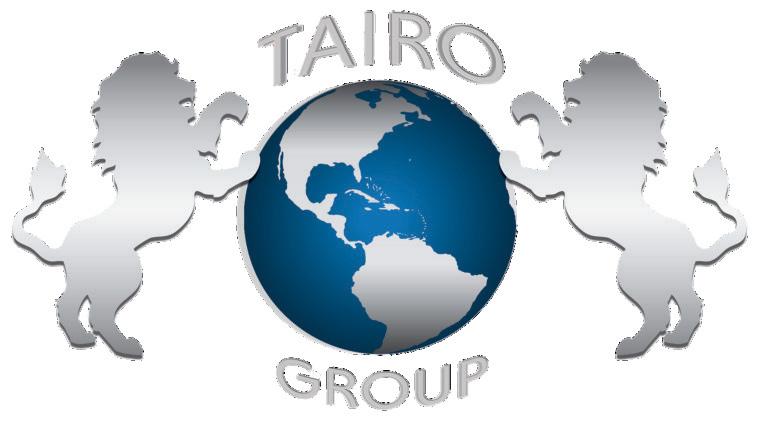
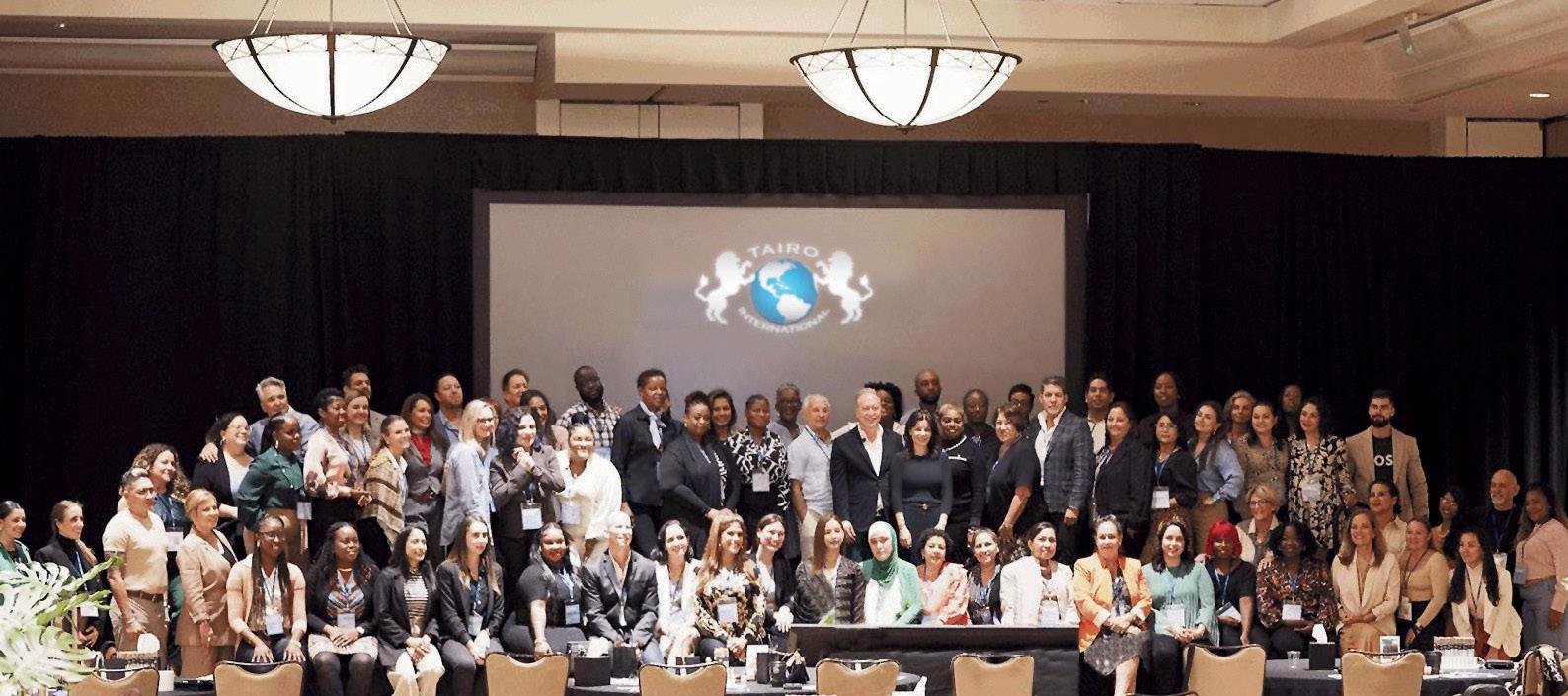

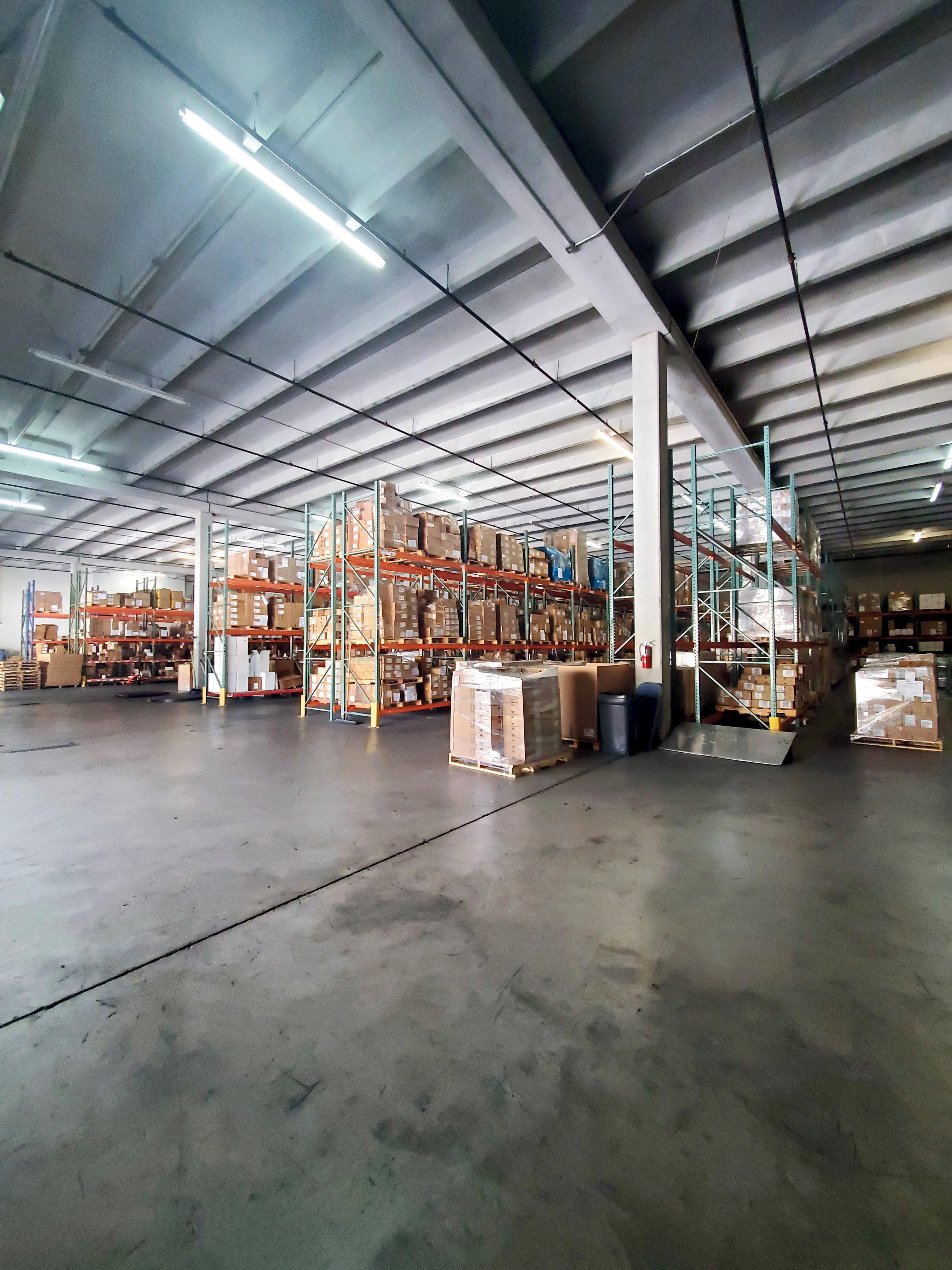
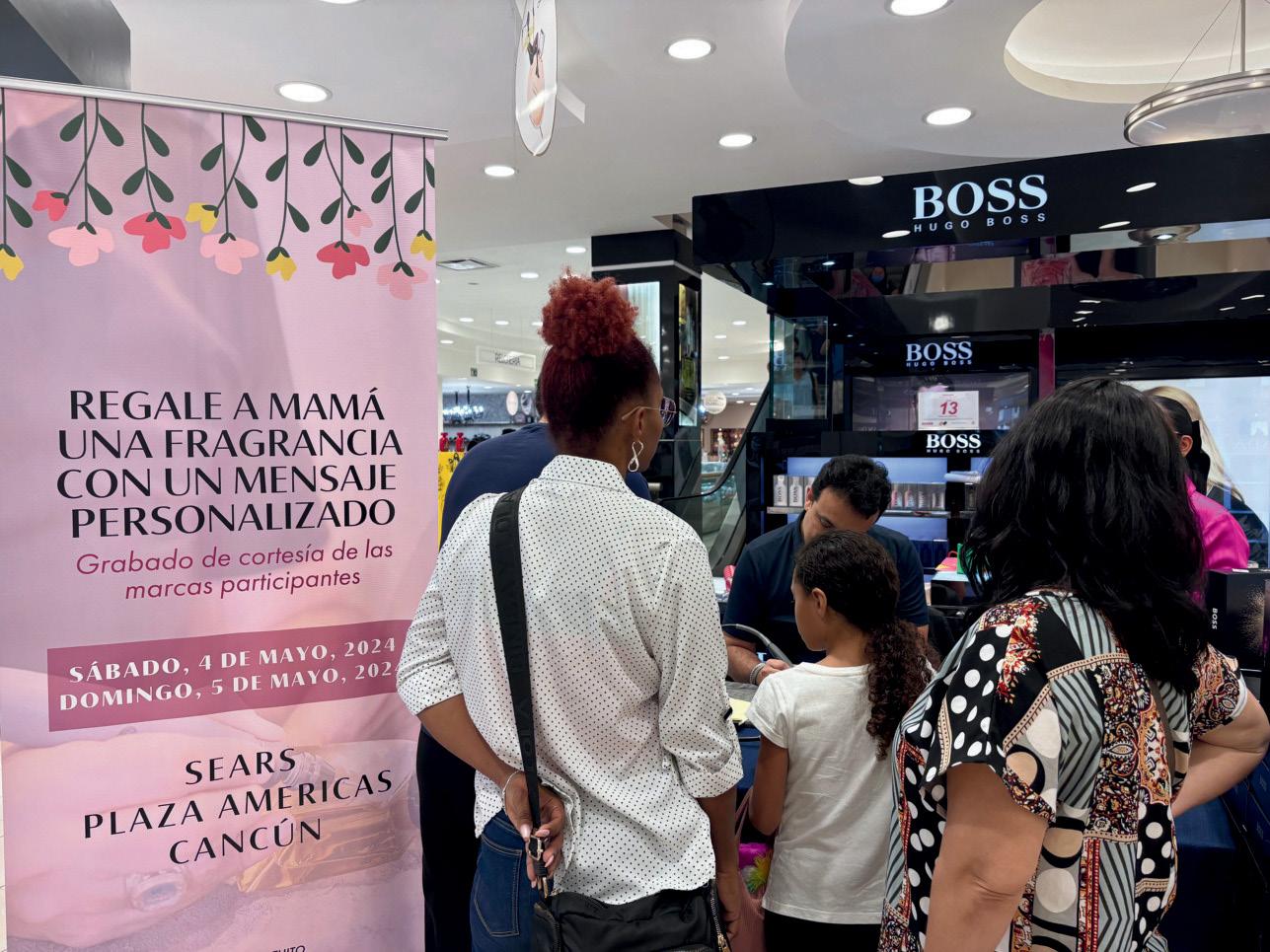




In this Cocoa Report, Global Travel Retail Magazine speaks to key names in the chocolate category, Nestlé International Travel Retail, Neuhaus and Butlers Chocolates, for an update on the market; we cover contributing factors, systemic issues and a look at the future
by LAURA SHIRK
In May, as part of its quarterly bulletin on cocoa statistics, the International Cocoa Organization (ICCO) released its revised forecast for the 2023/2024 cocoa year. The organization reported it is “certain the season will end in a higher deficit than previously expected.” According to the ICCO, far lower cocoa supplies from the leading producing countries (such as Ivory Coast and Ghana) have further extended the supply deficit. At the time, global production of cocoa was projected to decline by -11.7% to 4.5 million tonnes.
As the surge in pricing continues to challenge the travel retail business, it is worth noting contributing factors including climate change, supply disruptions, global shortage and minimal investment in cocoa farms, as well as systemic issues such as the limited price setting power of cocoa farmers that could cause pricing to remain at an alltime high.
“While the limited price setting power of farmers is indeed a significant factor in the increased cocoa prices, it is only one piece of a much larger puzzle,” comments Max Van Coillie, Business






Development Manager, Asia & Middle East, Neuhaus. “We must also acknowledge the broader challenges, such as climate change and shifting weather patterns, which are likely to have a lasting impact on cocoa-producing regions. These systemic issues could lead to structurally higher prices in the long term. It is therefore that we believe the sustainability mindset is essential to a modern company’s working.”
At the time of writing this, and as shared by Van Coillie, cocoa exceeded US$9,300 per metric tonne, which he says is a stark contrast to US$3,000 seen 12 months ago. Within the last year, prices have fluctuated wildly, at times reaching US$12,000 per tonne, representing a quadrupling of value.
“These unprecedented price movements reflect the ongoing volatility in the cocoa market. An optimal price for Neuhaus would be the price that the market demands and requires, where every stakeholder receives a fair share of the growing/production process, starting from the farmer all the way down to the final consumer,” he adds.
Nestlé International Travel Retail (NITR) Marketing Manager Aura Sanchez says NITR is fortunate to be part of a large and very efficient company where challenges are quickly recognized and solutions are realized. NITR is actively exploring various strategies to mitigate the impact of the challenges
posed by the ongoing high price of cocoa.
“Our commitment to maintaining the exceptional taste, texture and overall experience that consumers have come to expect from Nestlé remains,” she says. “We are positive that efforts to find innovative solutions that strike a balance between managing costs and preserving the quality that defines our brands will minimize any problems within the travel retail channel.”
Suppliers are looking to manage costs and maintain spend per passenger by streamlining operations, increasing promotions and implementing new product formats. “Working closely with retailers is important to be able to drive value and to ensure a positive airport experience, so shoppers maintain their consumption levels,” explains Sanchez. She says NITR achieves this by elevating gifting options, leveraging digitalization and enhancing the overall experience to maintain a consistent value proposition.
Tailoring airport staff training is an effective way to generate awareness of the situation among both industry professionals and consumers. From an outside perspective, it seems suppliers are limited to adapting to the soaring prices and passing that on to the consumer.
Contrary to discussion that the market could potentially correct itself in the second half, Aisling Walsh, Marketing Director at Butlers Chocolates, shares
the company does not see a correction in the short term, or any signs of returning to 2023 levels in the foreseeable future.
“While output is being affected with lower crop yields, this in conjunction with demand outstripping supply, will result in an inevitable uptick in price,” explains Walsh. “Until these factors level out, we are looking at higher cocoa prices. To protect supply in the long term, it is important for all of us who use cocoa-based products to really consider and support the supply chain, and work to help cocoa farmers employ sustainable practices and build better livelihoods for themselves, their families and their communities.”
While there was speculation that premium cocoa prices might remain unaffected, Van Coillie says as demand for high-quality cocoa surged and supply remained constrained premium prices have followed the general upward trajectory.
Van Coillie adds, “We anticipate the next five years will bring more changes and challenges than the past two decades combined. To navigate this evolving landscape, it's crucial we stay ready and agile, adapting to whatever market conditions arise and ensuring our ability to maintain quality and excellence, regardless of external pressures.”




















In this Snacking Report, we speak to confectionery players Cloetta GTR, Perfetti Van Melle and Kellanova GTR on the rise of sour, the growing demand for savory options and the importance of impulse purchasing
by LAURA SHIRK


based products. According to Jana Stroop, Global Travel Retail Manager at Cloetta Global Travel Retail (GTR), the company’s products fall into the last category. “We take a lot of care when developing products and keep the modern consumer in mind,” shares Stroop. “Our latest innovation, Red Band Real Fruit, was one of the first innovations on the market offering confectionery made with 50% real fruit. While still tasting like candy, of course.”
Right now, the company is planning a new product launch under its Red Band brand, with more details to come.
Bean Factory. It recently removed four polarizing flavors from its flavor mix and replaced those with four unique and trendy flavors: salted caramel, forest fruits, peach bubble tea and cherry blossom soda.
“These four new flavors were developed after extensive research with consumer tasting panels, and are a hit within the mix,” notes Stroop. “By combining familiar flavors (like watermelon and strawberry) with the exotic and novel flavors mentioned previously, there is something to enjoy for every traveler, no matter the flavor profile.

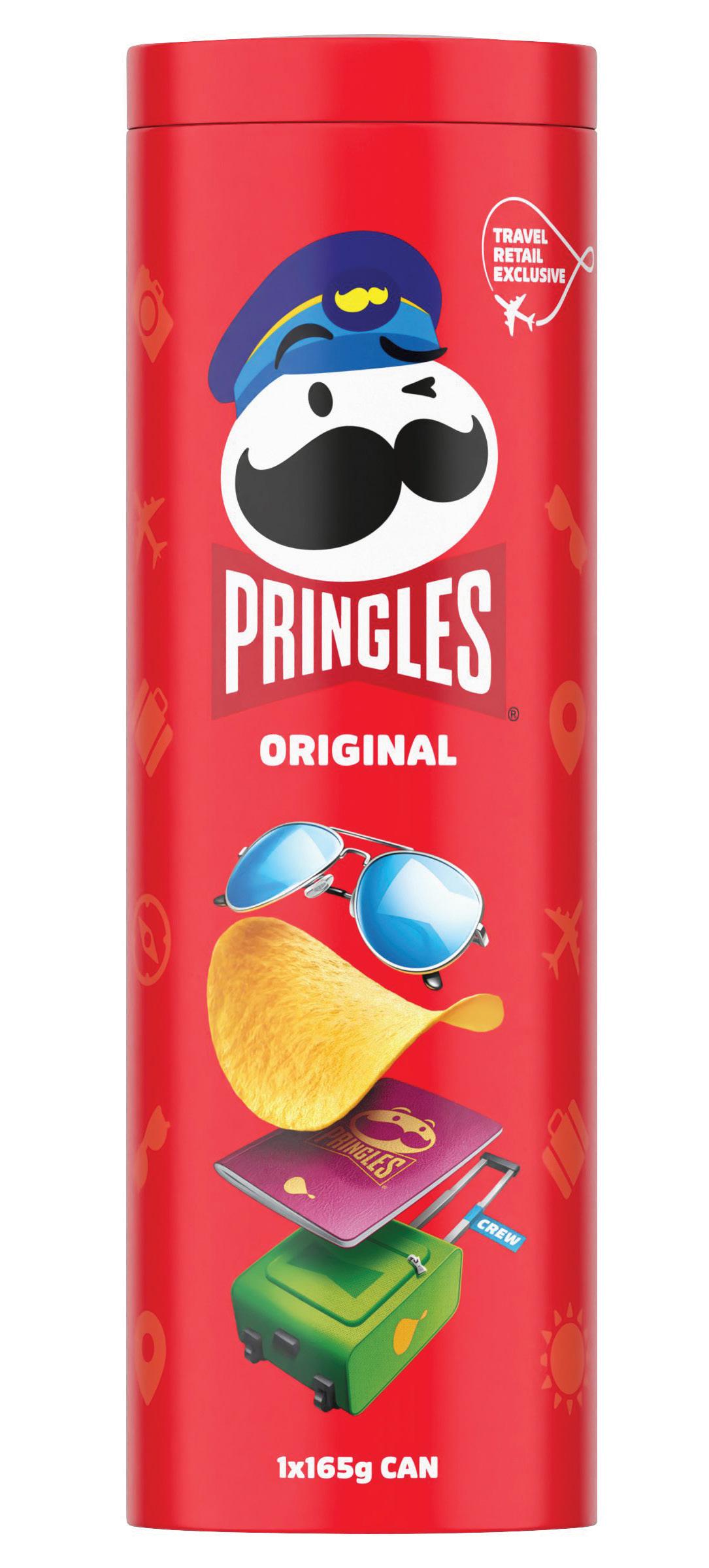
This way, we are continuously improving our brand and products, to be future proof.”
Additionally, since it is increasing in popularity as a taste, Cloetta GTR has launched a sour mix.
The same thinking went into the release of Perfetti Van Melle’s (PVM) third pouch bag. “New for 2025 will be our Chupa Chups Sour Pouch Bag, offering an additional item to our snacking and sharing portfolio, with flavors sour strawberry, sour lemon and sour apple,” says Lauren Potter, Senior Brand Manager, Global Travel Retail.
According to Potter, consumers love to try new products, “especially with new, weird and wonderful flavors inside.” This is why PVM just launched the Mentos Discovery Jumbo Roll, featuring 14 flavors including pineapple, orange, lemon, lime, grape, cherry and passionfruit. Potter adds, “This is the first [new product development] of its kind and where launched, it’s already performing very positively. There will be a flavor inside, either instantly familiar or brand-new to travelers across the world.”
On the other side of the aisle, savory snacking is growing rapidly and gaining momentum. Kellanova reports the salty category within food travel retail increased 10% (Q1 2024 vs. Q3 2023). Recently making headlines for its acquisition by Mars, Kellanova is on the up and up.
“The salty category keeps on growing as Kel-
lanova Global Travel Retail’s Pringles range is launching and gaining distribution around the world with its regularsized cans, as well as its travel retail exclusive portfolio,” says Senior Business Manager Jacco Douma. The company is looking to bring the “fun, pop and share” alive within the category.
Kellanova Global Travel Retail is also looking to enter into the health snacking space by creating channel exclusive collections with the company’s iconic brands such as Kellogg’s and RXBAR.
Speaking about the transaction zone in travel retail, all three spokespeople zero in on how the food and confectionery category relies heavily on impulse purchasing. “Strategic placement of confectionery [items] near checkouts and high-traffic areas is crucial. Cloetta GTR has several products in its assortment which are perfect for such placement, an example of which is the The Jelly Bean Factory Pop A Bean. At 100 grams, it’s easy to take on the go, and its robust outer packaging ensures it can withstand a journey,” says Stroop.
On the same topic, Potter adds, “We at Perfetti Van Melle have the optimal range of single gum and mint items, under our Mentos brand, that are the perfect pick-up products and at the right price points. We’re continuing to look at offering the best in-store visibility solutions for these areas plus ensuring we have a fresh, innovative and exciting product range to suit.”
In partnership with m1nd-set, Kellanova GTR has an understanding of the behaviors of duty free shoppers. It strategically places small cans at the queuing area and bigger cans and gifting travel retail exclusive items on shelves and walls. “By putting this in place on the shopfloor we see the uplift in the basket value with our partners,” says Douma.




Fashion jewelry brands are targeting Gen Z travelers via social media campaigns and destination-driven collections. Global Travel Retail Magazine discovers travel exclusive designs offer more emotive purchasing opportunities
by ALISON FARRINGTON

Danish jewelry brand Pilgrim is making “steady progress” adding to its list of travel retail partnerships. “Compared to last year, we are growing both organically and by opening new locations,” says Louise Rhode, Head of Travel Retail.
The Pilgrim Travel Exclusive collection ranks among the top-performing products including domestic sales, says Rhode. In April, Pilgrim launched at Newark Airport in partnership with 3Sixty Duty Free. “This follows our introduction to the US duty free market in December at Dallas Fort Worth Airport. We have opened 14 new airport locations since last year, while airline customers have also responded positively to our current collections,” she adds.
Pilgrim’s fall 2024 collections just launched. This season, it’s all about self-reflection. The Intentions collection
invites customers to speak up and dress with comfort, authentically express themselves, and rethink what truly matters.
According to Rhode, the brand has an enduring love of the charms trend.
“The perfect add-on to any jewelry collection, [charms] tap into a world of creativity where creating your own style is all that matters,” explains Rhode.
“At Pilgrim, we connect with Gen Z customers through authentic storytelling, active social media engagement, and a strong focus on sustainability. By emphasizing personalization, inclusivity and fostering a strong community, we resonate with Gen Z's values and preferences, building meaningful connections and loyalty.”
Design DNA and new additions
Majorica celebrates its Spanish heritage for its 2024 collections with a focus on the brand’s design DNA, the pearl. Already well-known in Spanish and Latin America markets, Majorica is looking to grow its export markets around the world.
“We have updated all of our collections to be more contemporary; there are gold and silver link sets and everywhere is the pearl, which is what Majorica became known for in the 80s and 90s,” says José Carrera-Rodriguez, Head of International Sales.
The brand is seeing particular appetite from airline partners keen to develop exclusive sets for regional



Struggling with effective PR at industry events?
We’re trusted by many to provide reliable, e˜ective media coverage with our short term industry event packages. With editorial, interview organisation, media monitoring and ad negotiations, Essential Communications is the industry’s first and leading TR specialist PR agency.







Essential Communications is an award-winning integrated public relations and marketing agency with a proven track record in travel retail/duty freeand international wines & spirits. We prefer plain talking and action to marketing speak and endless hype.
Featured across its updated collections, the pearl is the design DNA of Spanish heritage brand Majorica

markets. “There is a lot of interest from in-flight customers in Asia and Latin America, who want to develop their own designs, based on our collections,” he adds.
Elsewhere in the world of jewelry, Kurate International is known for its Moon, Belle & Beau and Author brands, which offer a range of price points for its gold, sterling silver and fashion jewelry collections. It has been a go-to supplier in travel retail for over a decade.
“We are returning to TFWA World Exhibition & Conference with collections tailored to our customers’ needs. Kurate International has secured new listings with travel retail partners in Cyprus, at Larnaca and Paphos airports, while cruise collections are another growth area for the brand portfolio,” says Sharon Edwards-Smith, International Key Account Manager.
The supplier’s Paragon line has been extended with new additions including enamel earrings. Available in bright pink and turquoise, Paragon has added a striking black pair to offer a more classic look. Launching in Cannes is
the new stainless-steel collection which includes anklets, snake chains and earrings; there are bamboo-inspired pieces, rainbow triple sets and a new Amore set also on offer.
Targeting Gen Z is key for Kurate; the company utilizes user-generated content to engage with the cohort. “We encourage our customers to share their travel experiences while wearing our jewelry on their travels; this creates a sense of community and captures their attention,” explains Edwards-Smith.
Core collections
Denizen is marking its fourth decade of business in 2024 and has seen an uptick in brand recognition recently, says CEO Estelle Baumann. This is partly due to its presence at industry events such as SeaTrade Global and Summit of the Americas in the US, where Baumann has talked about the brand’s focus on destination jewelry. “We are being recognized as a global localized brand,” she comments.
On the topic of business development, Baumann says, “We are entering Latin America, expanding in Africa and the Middle East, as well as in Southeast Asia, while strengthening our core markets of the US, Caribbean, and Europe.”
Denizen reflects the current demand of the category in travel retail centers on meaningful memories. “Our core collections are made of stainless steel, with attractive pricing, ease of care, and versatility. Our jewelry pieces are meant to live with our customers: they become second skin and a constant reminder of travel memories,” says Baumann.
Denizen’s Passport and Cruiselink charm collections will be the highlight of the brand’s showcase in Cannes.
“They are a modern refreshing take on the subcategory and aligned with our founding concept of sense of place and sought-after custom offering for airport and cruise retail,” she adds.



King Edward Hotel, Toronto, Ontario November 18-21, 2024
Swarovski is underlining its commitment to travel retail through a strategy that focuses three key elements
by HIBAH NOOR
Austrian crystal house and jewelry specialist Swarovski is underscoring its “unwavering commitment” to travel retail, with a focus on product, partners and consumers.
According to Marginean Andreea, Head of Global Travel Retail Center of Excellence, Swarovski, the company’s presence in the channel is enjoying a “fast-paced transformation” as Swarovski rolls out its LUXignite strategy and new store concept.
“The strategy is product-led, so our primary focus is to bring the inspiring, balanced product collection to our travelers,” she says. “We are also on an


accelerated path to update our retail footprint with the WonderLUX concept, that you can already see in many airports from Hong Kong to Berlin, and on cruise ships.”
Swarovski’s ultimate mission in travel retail is to “offer customers joy by igniting their dreams with beautiful products and a unique brand journey.”
New lines, elevated store design and activations with travel retail partners led to a global sell-out increase of +36% versus in 2023, versus the previous year. “We started 2024 in the same positive pace, with a stable growth rate so far,” Marginean says. “Globally, our brand reached an all-time high luxury perception by last year’s end and increased our brand desirability. We believe that travel
retail is the natural habitat of Swarovski, as it sits at the intersection of luxury and wide traveler appeal, making our products the ideal gift for travelers, equally loved across the world.”
Marginean says the brand addresses any challenges in the “complex” travel retail environment by working closely with partners and airports to “ensure that each project comes to life in a way that is the best for our customer.”
Swarovski recently named Ariana Grande as Brand Ambassador, a partnership which Marginean says, “unites two icons of pop culture.”
“I believe Ariana as brand ambassador aligns perfectly with our global travel retail footprint as she is equally popular and loved across the globe, just
March 8-11, 2025
InterContinental Miami, Florida

Visit www.2025summitoftheamericas.org to learn more about registration, room reservations, and ways to increase brand exposure through sponsorships and exhibit space. We look
Don’t miss an unparalleled opportunity to connect with key stakeholders from the duty free and travel retail industry in the Americas and Caribbean – join us in Miami, Florida, for the 2025 Summit of the Americas! Take advantage of valuable networking, learning, and business-to-business meetings during this three-day event.
Swarovski’s mission in travel retail is to “offer customers joy by igniting their dreams with beautiful products”

like our icons Millenia and Una which she was recently wearing. We believe in a consistent luxury customer journey, so expect to see the beauty of this collaboration also brought to life in travel retail,” she adds.
On Swarovski’s Global Partner Summit in Milan and its significance for travel retail, Marginean says the event “underlined our commitment to growing and evolving our partnerships.”
Swarovski’s top leadership shared the #LUXignite strategy with key strategic partners, detailing insights, executive plans, results, and goals for the years to come. “Travel Retail is a significant portion of our wholesale channel globally and plays an important role. All of our major partners joined us, and the summit definitely inspired future projects and beautiful collaborations,” Marginean says.
On Swarovski’s ability to balance its heritage and modernity in its product offerings to attract diverse customer demographics in travel retail, she adds, “To have a compelling and attractive product offering is a must for every brand operating in the retail environment. Our product is king, and we strive to offer innovative and balanced collections with impeccable gratifying quality while celebrating our savoir-faire across all product categories and segments.”
She points out that Swarovski ensures its customers have access to products “regardless of the channel they choose to engage with our brand.”
“We deliver tailored travel retail product assortments which always ensure perfect balance of design com-
plications and variety of price points. This makes our offer very wide in terms of customer profile and we are equally loved across ages, increasingly attracting Gen Z,” she explains.
Marginean underlines Swarovski’s understanding of the importance and value of successful partnerships. “Our travel retail business is built on it; partners drive our wide footprint and provide strong capabilities across the globe,” she says. “Success is measured by ensuring that all of the pursued initiatives are a win-win venture for both sides, while delivering joy to our travelers. Being product-led and customerinspired is at the heart of everything we do, and only as such we can deliver sustainable joint growth.”
Looking to the future, Marginean details a “rich and exciting pipeline” of projects including the continued LUXignite roll-out, innovative Swarovski popup stores and new spaces in airports and in the cruise market. “As a brand we enjoy a strong presence and desirability in all major regional markets and we will continue to play on our global strength,” she concludes.




Tateossian is on the move in travel retail. The popular jewelry brand is looking to extend its footprint in all areas of travel retail, including airport stores, inflight and cruise.
Robert Tateossian, Tateossian CEO, notes that the brand is sold globally and is featured in leading department stores around the world. “We are focusing on replicating this within travel retail,” he says, adding that new listings in Asia underline the importance of that regional market for the brand. A new listing for a Tateossian set with Singapore Airlines is going well and Tateossian has increased products featured with Gebr. Heinemann in Istanbul, at the same time as “cementing a strong airport and inflight business in the UAE and KSA ”
The Tateossian founder highlights the cruise market as “a space that Tateossian is expanding within travel retail.” “Tateossian is uniquely placed as being

Popular jewelry brand Tateossian is looking to extend its network in global travel retail, with new listings and expansion in the cruise market, offering innovative new designs with travel-related details
by HIBAH NOOR
one of the only men’s jewelry brands and we think this is a strong USP and a gap within cruise retail where we can focus on men’s bracelets, sets, cufflinks and pins,” he says.
He believes Tateossian’s range of meaningful and talismanic pieces make the brand ideal for travel retail, notably, the use of motifs such as the Evil Eye, and Saint Christopher, the patron saint of travel. “The recent uptake and increased demand for ‘holiday’ jewelry is a trend that is also leading change in the industry,” he adds. “Customers are seeking out motif-heavy jewelry, brighter colors and versatile materials they can wear from day to night. Necklaces and stacking bracelets are also a key trend.”
With a focus on innovation, Tateossian says the brand “constantly seeks to redefine the boundaries of luxury jewelry design”. “Renowned for integrating materials like meteorites and fossilized ammonites with classic diamonds, gold
and traditional gemstones, each piece speaks to individuality and curates an experience. The designs also incorporate elements of movement and surprise, bringing a dynamic and interactive quality that takes its wearer on an extraordinary journey of discovery,” he says.
Tateossian also underlines the brand’s commitment to sustainability, having recently claimed Positive Luxury’s newest Real Changemakers with the Butterfly Mark Certification, awarded to luxury brands in recognition of their ongoing dedication to sustainable business practices and creating lasting environmental impacts. Traveling consumers can recognize Tateossian’s efforts by looking for the Butterfly Mark.
Tateossian is set to mark its 35th anniversary next year and is currently working on a celebratory collection. Watch this space for more details in the lead up to this year’s TFWA World Exhibition in Cannes, including a collaboration with Lamborghini.






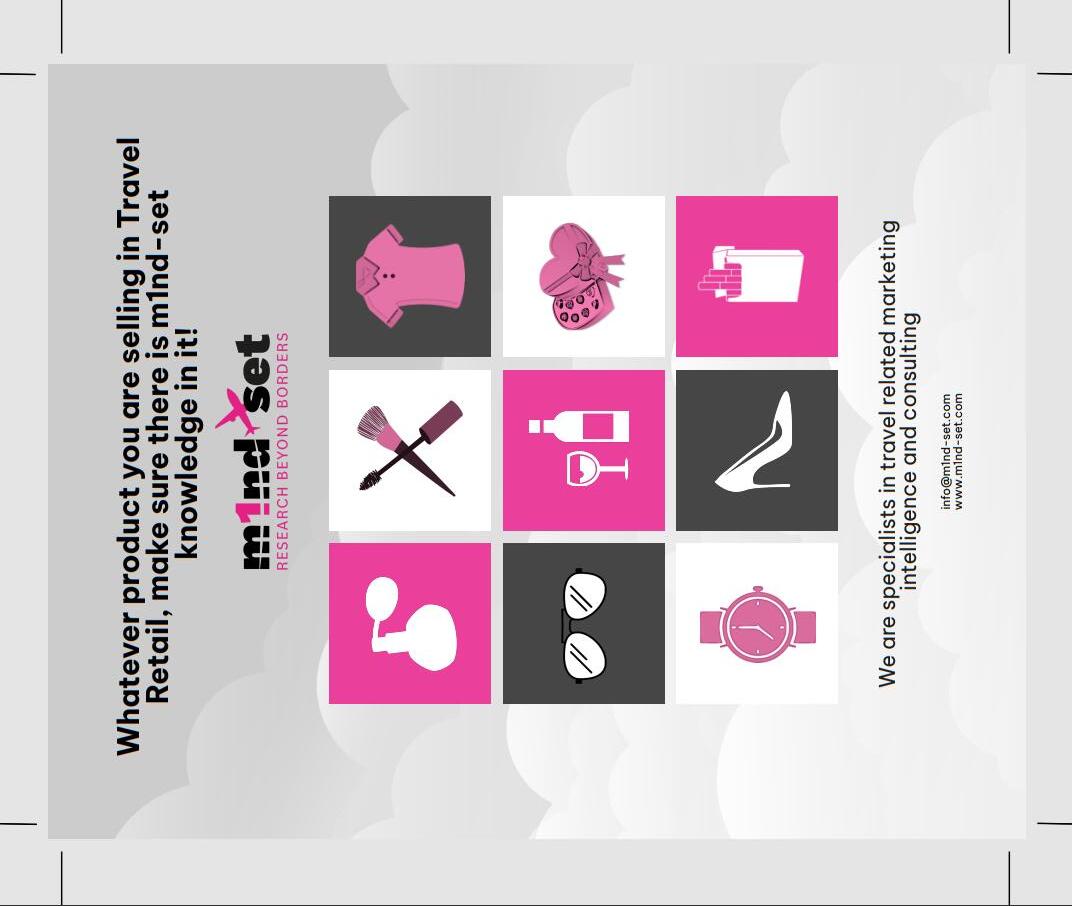




Blue Caterpillar spills on the impact of demographic trends in the spirits category including gender preferences, the no- and low-alcohol segment, RTD options and more
by LAURA SHIRK
Always on the pulse of the category, Global Travel Retail Magazine spoke with premium spirits distributor Blue Caterpillar for an update on the impact of demographic trends on spirits. From growing movements such as “sober curious” to ready-to-drink cocktails and health-conscious alternatives, Blue Caterpillar dishes on needto-knows in travel retail.
Product selection and marketing campaigns
Alongside convenience and premiumization, demographic trends influence product selection, marketing and promotions within duty free. While taste matters among both men and women, brand loyalty and flavored products rank higher, respectively. Christoph

Henkel, Co-founder & COO, says dedicated marketing campaigns often emphasize the heritage, quality and exclusivity of brands to reinforce loyalty among males, or center on the unique and novel flavors available to draw females. Cocktail trends in the local market like the rise in popularity of the tequila-based paloma can also attract women to traditionally less explored segments.
“Tasting programs have always been a tool for success. This approach not only allows for liquid to lips, but also direct engagement with consumers to highlight aspects such as craftsmanship, origin and exclusivity that can appeal to both men and women in different ways,” says Henkel.
“By understanding these demographic preferences, travel retail can
Koskenkorva Lemon 50-cl; Nordic wine and spirits house Anora has launched a bartenderinspired ready-to-pour cocktail range under the brand Koskenkorva
tailor its product selection and marketing strategies to better serve and attract diverse customer groups, ultimately driving sales and customer satisfaction.”
While the “drinking better, not more” trend has been gaining traction, specifically among Gen Z, the market impact of the no- and low-alcohol segment has been minimal. Henkel points out it will take several years before this segment captures a significant market share comparable to traditional alcoholic beverages in travel retail.
“Key to success in our opinion will be to work on a diverse range of no-and low-alcohol products with appealing flavors and premium ingredients. Companies will also need to invest in research and development to improve


the taste and quality of these beverages to match or exceed those of traditional alcoholic drinks,” he explains.
These efforts will need to be supported by a social media strategy that targets the next generation and creates engaging and educational content about the benefits of no- and low-alcohol products. Partnering with social influencers and wellness advocates will help to amplify brand message. Separately, retail and distribution channels will need to ensure wide availability in-store and online at competitive pricing.
Blue Caterpillar has yet to venture into the cannabis space. “As a spirits company, we are of course constantly adapting and reviewing the growing demand for non-alcoholic and health-conscious alternatives, as well as new cannabis beverages. With a still
inconsistent regulation and additional compliance demand on a local and federal level, this category has not been a focus point of the business for us. We will certainly monitor all legislative regulations and brands in the market to make a decision on this topic in the near future,” says Henkel.
RTD options and INVERSA debut
Ready-to-drink (RTD) cocktails, coupled with higher-end tequila and whiskey are expected to continue leading market growth. When asked about the evolution of RTD product innovation and consumption in the last five years, Henkel explains brands have prioritized using premium ingredients, catering to a more discerning base. According to him, smaller, craft producers have entered the market, offering artisanal RTD options.
INVERSA premium Italian spritz offers all natural ingredients and classic flavors including Bergamot & Lemon, Morello Cherry and Peach & Basil for on the go
Referencing Anora, Henkel introduces the ready-to-pour (RTP) concept. The Nordic wine and spirits house launched a bartender-inspired RTP cocktail range under the brand Koskenkorva. “With high-quality ingredients, this has been a key driver for the brand in the region. It was key for [Anora] to put an increased focus on natural ingredients, paired with a low-calorie and low-sugar approach to appeal to health-conscious consumers,” he says.
Executing a similar idea, Italian brand INVERSA offers all natural ingredients and classic flavors. The name, which is responsible for a modern take on the traditional Prosecco spritz, will debut in travel retail at this year’s TFWA Cannes with Blue Caterpillar.
In some cases, Gen Z is becoming more interested in collecting spirits, rather than purchasing for consumption. To cater to this finding, the distributor has implemented several strategies to enhance the sense of exclusivity in travel retail. “We periodically release limited edition bottles with our brand partners and suppliers that highlight unique flavors, rare ingredients or special collaborations. These exclusive releases create a sense of urgency and desirability among collectors and most of the time increase in value after their launch,” shares Henkel.
An additional tool that has proved successful is the availability of single casks in the whiskey category. Blue Caterpillar has already delivered three into the market this year in partnership with two different retailers in the Americas. “Together with our brand partners, we produced unique packaging or personalized labels for the retailer’s spirits selection, making each bottle a one-ofa-kind item. A piece of memorabilia of a family trip, a unique gift or a talking point over a dinner with good friends,” says Henkel.
by LAURA SHIRK


Italian multinational drinks company Illva Saronno known worldwide for its iconic Disaronno Originale and Tia Maria, says reinforcement of these brands is central to its strategic plan. Both the heritage and presence of the two are continuously enhanced through sustained investment in global travel retail. The company’s long-term vision is to celebrate life, together, in style by developing and nurturing premium brands across key spirits categories, while promoting a culture of responsible drinking. Global travel retail is a core channel as it provides a crucial touchpoint for this vision.
The acquisition of Sagamore Spirit last year proved that Illva Saronno is working hard to become a recognized player in the global whiskey industry, as well as tap into the premium American whiskey segment. This move, alongside
the development of The Busker Irish Whiskey highlights its ambitions for the future. Within the whisky category in travel retail, the company has a strong presence in Europe with The Busker Irish Whiskey. It has also been intensifying its efforts in the Americas. Looking forward, it has an excellent opportunity to grow, thanks to its premium product portfolio: The Busker’s Single Collection or Small Batch, Sagamore’s Cask Series and Engine Gin's innovative liquid and design.
rebirth of rye whiskey
Speaking about evolving preferences and trends, consumers seek quality, authenticity and uniqueness. The spirits category is currently experiencing the rebirth of rye whiskey. Whiskey drinkers and mixologists are increasingly seeking and exploring other subcategories of American whiskey with a resurgence of rye whiskey.
This is perfect timing considering the Sagamore premium product portfolio. Sagamore Spirit is dedicated to reviving the whiskey-making legacy in Maryland, USA. The legacy of Maryland rye whiskey is a storied one that is deeply intertwined with the history of American distilling.
To meet the growing demand for premium whiskies, Illva Saronno has created limited editions such as travel retail exclusive The Busker Single Cask Pot Still, in addition to super premium SKUs for Sagamore Spirits. By promoting these brands and ensuring their visibility in key travel retail markets, the company emphasizes an exceptional customer experience at the point of sale and ensures travelers encounter brands in an engaging and memorable manner. This strategy not only solidifies brand loyalty, but also attracts new consumers, as well as positions Illva Saronno as a formidable player in the segment.

OVER 20,000 YEARS IN THE MAKING. WE ARE CANADA’S VODKA.

by LAURA SHIRK
Cruise Lines International Association forecasts that global cruise capacity will grow at least 10% from 2024 to 2028. For a closer look at the multi-generational travel option that benefits from unparalleled dwell time, experience-driven retail and two forms of alcohol consumption: on board and duty free, Global Travel Retail Magazine turned to the experts. In this report, we hear from sector professionals about leading drink development and cocktail creation, the importance of a segmented approach, cruise activation and consumer behaviors.
Speaking about the cruise line’s approach to managing on-premise and off-premise consumption, Zachary Sulkes, Assistant Vice President of Beverage Operations at Carnival Cruise Line (Carnival), says on board its focus is on catering to the preferences of guests. “We recognize that when people visit one of our bars on board, they often
have specific tastes or favorites in mind, so our selection primarily includes brands that are consistently in demand,” he explains. At the same time, Carnival monitors emerging trends to match those seeking a different option during their cruise. It recently added a new Mezcal brand to its portfolio, reflecting the growing popularity of the spirit in the broader US market.
“We also recognize the importance of tailoring our offerings to enhance the guest experience, which allows us to introduce regional specialties and themed offerings. For example, on ships such as Carnival Firenze and Carnival Venezia, which embody the ‘Carnival Fun Italian Style’ experience, we feature a variety of Italian spirits and cocktails like Limoncello and Espresso Martinis, aligning with the thematic elements of each ship,” says Sulkes.
When it comes to drink innovation, mixologists curate a menu of cocktails that resonate with guests and reflect the
dynamic nature of Carnival’s dining and entertainment experiences. On evolving trends, the cruise line is also responding to those driven by sustainability practices and advancements in beverage technology. An example of this is its partnership with closed loop packaging leader ecoSPIRITS.

Tito’s Vodka says special tastings, gifts-withpurchase and price promotions, encourage travelers to engage with their favorite brands and learn about their versatility
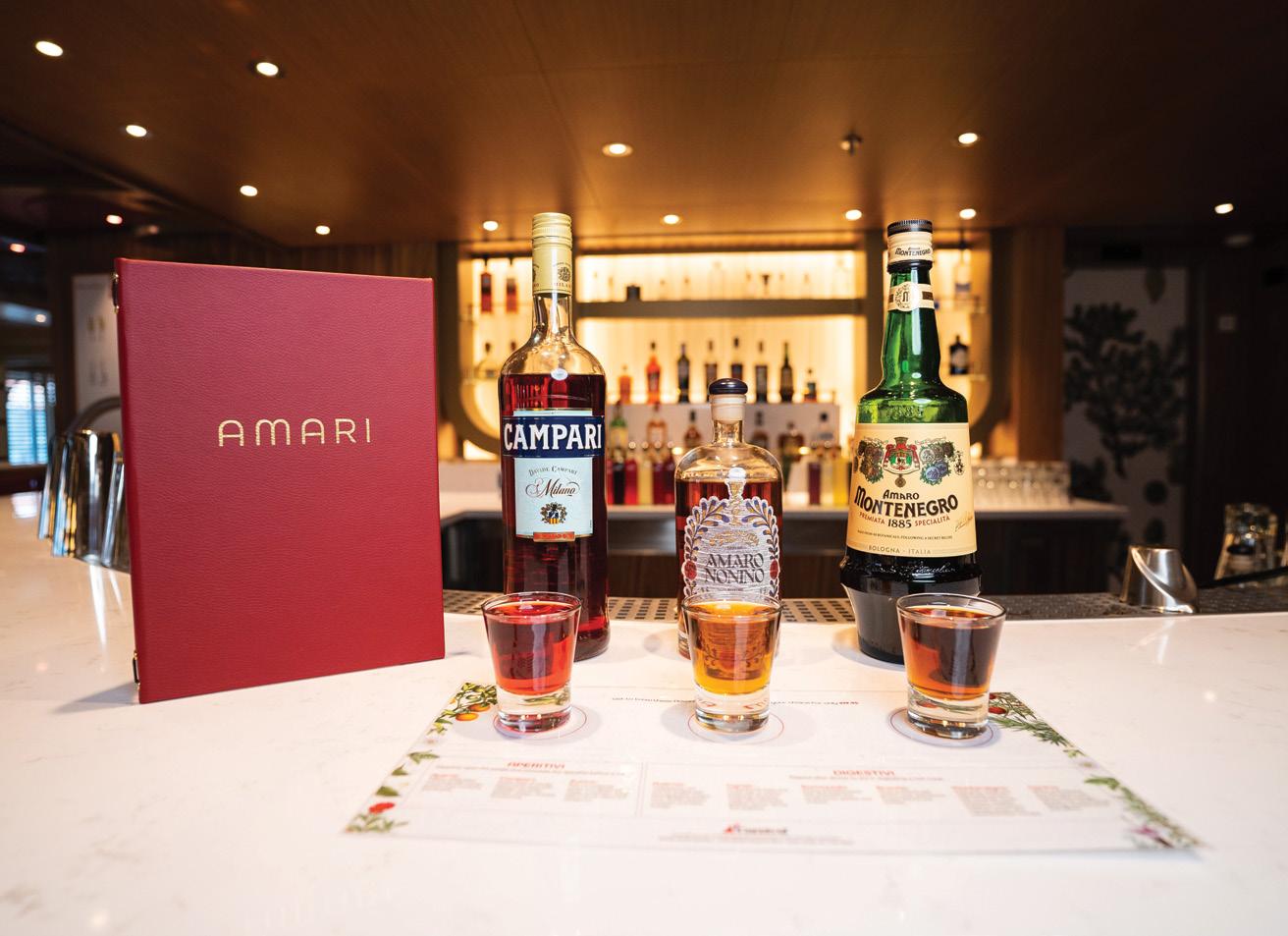
Retail integration and dwell time
To integrate the core cruise experience into the duty free channel, it is essential that parties successfully work together to make the most of the retail environment on board. Sherrie Day, Global Head of Merchandising at Starboard Cruise Services (Starboard) notes, “We collaborate closely with our spirits brand partners to deliver a well-curated selection of products, maintain adequate stock levels and provide top-notch training for staff members, ultimately enhancing the overall shopping experience for cruise guests.”
According to Day, Starboard considers passenger demographics and preferences, seasonal and destinationcentric itineraries, brand-specific training programs and supply chain coordination when making decisions. In addition to tasting sessions and mixology classes, cross-brand activations such as “Watch and Scotch” events help to cross-promote between on board consumption and duty free sales. On the digital front, it uses tools like mobile apps and interactive kiosks to provide convenient shopping options and tailored promotions.
Starboard leverages the extended time with travelers by organizing
frequent and diverse retail events including themed shopping nights, product demonstrations and exclusive samplings that connect with various age groups and interests and encourage multiple shopping visits. Day says the Spirited shop aboard the ship Celebrity Ascent attracts passengers by combining digital elements, personalized tastings and “unprecedented engagement” via its “What’s Your Whiskey” quiz-based interactive activation.
Day comments, “By integrating shopping seamlessly with the overall cruise experience and continuously engaging
passengers throughout their journey, Starboard enhances the appeal and accessibility of duty free shopping, driving higher conversion rates.”
A recognized name in the channel, Tito’s Handmade Vodka works with its cruise partners to ensure a seamless experience with the brand on board. Curran Zinn, Commercial Manager –Travel Retail at Tito’s Handmade Vodka, says since it’s likely that many cruise guests, especially in North America, have had their own experience with Tito’s Vodka already at home, its goal in the sector is to connect passengers with the brand in a unique and different way while they are on vacation. Special tastings, gifts-with-purchase and price promotions, encourage travelers to engage with their favorite brands and learn about their versatility.
“We appreciate that cruise lines seek to differentiate themselves from other lines, and so we’re very flexible in how we approach each cruise line. We create specific programs for each to meet their individual needs, whether that’s through bespoke cocktails or on board activations and promotions. Bar menus especially are a great way to customize our brand and engage with cruise guests in a memorable and meaningful way,” shares Zinn.
In a news update, Quintessential Brands has designed an on board, cross-category cruise pouring range to create a one-stop shop solution for operators. It has also released its full premium brand portfolio including BLOOM Gin and Feeney’s Irish Cream in partnership with Crystal Cruises. Oliver Storrie, Regional Director – Global Travel Retail at Quintessential Brands, explains the company aims to showcase its brands through the cocktail and premium menus on board. “We will then dovetail this with listings in the retail store on board, so passengers can try and buy,” he says.
Inspired by the hit Netflix series Emily in Paris, Quintessential Brands has also launched the premium Kir Royale ready-to-drink cocktail Chamère. The cocktail (10.5% ABV) is available in three formats: a 250-ml can and 20-cl and 75-cl bottles. According to Storrie, the company will be working with operators to bring the product to life in cruise via on board lifestyle events.
by LAURA SHIRK

Monarq Group (Monarq) has been making moves on both the portfolio and operations side of business over the last 12 months, reflecting increasing demand. The group recently launched White Claw Hard Seltzer in the Caribbean and announced the addition of several brands to its lineup of Scottish single malts. Notably, Monarq has welcomed Benriach, the Speyside Single Malt from the Brown-Forman portfolio, as well as The Glenturret, a Highlight Single Malt, co-owned by the Lalique Group. In the vodka category, the company added Ukraine’s renowned Nemiroff Vodka.

At the end of 2023, Monarq Group relocated its Miami office to a new and expanded space in Coconut Grove, nearly tripling its square footage to accommodate its growing team.
Earlier this year, Monarq partnered with DFS Group to introduce Condesa Gin to JFK Airport.
According to Danielle Glazier, US Duty Free Regional Manager at Monarq Group, the multi-sensory, interactive display was designed to capture and reflect the rich cultural heritage and vibrant spirit of the Condesa neighbourhood in Mexico City. Glazier explains, “To connect travelers with Condesa’s essence, the display showcases imagery and artifacts related to its cultural scene. The presentation includes storytelling elements that highlight the history and significance of Condesa, offering travelers a glimpse into its cultural significance and how it has influenced the creation of Condesa Gin.”
With the aim to leverage its established distribution networks and market expertise in the Caribbean, the group’s partnership extension with Nikka Whisky also made the news. “Nikka
Whisky’s reputation for the highest quality and tradition is a compelling factor in differentiating itself in the Caribbean market, which appreciates high-end, artisanal products,” says Garrett Koolman, International Marketing Manager at Monarq Group. “Our focus is on educating trade and consumers about the brand’s rich history and the award-winning liquid it produces.”
Speaking about Monarq’s tailored approach to the cruise channel, Glazier lists several key strategies: manage cruise lines individually, customize portfolio to match specific routes and adapt activations to maximize impact and relevance. To enhance the cruise experience, it has worked closely with cruise lines to design on board events that complement the cruise’s theme or itinerary; for example, the “Botanical Exploration” of Hayman’s Gin on Regent of the Seas.
Monarq is currently working with Royal Caribbean on an exclusive Uncle Nearest tasting experience on Utopia of the Seas. The group is also partnering with Virgin Voyages to launch the “Uncle Nearest Shot for Shot” mixology class where passengers are invited to create their own specialty cocktail.







As an Italian red aperitivo, Rirò offers consumers a slice of the Tuscan lifestyle and a new way of drinking wine
Based on industry experts and travel retail insights, Global Travel Retail Magazine discusses category trends, the return of rosé and the next generation of wine lovers in this Wine Report
by LAURA SHIRK

“Elegant, fresh and intense,” Rosa dei Masi is described as Masi Agricola’s interpretation of the “Rosé Renaissance”
Driven by a focus on creating experiential retail environments that attract travelers seeking unique and premium items, Silvina Romani, Export Manager Global Travel Retail at VSPT Wine Group, notes that airports have transformed from transit hubs into shopping destinations. With an increasing appreciation for fine wines, travelers are willing to invest more on higher quality products and distinctive experiences. Also, given the airport setting and related circumstances, travelers are often in a mindset to indulge.
According to Romani, the Chilebased group offers a sensory wine experience, particularly via its travel retail exclusive 1865 Voyager Collection. The line consists of three wines: 20and 70-Year-Old Cabernet Sauvignons and a 40-Year-Old Red Blend. Romani explains the collection’s lifestyle is represented by discovery and a connection to exploration. “Our offerings cater to those seeking not only a wine, but an experience that aligns with their refined tastes and adventurous spirit,” she says.
Pier Giuseppe Torresani, Export & Travel Retail Sales Director at Masi
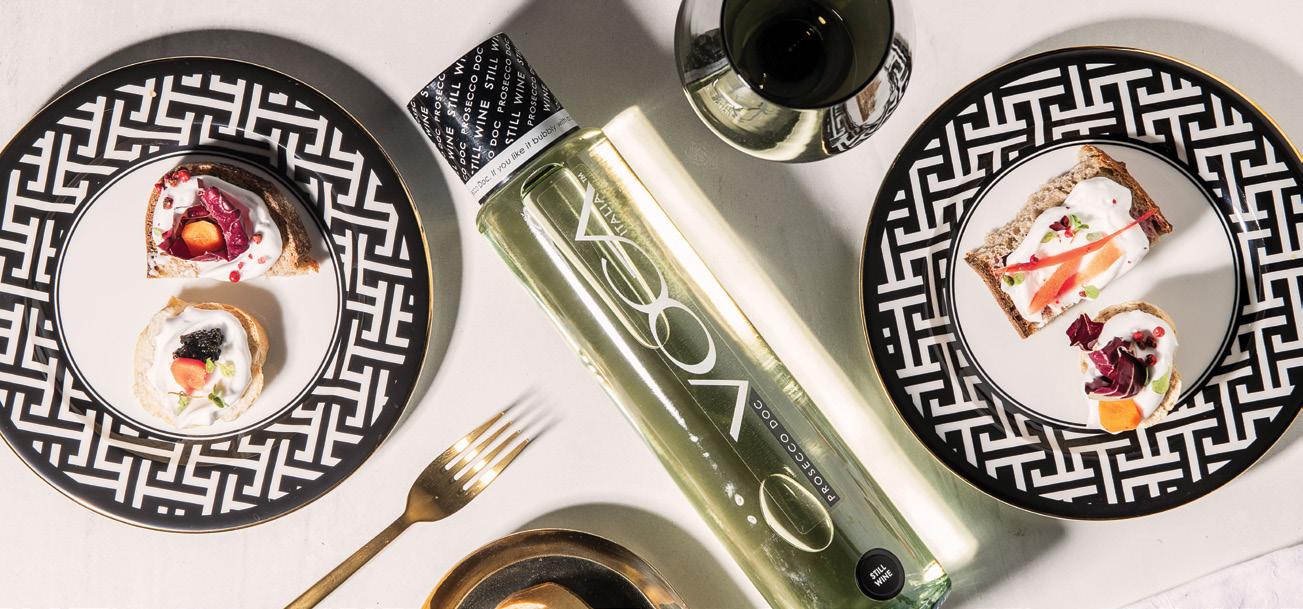
Agricola, says the unprecedented growth in demand for premium wines is partly because of the nature of the business. “While some consumers are looking for good price opportunities, others are seeking unique and exclusive products that are difficult to find in the domestic market,” he comments. “These are not necessarily different consumers; it can be the same person buying for different occasions.” Torresani adds, in this light it’s normal that there is increasing interest in premium wines, since they are linked to specific grapes, vineyards and producers and therefore scarce.
Speaking about Gen Z, Torresani says while wine has traditionally been consumed by a more mature population, he’s confident that “step by step” the next generation of consumers will enter the wine world. It is important for Masi Agricola to offer an assortment that covers the emerging needs of consumers of all ages, which is why the company has launched the organic wine range Fresco di Masi. Made up of one white and one red, the range is low in alcohol and a response to the growing demand for sustainable and light-bodied products among the younger consumer segment.
The Italian winemaker has also introduced Rosa dei Masi, which it describes as “elegant, fresh and intense” and its interpretation of the “Rosé Renaissance.” Torresani explains wine is about enjoying flavors and pairing with foods. “Each bottle represents a specific
culture, territory and people. Choosing a specific winery or wine is a way for a wine lover to express themselves and to share certain values with others. In that sense, wine has become a lifestyle choice,” he says.
Beyond the return of rosé in the category, the segment is seeing a shift from intense pink and fruity rosé wines to those that are “light salmon in color and more mineral on the palate.”
On the digital side, VSPT Wine Group leverages digital platforms and social media to create informative and interactive content. Romani notes that partnering with influencers allows the company to reach and resonate with a younger audience. Additionally, through sustainable initiatives like its International Wineries for Climate Action membership, VSPT Wine Group demonstrates its commitment to climate change and sustainable progress –shared values among Gen Z.
Chile-based VSPT Wine Group caters its offering to those seeking an experience that aligns with their refined tastes and adventurous spirit
To appeal to the next wave of consumers, Esteban Garcia, Duty Free & Travel Retail Manager at Italian Wine Brands explains the wine industry needs to adapt its strategies to align with the preferences and behaviors of the tech-savvy and socially conscious demographic. “We’re embracing such changes with our main brands including VOGA Italia, specifically it’s new offering Prosecco DOC Still,” remarks Vittoni. In addition to teaming up with social media personalities to increase awareness and engagement, Enoitalia relies on peer reviews and recommendations from trusted figures to influence purchasing decisions.
According to Vittoni, VOGA Italia Prosecco Still symbolizes modern Italian winemaking and provides a sensory experience that is both sophisticated and approachable. “With its stylish presentation, versatile appeal and commitment to quality and innovation, the wine attracts a new generation of wine lovers who appreciate the blend of tradition and contemporary flair,” she says.
Italian Wine Brands is also presenting a new way of drinking red wine with Rirò, the Italian red aperitivo. Crafted in Tuscany, Vittoni shares, the new generation of red wine respects tradition and captures the essence of a region deeply rooted in its heritage, while embracing innovation and change.


Mazaya’s Global Travel Retail Manager Rawan
Elayyan discusses how the brand is leveraging shifting consumer preferences, expanding its global footprint, and introducing innovative flavors to enhance its position in the duty free channel
by WENDY MORLEY
Mazaya is capitalizing on the growing demand for unique and highquality smoking experiences by strategically enhancing its product positioning in the duty free channel. The brand is focusing on delivering premium shisha products that cater to sophisticated tastes and discerning customers.
“Mazaya is tailoring its product range to emphasize uniqueness and premium quality,” says Rawan Elayyan, Global Travel Retail Manager at Mazaya. “By offering a diverse selection of flavors, carefully crafted with the finest ingredients, for example our distinctive French
tobacco leaves, the brand is meeting the demand for more refined and luxurious smoking experiences.”
This focus on premium offerings extends to the brand’s presentation and packaging. “In the duty free channel, where consumers often seek products as gifts or indulgences, Mazaya enhances its offerings with premium packaging and sleek, visually appealing designs. This elevates the perceived value of the products and aligns with the expectations of high-end travelers looking for something special,” Elayyan says.
Authenticity and craftsmanship are key elements of Mazaya’s strategy. The brand emphasizes its commit-

A refined flavor experience, “English Mix” was developed by Mazaya’s R&D team to cater to global consumer preferences in the travel retail market
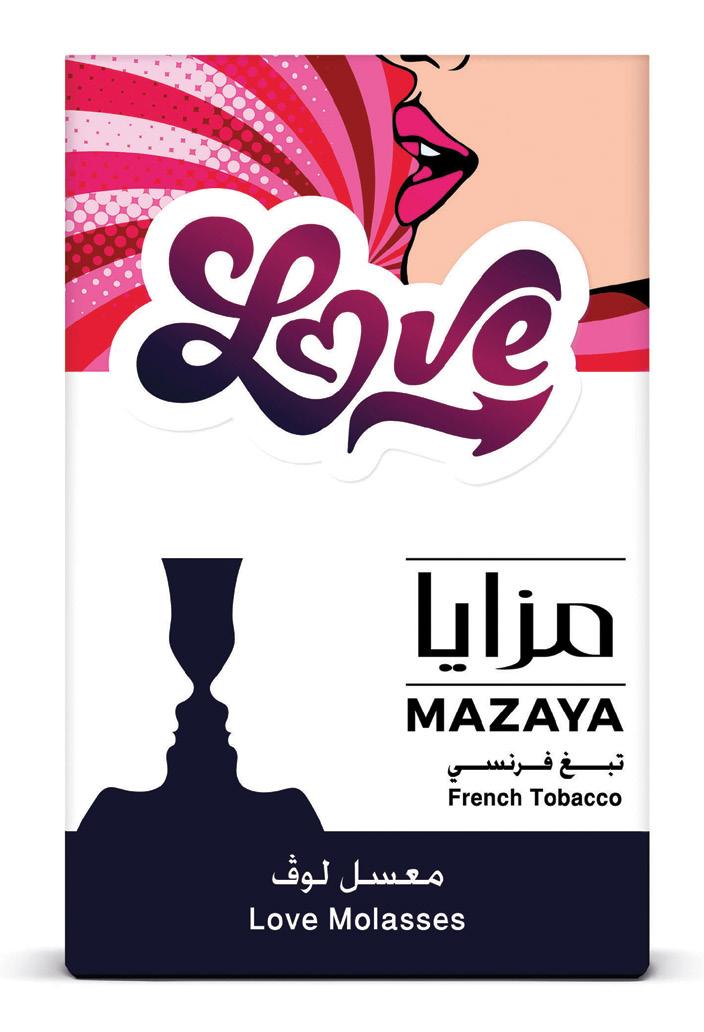
ment to these values by highlighting its origins and the advanced processes involved in producing its shisha tobacco products. This approach appeals to consumers seeking both quality and a connection to the heritage of the smoking experience.
Mazaya continues to innovate with new flavors tailored to evolving consumer preferences. The brand’s commitment to flavor development is a key part of its strategy to meet the changing demands of the global travel retail market. The introduction of these new flavors demonstrates Mazaya’s responsive approach to market trends and consumer desires. By leveraging data from flavor preference research,

The new “Love” shisha molasses blend, crafted through flavor preference research, delivers a unique and premium smoking experience for discerning consumers
The global shisha industry has shown strong resilience in the wake of the pandemic. For Mazaya, the recovery has been particularly impressive. Elayyan states, “We have completely recovered from the pandemic effect and even surpassed the highest sales benchmark we had by a good deal. Our top performance metrics for the travel retail channel were achieved in 2019, and we exceeded these figures in 2023 with a double-digit growth percentage.”
While acknowledging the regulatory challenges in the tobacco industry, Mazaya is exploring digital engagement within the boundaries of these restrictions. “It’s worth mentioning that the tobacco industry has so many limitations when it comes to consumer direct engagement, be it digitally or on ground. It’s complex and highly regulated due to the health concerns associated with tobacco products,” Elayyan explains.
Despite these limitations, the brand maintains a presence in the digital realm through operator platforms. “Our digital consumer engagement is limited to being sold in the operators’ various online shopping platforms,” she says.
the brand ensures that its new products align closely with what customers are seeking in their shisha experiences.
“Our most recent flavors that have been introduced in the travel retail channel are ‘Love’ and ‘English Mix.’ Both are special mixes that have been tailored by our R&D department based on our recent flavor preference research,” Elayyan notes. These new offerings have been well-received, says Elayyan, who adds, “These flavors have received extremely positive feedback from our consumers globally.”
As travelers seek unique experiences and products, Mazaya’s innovative flavors provide an opportunity to discover new tastes and indulge in high-quality shisha during their journeys.
Mazaya is actively pursuing geographical expansion, with a focus on key markets in the travel retail sector. “Our geographical expansion includes the Indian subcontinent, starting with our recent Dufry listing in Bangalore. Adding to that, our presence in the European travel retail channel is being expanded with our recent listing in Greece with Hellenic duty free shop,” Elayyan says.
The brand is also strengthening its presence in established markets. “Mazaya’s travel retail presence in Turkey has been strengthened to include not only Istanbul Airport but also Sabiha Gokcen Airport and Antalya,” Elayyan adds.

British American Tobacco (BAT) is lighting up the tobacco category in travel retail with reduced-risk products, cutting-edge technology and a commitment to sustainability
by HIBAH NOOR
British American Tobacco's (BAT) progress in the first half of 2024 is marked by the rollout of innovative offerings like the Vuse Go 2.0, a single-use vapor product with enhanced taste, design and a removable battery. “We have made significant progress towards our ambition of creating A Better Tomorrow™ by building a smokeless world with our reduced-risk* products in the first half of the year,” says Andy Hrstic, BAT General Manager China and Global Travel Retail.
The glo™ brand, BAT’s flagship heated product, has also seen advancements with the introduction of glo hyper Pro and improved consumables.
Hrstic emphasizes BAT’s commitment to providing adult smokers with a wide range of satisfying alternatives: “At BAT, we are committed to building A Better Tomorrow by offering a greater choice of high-quality, enjoyable, and less-risky* products for adult smokers to switch to,” he says.
Catering to diverse preferences

BAT recognizes the diverse needs of today’s consumers and offers a variety of alternatives, each with a unique experience. The company places great importance on consumer education, ensuring that customers can make well-informed decisions when choosing their preferred products. Hrstic emphasizes the crucial
role of brand ambassadors in this process: “We ensure that our on-site brand ambassadors at the travel retail outlets educate our consumers about our products in thorough manners, so that each consumer can make an informed decision to switch to a product that best caters to their preferences,” he says. Strategic partnerships are another way BAT enhances the consumer experience and optimizes brand essence.
The VELO x McLaren Formula 1 Team Pop-Up Activation at Hamad Interna-


The Vienna Tasting Bar at Vienna International Airport provides an engaging consumer experience with informative product details and the opportunity to learn about the reducedrisk potential of smokeless alternatives
tional Airport in Doha exemplifies this approach, offering a unique on-the-go experience for consumers while introducing a limited-edition product for the Qatar Grand Prix last year. “In order to optimize the unique brand essence, we often invest in partnerships to enhance our consumer experience,” Hrstic says.
Sustainability is a core focus for BAT, with the company taking pride in its achievements. As of 2023, 94% of packaging for new category products is reusable, recyclable or compostable. Hrstic highlights the eco-friendly features of glo and VELO: “The packaging of our glo device comes without a power adapter. The device can be recharged with a USB-C port to reduce electronic waste. VELO modern oral nicotine pouches now come in recyclable cans,” he says.
BAT also focuses on responsible disposal and recyclability of its products.
The Vuse Go 2.0, a single-use vapor product with enhanced taste, design, and a removable battery, exemplifies BAT's progress in offering innovative reduced-risk alternatives
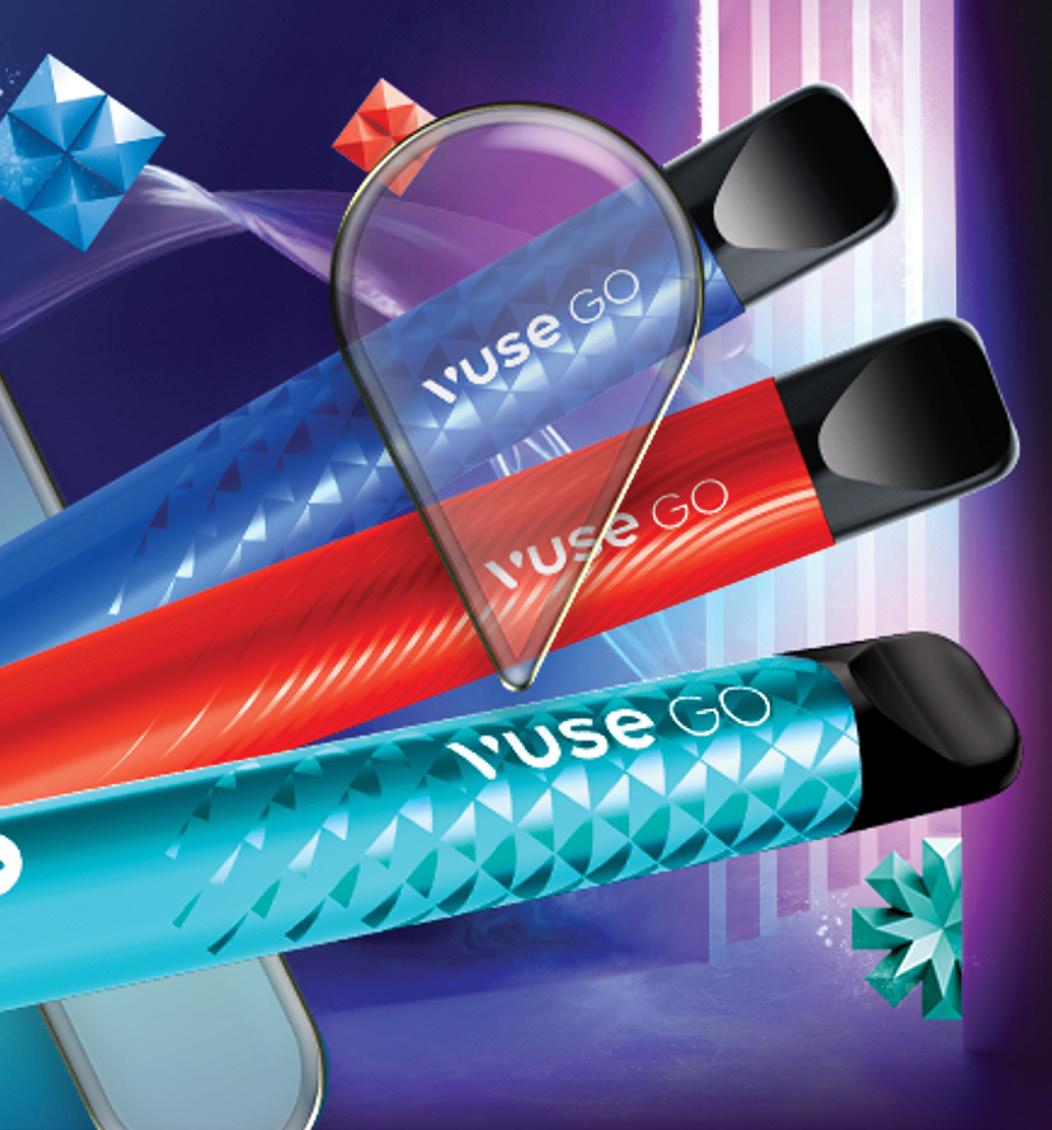
“We continue to focus on the disposal and recyclability of Vuse products through innovative design and life-cycle schemes, including the introduction of ‘Drop the Pod’ and device takeback schemes for used vape products to reduce waste sent to landfill,” Hrstic explains.
BAT is enhancing customer engagement and satisfaction in travel retail through innovative activations like the Vienna Tasting Bar. Located in Vienna International Airport, this immersive consumer engagement area offers an experience that goes beyond traditional product displays. “The Tasting Bar features engaging brand stories and informative details about the wide range of taste profiles available for each product category. At the same time, consumers can learn more about the reduced-risk* potential of the various smokeless alternative
products by navigating through the visual touchpoints," says Hrstic.
BAT has set ambitious targets for the future, aiming to become a predominantly smokeless business by 2035 and have 50 million consumers of noncombustible products by 2030. Hrstic highlights the role of BAT Global Travel Retail in achieving these goals:
“BAT Global Travel Retail will play a pivotal role in bringing our portfolio of world-class brands to global consumers transiting through major global travel hubs, and we will focus our efforts on delivering exceptional consumer experiences through targeted activations and educating our consumers on tobacco harm reduction,” he says.
*Based on the weight of evidence and assuming a complete switch from cigarette smoking. These products are not risk free and are addictive.

drinks distribution & marketing group Est.2006
MONARQ Group is a leading independent regional import, distribution & marketing group of premium alcoholic beverages in the domestic - and duty-free markets of Latin America & the Caribbean as well as the USA duty free channel.





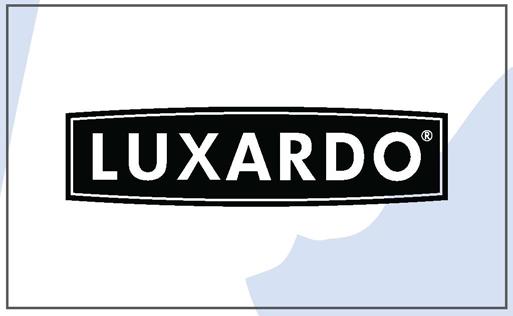
With a focus on innovation and sustainability, the independent tobacco producer KT International is expanding its presence in airport duty free shops
by HIBAH NOOR
Capitalizing on its strong domestic market performance, KT International (KTI) is making significant strides in global travel retail. The independent tobacco producer’s strategic approach is yielding positive results in this traditionally multinational-dominated channel.
“We are really starting to see the benefits of our long-term strategy of building strong domestic markets crossing over into travel retail,” says Stuart Buchanan, Chief Commercial Officer. “As an independent producer we have historically struggled to get listings in major airports. However, in the last two years we have seen a rapid increase in the number of airports where we are available, supported by very good off-take.”
The company now has presence in around 20 airports across Europe, with plans for further expansion in 2024. This marks a shift in the traditionally multinational-dominated airport retail landscape, as Buchanan notes,“Our performance in 2023 across our airport locations has shown good growth as consumers have access to more choice of brands and formats.”
Responding to increasing demand for flavored cigarette propositions in Asia and the Middle East, KTI has expanded

its portfolio with new offerings tailored for this market, including some with a travel retail focus. “In the past couple of months we have been working on developing an extensive range of flavor and capsule products to launch first as a special offering for the GTR channel,” says Buchanan.
The company’s flagship feminine brand CORSET has unveiled the new FUSION FLAIR collection, available in its signature shell-pack format. “The technology behind the product is innovative and unique, featuring a chocolateflavored tobacco blend, special brown cigarette paper, sweet tipping and a fruit capsule in the filter,” Buchanan explains. Available in three varieties – Golden Touch /mango capsule; Summer Scent /watermelon capsule; and Red Velvet / cherry capsule – the new range aims to offer a truly luxurious experience.
The company’s value brand, The King, is also expanding into the flavor segment with THE KING FLAVOR POP range. Offered in a compact format with options including Melon, Mango, Berry, Mint and Apple, the new line
aims to deliver “unbeatable value at an accessible price – and constantly evolving,” according to Buchanan.
Despite the highly regulated nature of the tobacco industry, KTI continues to innovate within its constraints.
“Tobacco and nicotine alternatives are highly regulated, and as such it is difficult to provide the same level of consumer interaction as other categories,” Buchanan acknowledges. However, the company believes in “providing different and innovative formats that go beyond the traditional Brand, Price, Value equation in driving purchase,” he says.
Looking ahead, KTI is poised to capitalize on evolving consumer trends in the travel retail space. The company has recently launched LIV, its noncombustible brand, starting with a range of travel-friendly nicotine pouches.
As the tobacco industry continues to evolve, KTI appears well-positioned to meet changing consumer demands while expanding its global travel retail footprint.
Enjoy that unique balanced taste for that first ahhh!


360-DEGREE
by LAURA SHIRK
Duty Free Dynamics (DFD) works closely with brands in non-core categories to tap into travel retail. Based on collaboration, the globalization of DFD has led to brands benefitting from its logistics and commercial platforms, as well as its network of partners that includes both major operators and independent retailers.
Responsible for monitoring changes in the market, DFD shares it is streamlining categories. “We are expanding territories with some existing brands and adding new footwear and toy brands, which are gaining traction at points of sale every day,” says CEO Martin Mairal. “An example is the global agreement we have signed with Timex Group for the worldwide distribution


of Guess watches, following a decade of successful collaboration.”
This year has been marked by expansion projects in Europe, the Middle East and Africa. Notably, the customization of spaces on TUI Cruises in Europe with the brand Lamy. Duty Free Dynamics has also added luxury brands Versace, Ferragamo, Philipp Plein and Plein Sport to its watch category. Plus, the operator just announced an exclusive collaboration with the toy brand Playmobil.
Duty Free Dynamics supports its partners by creating customized displays. Exhibitions are complemented by marketing activations designed to encourage cross-selling and increase the average ticket size. “The relationship we maintain with our partners allows us to continuously analyze sell-out data to adjust strategies and respond swiftly to the ever-changing consumer habits, ensuring our partners optimize all available space,” says Mairal.
Duty Free Dynamics’ 360-degree approach has led to a dedicated sales training department.
This initiative not only increases

sales (achieving double-digit growth at some points of sale), but also boosts staff engagement. “An essential part of DFD's added value is our comprehensive support throughout the entire cycle with our partners. This includes suggesting assortments based on the specificities of each location and type of consumer, assisting with impactful and effective exhibition options, promoting the brands with marketing activations, and, of course, training the sales teams,” explains Mairal.
Duty Free Dynamics will present at an exclusive showroom in Cannes. Playmobil and the sportswear brand New Era will each have a dedicated exhibition space. “Visitors will have the opportunity to explore the latest product collections in categories such as watches, footwear, apparel, writing instruments and more. The show is a key platform for us, where we can not only showcase our products, but also demonstrate the 360-degree support we offer to our partners,” he adds.



Solidifying its
footprint
in travel retail, Heys’ CEO talks about the company’s journey and future in travel retail packed with innovation and quality
by HIBAH NOOR
Heys has developed from a small family-run business into a global brand, known for its eye-catching, innovative travel products. The company’s Founder and CEO Emran Sheikh talks with Global Travel Retail Magazine, highlighting the brand’s strategy in travel retail, its focus on Gen Z travelers and its dedication to innovation.
Global Travel Retail Magazine (GTR Magazine): Established in 1986 in the suburbs of Toronto, Canada, as a small family-run business, Heys has grown from a home-based business into a global travel brand, synonymous with creative travel products. Please tell us about the brand’s development and its expansion strategy.
Emran Sheikh (Sheikh): Heys has indeed come a long way from its humble beginnings, driven by our unwavering commitment to three core values: innovation, quality, and customer satisfaction.
From the outset, we have focused on creating unique and stylish travel products. Our dedication to design and innovation has allowed us to stand out in a crowded market. Milestones like the introduction of the xCase in 2003, the world's lightest luggage, and our Smart Luggage in 2018, the world's first phoneconnected luggage, have set trends and established Heys as a leader in the travel industry. Additionally, our fashionforward designs, such as the fashion spinners, continue to set us apart.
Ensuring our products are built to last has always been a cornerstone of our brand. We continually invest in research and development to utilize the best materials and latest technologies. For example, Duraflex, which can withstand impact forces of up to 2,000 kilograms as tested in Canadian certified labs, ensures our customers receive products that are not only beautiful but also durable and reliable.
We maintain a customer-centric approach. In an era where genuine

customer service is increasingly rare, we pride ourselves on going above and beyond to deliver exceptional experiences. We strive to exceed customer expectations, creating lifelong customers and fostering positive word-of-mouth in the social media world. This customercentric approach has helped us build a loyal global customer base.
Our expansion strategy involves entering new markets through a combination of direct sales, e-commerce and partnerships with international retailers. Headquartered in Toronto, Canada, we
now have offices and distribution centers in Chicago (USA), Germany (EU), Seoul (South Korea), and Melbourne (Australia). We are also excited to be launching in China and the UK later this year.
GTR Magazine: Where are Heys products already listed in the duty free and travel retail channel? What new markets are you targeting and why?
Sheikh: Heys products are currently available in the duty free markets of Canada, Austria, Spain, India, Panama and the Philippines. We are excited to announce that Heys will soon be available in duty free retail in Germany, China, Singapore, Vietnam and Indonesia. These markets have been strategically targeted due to their status as growing travel hubs, which align perfectly with our existing global distribution network.
GTR Magazine: Heys has always been a forward-thinking company, launching the xCase, billed as the world’s lightest carry-on in 2003, years before baggage fees were even thought of. How
important is innovation in the world of luggage and what are we likely to see in the future?
Sheikh: Innovation is everything to us, which is why we hold over 50 global patents. In a highly competitive industry with low barriers to entry and numerous new and established brands vying for market share, innovation is what sets us apart. While new brands focus on social marketing and established brands concentrate on market share, we innovate with the agility of a startup, coupled with the unique ability to distribute globally.
GTR Magazine: Tell us about the Smart Access Opening system and Smart Luggage.
Sheikh: The Smart Access Opening System and Smart Luggage exemplify Heys' dedication to innovation and enhancing the travel experience.
Globally patented in 2014, the Smart Access Opening System is designed to provide travelers with unparalleled convenience. Traditional hardside luggage typically opens in the middle like
a clamshell, making it cumbersome to access and pack. In contrast, the Smart Access system allows the luggage to open from the front, providing easy access and enabling packing into a single deep cavity. Additionally, it retains the option to open in the middle, giving travelers the flexibility to choose the opening system that best suits their needs.
Heys Smart Luggage represents the evolution of modern travel, seamlessly integrating technology to enhance convenience and security. Connected via our Heys app, it offers three smart features:
Built-in digital scales to avoid overweight baggage fees. Simply lift the handle to see the weight of your bag displayed on your phone, ensuring you stay within airline weight limits.
Bluetooth TSA Lock allows you to wirelessly lock or unlock your Smart Luggage via the app. The lock lights up red when securely locked and blue when unlocked, providing visual confirmation.
Proximity alerts via your phone if your luggage moves out of a predefined range, helping to prevent loss or theft.


by LAURA SHIRK
Skross, the flagship brand of technology and adaptor accessories specialist WorldConnect, is charging ahead in travel retail.
After a strong comeback in 2023, the brand reports over 20% growth in the duty free sector in the first half of 2024 with similar positive results expected for the rest of the year.
Underlining the Swiss brand’s “Travel, Power, Charge” mantra, Managing Partner Sam Gerber notes the strong impact the brand is having in the charger segment of the travel accessories and tech market. Gerber highlights the Skross “laptop ready” universal adapters that are capable of charging any devices

from phone to laptops. The range aims to make charging more convenient for travelers worldwide.
Gerber also hails the “tremendous growth” of the brand’s lifestyle accessories range which was introduced last year. It includes the Swiss Army Blanket with a modern touch and the Original Skross Travel Pillow, along with the Deluxe Sleep Mask, Luggage Tags and Luggage Straps.
Soon to launch products include more chargers, luggage trackers, ultralight backpacks and compact highcapacity power banks, as Skross extends its portfolio but also maintains its focus on sustainability.
As Gerber points out, the brand has not only reduced the use of plastic in its packaging but in many cases has done away with it altogether by implementing bulk dispensers in many stores across Europe and the Middle East. Here, shoppers are able to touch and, in some cases, try a product before purchasing, encouraging customer interaction and driving impulse spending in the transaction zone.
Considering key trends in the channel, Gerber says, “The category of accessories and electronics is a moving target. There is a permanent stream of innovation in design and functionality.”
Gerber recommends that duty free buyers do not focus only on products, but rather on how to create a comprehensive concept with a strong brand in their stores. “Consumers get confused when they find a trail mix, a badly organized and incoherent product range assembled from various brands. Working with fewer but more professional brands is the key,” he says.
Gerber notes the role innovation related to technology plays in the future of travel accessories category growth. “Consumers want to discover novelties in our part of the product mix,” he adds. “We have seen our category growing over the past years thanks to the strong focus of some key market players such as DDF, WHSmith, Capi and others. We expect this growth to continue also because other categories might experience more regulatory pressure in the future.”

